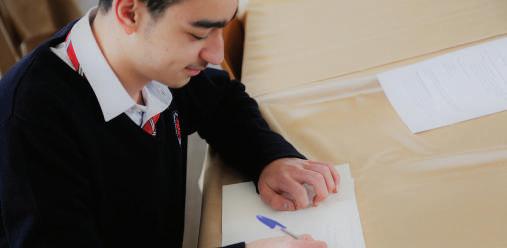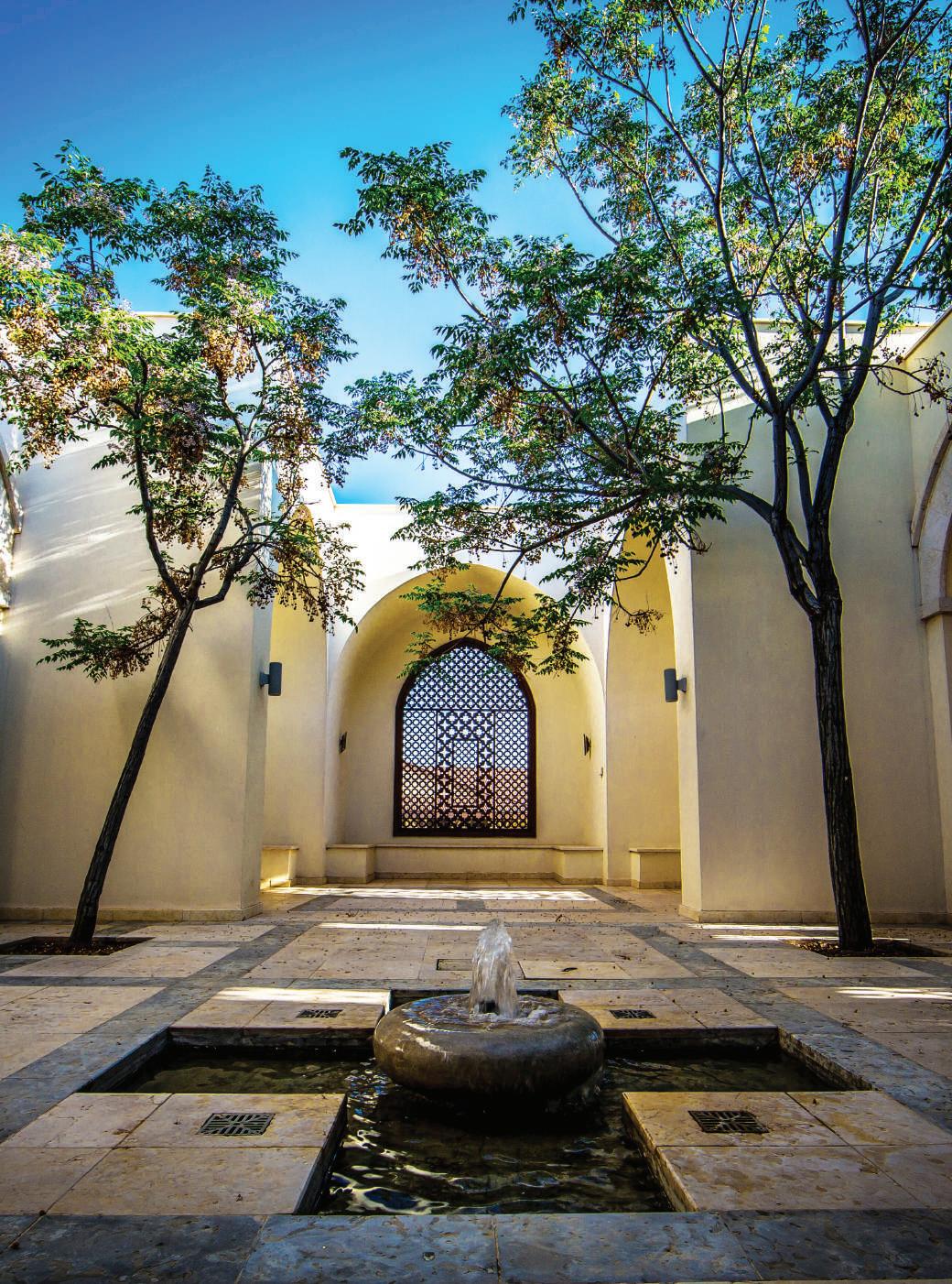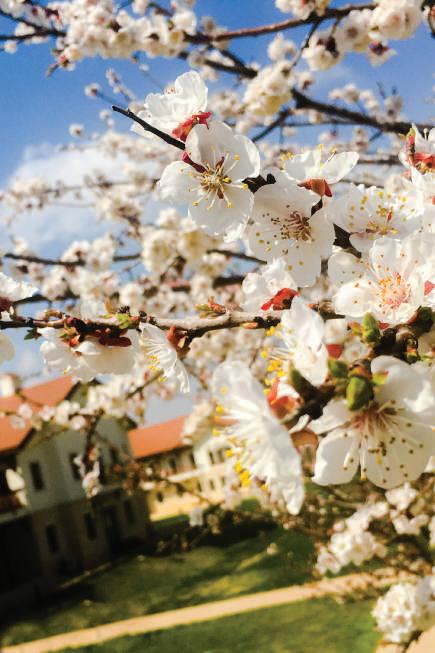









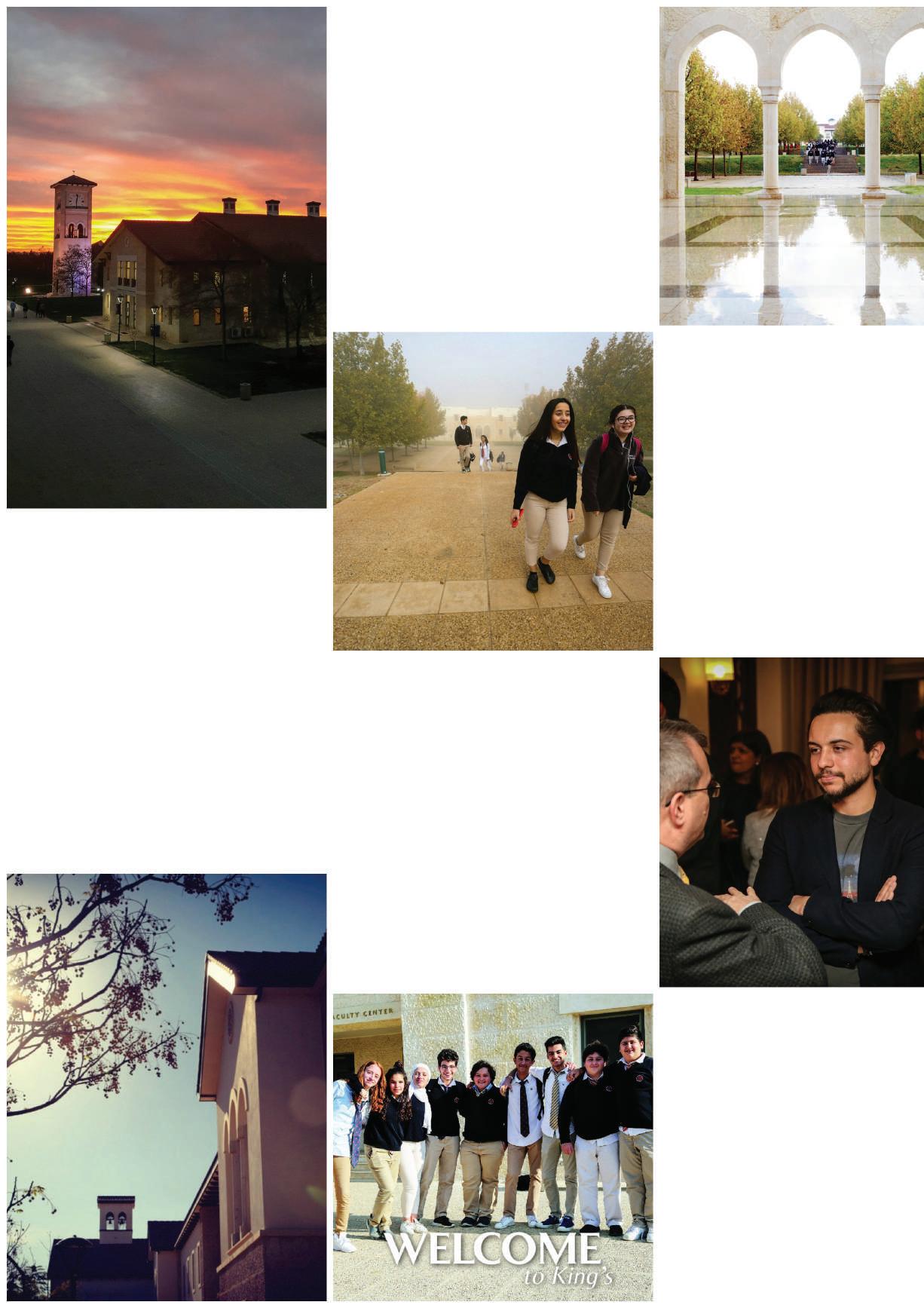
KingsAcademyJordan
KingsAcademyJOR
King’s Academy
KingsAcademyJOR
King’s Academy
KingsAcademyJOR

King’s Recruitment Video Wins Case Gold
Getting Arab Voices into American High School Curriculums
Henry Keenan ’14 Brings Entrepreneurship to King’s
Women in Tech: Razan Abdel-Hadi ‘10 is Breaking Stereotypes
CEO Secrets: Akhtaboot Founder Shares Eight Pieces of Wisdom
In Jordan, Fall is all About Silver Voices of King’s: Alumni Reflect on How King’s Shaped their Lives
The Women of King’s Academy and NYU Abu Dhabi
Why it’s the Right Time to be Educated in the Liberal Arts
King’s Academy Alumni Association Launched New York Reunion 2018
Don’t Judge a Book by its Cover Mawdoo3.com: An Arabic Success Story
All Aboard: King’s Students Travel the World and the Seven Seas Noor AlHaidary ’12 Lands a Job at Facebook
It’s About Storytelling: Jack Bender on Making Great TV
The Middle School Girls Who Love to Read and Write
Artists of Learning: John Austin Presents a Bold Vision for King’s Future
The Middle School: Revolutionizing Exam Taking 8 Things I Miss about Going to Boarding School in Jordan
School News in Brief
Curtains Up
Conscientious Artist
Ruminations on Ethics, Philosophy and Religion
EPR’s Bakir Mohammad on teaching at Deerfield
Faculty Spotlight
Summer Enrichment Program: Bridging the Gap
Alumni Happenings
Habitat for Humanity
Here’s to You, MacG
In Memorium: Ruba Daghlas in Memoriam
Class Notes
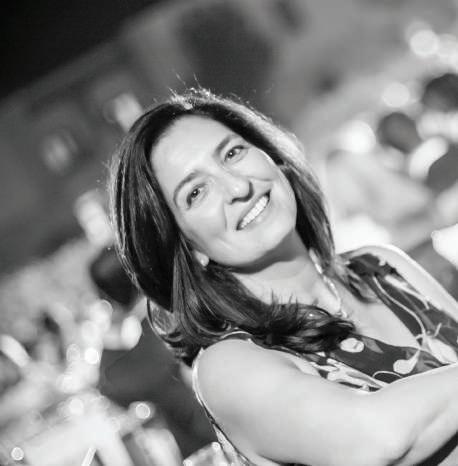
anniversary year draws to a close, it’s a great time to reflect on all that we’ve accomplished in just one short decade. It’s an even better time to look to the future, and to imagine all that is yet to come. King’s second decade promises to be even more exciting than the first, as the school continues to reinvent itself and reach new heights.
Never one to rest on his laurels, Headmaster John Austin has already begun the process of restructuring the curriculum in a way that will lead to more student autonomy, independence and engagement. As he writes in this issue’s feature article, “Artists of Learning” (pp. 48 – 51), “the happiest learners are inevitably also the most engaged, adventurous and creative learners, and these learners tend to be self-directed and independent, driven by curiosity and wonder.” Read the article and stay tuned next year to see how we begin to implement these exciting changes.
Once again, this issue is chock-full of pieces that show the depth and variety of school, student and alumni initiatives, so much so that we’re probably going to have to start producing the magazine biannually next year, if future issues threaten to get any fatter!
While I’ve enjoyed working on all these articles, I do want to point out a few that really epitomize the different way we do things at King’s. Take a look at “Getting Arab Voices into American High school Curriculums,” (pp. 5 – 7), “Henry Keenan ’14 Brings Entrepreneurship to King’s” (pp. 8 –11), “Revolutionizing Exam Taking,” (pp. 52 – 55) and “King’s Recruitment Video Wins Case Gold” (pp. 3 – 4). And if you have feedback on any of our articles, we’d love to hear it (and we’ll publish what you say).
Happy reading!
Spring 2018
Volume 6
Editor in Chief
Vera Azar
Writers
Muna Al-Alul, Vera Azar, Leen Hajjar
Designer Shadi Hasweh
Contributors
John Austin, Alicja Borzyszkowska, Jan Flaska, Bakir Mohammad
Photography Wasim Ayesh
Front Cover Wasim Ayesh
Beyond King’s is published by the King’s Academy Department of Communications and Publications
P.O. Box 9, Madaba-Manja 16188 Jordan. tel +962 6 430 0230 ext. 1005 email beyondkings@kingsacademy.edu.jo www.kingsacademy.edu.jo
© 2018 King’s Academy, Jordan.
All rights reserved. No part of this publication may be reproduced or transmitted without express written consent from the publisher.
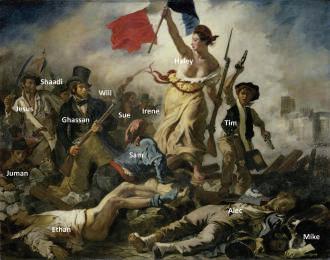
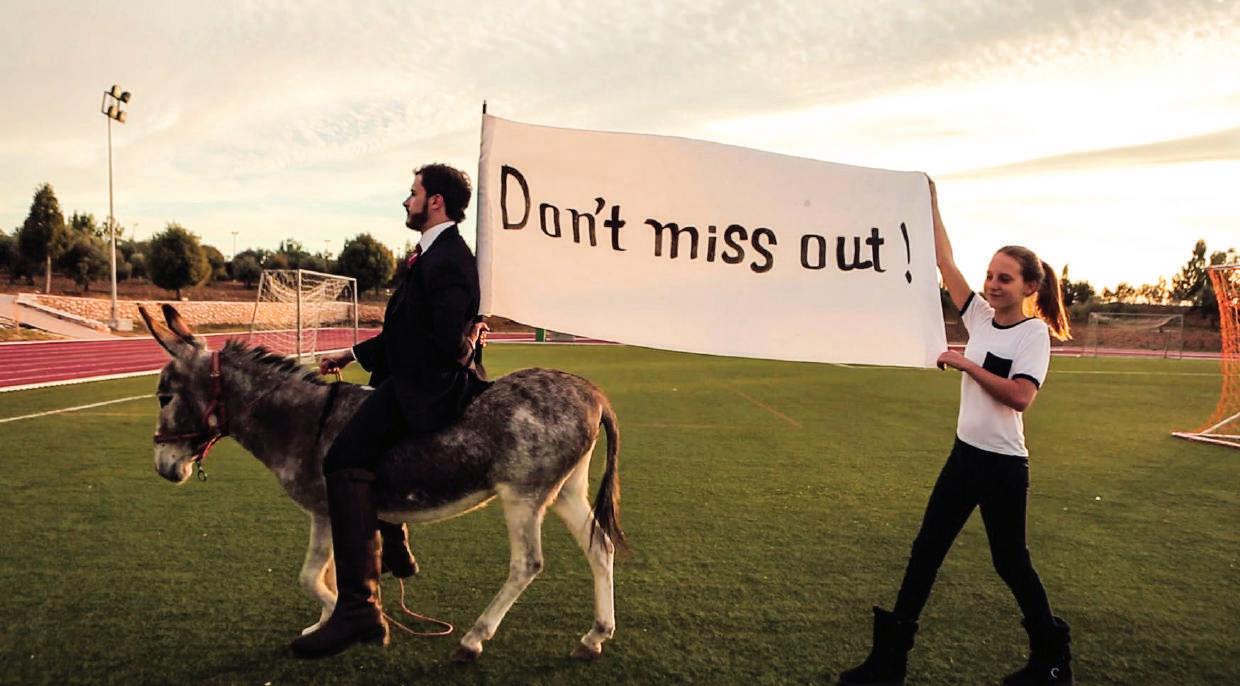
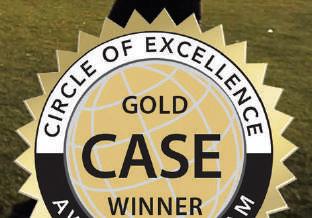

Working with King’s communications and admissions teams, Rob Bahou ’11 conceived and directed “This Could Be Your School Too,” the school’s most successful video to date
BY VERA AZARLast summer, the Council for Advancement and Support of Education (CASE) named King’s Academy a gold award winner of its 2017 Circle of Excellence awards program. King’s was recognized for its video, “This Could Be Your School Too,” created by Robert Bahou ’11 in collaboration with the school’s communications and admissions teams.
The video, which to date has been viewed more than 28,000 times on YouTube and 14,000 times on Facebook, was selected by a panel of
experts in the short recruitment video category from among 65 entries from schools around the world.
According to CASE President and CEO Sue Cunningham, 2017 was the most competitive year ever for the awards program that recognizes outstanding achievement in educational advancement: some 715 higher education institutions, independent schools and nonprofits worldwide submitted more than 3,364 entries for consideration in nearly 100 categories. Judges gave 366 awards: 118 bronze, 125 silver, 107 gold and 16 grand gold.
“These awards acknowledge superior accomplishments that have lasting impact, demonstrate the highest level of professionalism and deliver exceptional results,” Cunningham says.
The Council for Advancement and Support of Education is one of the largest international associations of education institutions, serving more than 3,670 universities, colleges, schools and related organizations in more than 82 countries.
The video’s humorous approach to introducing King’s to newly admitted
students who have not yet enrolled proved a hit with the panel of CASE judges who said that “of all the entries with a humorous approach, King’s Academy stood head and shoulders above the rest. This yield video intended for admitted students clearly hits the mark by making the relatively new institution in Jordan feel familiar and known.”
Bahou decided to take a completely different approach. “I decided to use tongue-in-cheek humor for the video,” he says. “Humor is disarming, memorable, inclusive, and most importantly, it speaks to the kids. They were, after all, the target audience.”
led to two leading independent school organizations — The Association of Boarding Schools (TABS) and the Enrollment Management Association — asking Bahou and Khalayleh to present on the video at their annual conferences.
The judges went on to describe the King’s video as “well written, edited beautifully, funny and original, but also carried a depth and strength that is hard to balance when poking fun at oneself.”
Working closely with King’s communications and admissions teams, and in particular with Admissions Officer Omer Khalayleh — who would soon become
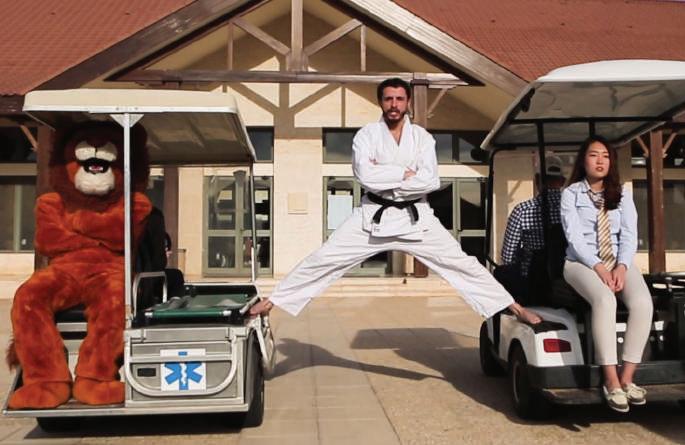
Referring to Bahou, they added, “rather than showcasing an alumnus, this video was created by one, which is an innovative way of highlighting what alumni can do and are willing to do for one’s alma mater.”
In explaining how he conceived the idea for the video, Bahou says that after viewing a slew of admissions videos from other schools, he noticed that they were all similar “talking heads” videos, with interview settings, shots of school life, and happy music. “My only real takeaway was that private schools around the world felt uncomfortably similar to one another,” he says.
renowned as “Omer the Admissions Guy” — Bahou created a video that has made waves, both locally and internationally. In addition to winning the CASE award, the video
The success of the video also led the Department of Communications at King’s to embark on another, larger video project with Bahou, one which again featured Omer the Admissions Guy in a series of five videos on different aspects of King’s Academy — academics, co-curriculars, residential life, university counseling and the Middle School — entitled “It’s Good to Be at King’s.”
“Of all the entries with a humorous approach, King’s Academy stood head and shoulders above the rest.”
“This Could Be Your School Too” and “It’s Good to Be at King’s can be viewed on the King’s Academy YouTube channel: www.youtube. com/kingsacademylions.
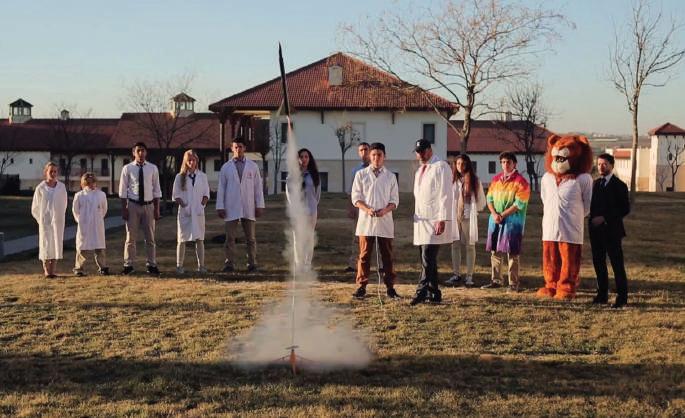
Despite an American style of education and the fact that English is the language of instruction, Arab history, traditions, language and cultural values have always been an integral part of the identity of King’s Academy. It is no surprise then that King’s introduced a course in its English curriculum that actively reflects this vision.
King’s was determined to show that Arabic literature — whether written in Arabic and translated to English, or written from the outset in English — deserved to be covered in English
classes everywhere, just as much as any other world literature currently being taught in middle and high schools.
In 2016, two faculty members, Lilli Audeh and Rola Jaber, attended the annual convention of the National Council of Teachers of English (NCTE) in Atlanta where they introduced “Arabic literature in a global context” via a poster presentation. The following year, King’s faculty returned to the 2017 NCTE convention in St. Louis and conducted a session entitled “Demythologizing the other: Voices from the Arab world.”
Delivering their presentation, the King’s teachers attempted to dispel some stereotypes by introducing their audience — a full house — to the Arab world, displaying a map of the region and explaining the huge geographical area — comprised of 22 countries across the Middle East and North Africa — and range of ethnicities and religions it encompasses.
“There is this stereotype that the Arab world is Muslim, period,” said English teacher Sharifa Rawi-Sukhun.
“The fact that we coexist as a people from different religions was a point we felt we should make to dispel this stereotype.”
To illustrate their point, they showed a short King’s Academy video called “The beauty in our differences” in which students representing a range of nationalities, religions and backgrounds share how their differences have brought them closer together.
The group explained that the term Arabic literature encompasses literature written in Arabic then translated to English or other world languages, literature written in English by an Arab, and literature that deals with themes from the Arab world.
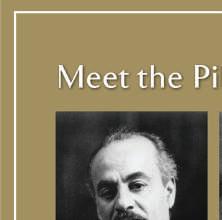
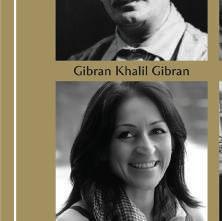
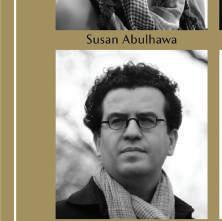
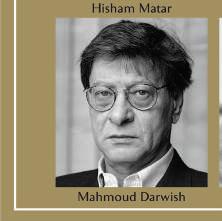
They presented the debut novel of Libyan writer Hisham Matar, In the Country of Men, which was nominated for the 2006 Man Booker Prize, translated into 22 languages and awarded a host of international literary prizes. Matar grew up in New York and writes in English. They also presented the short story, Half a Day, originally written in Arabic by Naguib Mahfouz, the Egyptian winner of the 1988 Nobel Prize for Literature. The poetry they used was that of Naomi Shihab Nye, an award-winning poet, songwriter and novelist who lives in the United States, born to a Palestinian father and American mother. In addition to in-depth presentations on these works, the group provided a list of around 25 other works of Arabic literature.
“A lot of teachers find Arabic literature intimidating, they don’t know where to start,” said English teacher Elizabeth Pinto. “So, part of our presentation was giving them an actual unit, a tangible thing that they could take and apply straight away.”
They distributed all the lesson plans they had brought with them to the conference, and had many requests for more, even receiving emails from teachers — some teaching at college — who hadn’t been in attendance but had heard about the session and were interested in introducing Arabic literature in their classrooms.
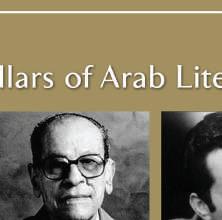
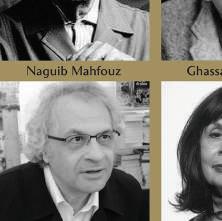
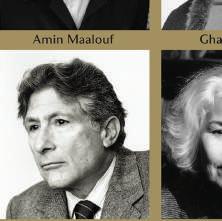
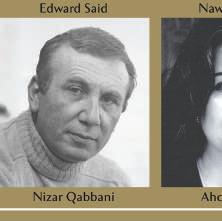
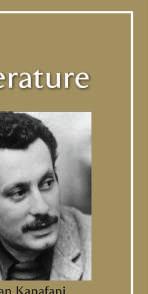
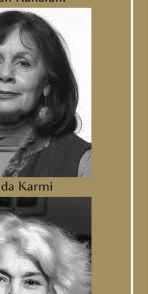
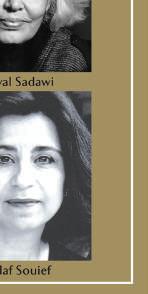
“The literature we chose is more or less contemporary,” said Rawi-Sukhun. “We didn’t go back to our early literature, which is very interesting, but might put people off because it’s not something they can relate to now.”
As much of the literature they recommended is already taught at King’s, the teachers were able to share their lesson plans with the audience.
“At the conference, participants have a thick catalogue of sessions to choose from and there are around 40 workshops taking place at the same time, so we were prepared not to have a big audience,” said English teacher Rola Jaber, adding that they were surprised but thrilled to have 64 teachers in attendance. “Many of the teachers were interested and wanted to learn more. There was a real need.”
After their session, while talking to members of the audience, King’s faculty discovered a large part of that interest was coming from teachers, some residing in rural areas of the US, who — for the first time — were welcoming refugees into their classrooms; they wanted help to understand their students and help them fit in by using books from their part of the world that they could connect to.
“We tried to show that Arab literature is not all that it seems in the media,” said Pinto. “That there is more to Arab literature than politics and violence or any of those other genres that are more frequently portrayed by the media.”
The feedback and interest was everything they had hoped for, said Rawi-Sukhun, who believes that it was their unified and cooperative efforts as a team, comprised of both Arabs and Americans, that had a lot to do with the positive reception, especially with the American members of the team sharing their positive experiences of living in the Middle East.
“The whole point of our presentation was to encourage American teachers to take a risk,” said Head of English Eric Hansen. “It’s so important that they present authentic images and voices from the Arab world beyond what their students see in the news and on TV.”
“We wanted to break these barriers,” added Rawi-Sukhun. “We wanted our audience to connect with us and with our literature. We wanted them to see that there are a lot of valuable and lovely things in our literature, and in ourselves, because literature reflects people and cultures.”
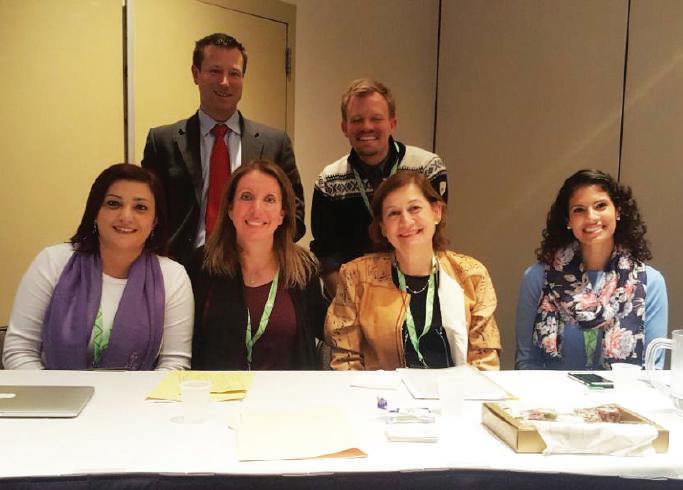
“The whole point of our presentation was to encourage American teachers to take a risk. It’s so important that they present authentic images and voices from the Arab world beyond what their students see in the news and on TV.”
In the Country of Men by Hisham Matar
Women at Point Zero by Nawal Saadawi
Returning to Haifa by Ghassan Kanafani
Men in the Sun by Ghassan Kanafani
Mornings in Jenine by Susan Abulhawa
The Cairo Trilogy by Naguib Mahfouz
Tigers on the Tenth Day and other short stories by Zakaria Tamer
The Prophet by Khalil Gibran
Think of Others and other selected poems by Mahmoud Darwish
In the Name of Identity by Amin Maalouf
On the Hills of God by Ibrahim Fawwal
Married to Another Man by Ghada Karmi
Children of the Alley by Naguib Mahfouz
Cities of Salt by Abdulrahman Munif
The Yacouban Building by Alaa Aswani
Selected Poems by Adonis
Zodiac of Echoes by Khalid Muttawa
Fragments of Memory: A Story of a Syrian Family by Hanna Mina
Willow Trees Don’t Weep by Fadia Faqir
Out of Place by Edward Said
Map of Love by Ahdaf Soueif
One Thousand and One Nights by Hanan Alshaykh
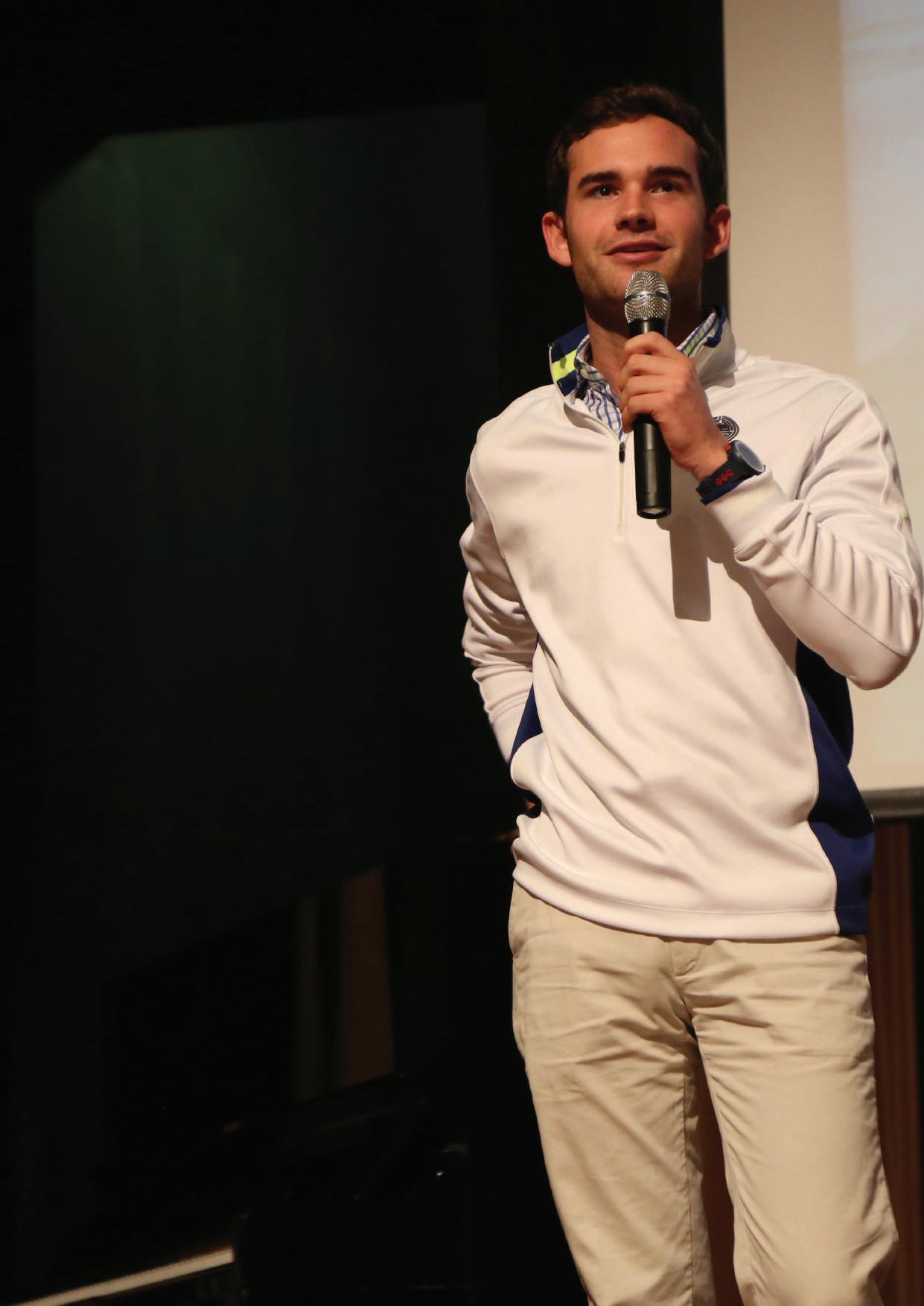
The start of every new year is marked by the making of resolutions, pledges of selfimprovement and determination to make that year one filled with purpose and meaning. What better way, then, for the junior class at King’s Academy to start the 2017-2018 academic year than by taking part in Startup with Purpose, a five-day entrepreneurship bootcamp organized by the University of California, Berkeley.
A non-profit organization founded by students from UC Berkeley in 2016, Startup with Purpose aims to promote entrepreneurship through collaboration between young entrepreneurs from around the world in the Middle East. The organization partnered with King’s Academy to host its inaugural entrepreneurial bootcamp in Jordan in January 2018.
King’s alumnus Henry Keenan ’14 came up with the idea of hosting the bootcamp at the school. Keenan is also a UC Berkeley alumnus, having majored in Middle Eastern studies, and is one of the founders of Startup with Purpose. The idea to found the organization, according to Keenan, came about after a tragic incident.
Each summer, a number of UC Berkeley students take part in a study-abroad course on European entrepreneurship and innovation in Nice, France. On July 14, 2016 three students participating in the course — including one UC Berkeley student — were killed during the Bastille Day terror attack along with 83 other people. Two other UC Berkeley students were also injured that day. Deeply affected by the incident, a group of students attending the course — including Keenan — decided that they didn’t
want that tragedy to be the end of the story. The course had been abruptly interrupted, but for its duration the students had felt they had purpose. They came together afterwards with Professor Ken Singer, managing director of the Sutardja Center for Entrepreneurship and Technology at UC Berkeley, to find a way to bring more purpose and opportunity to others in a way that would be most impactful, and came up with the idea for Startup with Purpose.
What the founders want to do, Keenan says, is to facilitate a student-led movement around the world by using entrepreneurship, teamwork and innovation to combat challenging social and economic problems. To Keenan, King’s Academy in Jordan was the perfect location in the Middle East, offering safety, stability and a welcoming community for everyone.
According to Singer, this was the first time that the university, which organizes many international partnerships and programs, had partnered with a boarding school in the Middle East, and the first time it had brought together such a diverse range of participants. The 210 participants — who represent nationalities from around the world — included both high school and university students either based in Jordan, or who had travelled from the United States and Chile to take part.
“I wanted to go someplace where we were going to get a really good cross-section of society,” says Singer.
“This was an interesting mix because you reach across the entire spectrum, from high school to college, from scholarship students to wealthy students, from Berkeley students to King’s students.”
During the bootcamp, participants were encouraged to form intellectually diverse teams to ideate, then build commercially scalable products. Some 13 mentors also took part, ranging from leading academics in the field of entrepreneurship from UC Berkeley, Stanford University and other top-tier institutions in the US, Europe and the Princess Sumaya University for Technology in Jordan, to regional and global business leaders. Drawing on their own extensive entrepreneurial experience, the mentors offered participants valuable advice and guidance, in addition to presenting lectures on various subjects.
“In this program you learn how to create and build things, so even if you aren’t going to be an entrepreneur, it’s a very useful skill to have,” says Avdeep Dhillon, a third-year political economy student at UC Berkeley. “Not only does it teach you how to create startups, but it teaches you to work with everyone on your team, how to communicate, resolve conflict, and how to be a leader and a follower. Those skills can be applied to every field in your life.”
“The coolest part is we were all so diverse,” she adds. “Even though we came from such different places we knew how to get along.”
For some of the university students, however, when they realized that they were going to be partnered with high school students from King’s they assumed the high schoolers would be less skilled and less committed. However, they soon learned not to underestimate their younger counterparts.
“I didn’t know I would be working with high school students until I got here, and I was so disappointed,” says
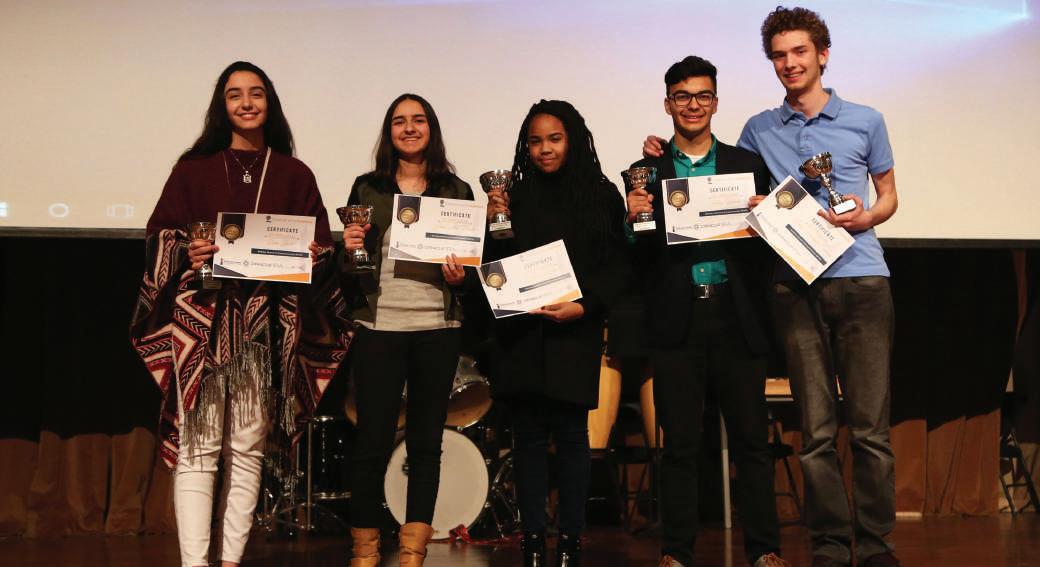
Saudi-national Jumana AlSawaf, a UC Berkeley student majoring in cognitive science. “Then I met my team mates, and I thought, gosh, these are some dedicated kids, and they have a lot of skills I did not have as a high school student. I learned not to underestimate anyone.”
“One of the best things I got out of the program is meeting the four kids on my team,” she continues. “They are very driven, very passionate. I would love to work with them again.”
That interaction was one of the main aims of the program, says Singer, who wanted participants to keep their minds open to working with people who are very different.
“Differences are what matter in making things great,” he adds. “It is because we are different that we are stronger as a team, because you may have a skill that I don’t.”
For their part, the high school students appreciated having the opportunity to work with their college-aged counterparts, as they benefited from their technical skills while gaining valuable advice about college.
“Throughout the week, the teams worked on developing ideas and companies, producing prototypes and developing two-minute ‘pitch’ videos.”
“My other team members are friends, so I’m familiar with how they work,” says Dario Pomar ’19 who was teamed up with AlSawaf and three fellow King’s students. “Working with someone you don’t know has been a really great experience. Jumana has a lot of knowledge that she added to our team.”
Throughout the week, the teams worked on developing ideas and companies, producing prototypes and developing two-minute “pitch” videos. Teams fiercely competed to be selected as one of the top 10 companies. On the final day, the top 10 presented their pitches to a panel of experts and venture capitalists, who closely questioned the teams to assess their preparedness and the viability of their businesses.
Finally, three winning startups were selected by the panel of experts. In first place was Hareer, an online platform to help Jordanian youth fill their free time productively with educational opportunities by streamlining the connection between students and service providers. In second place was the only startup that week to produce revenue,
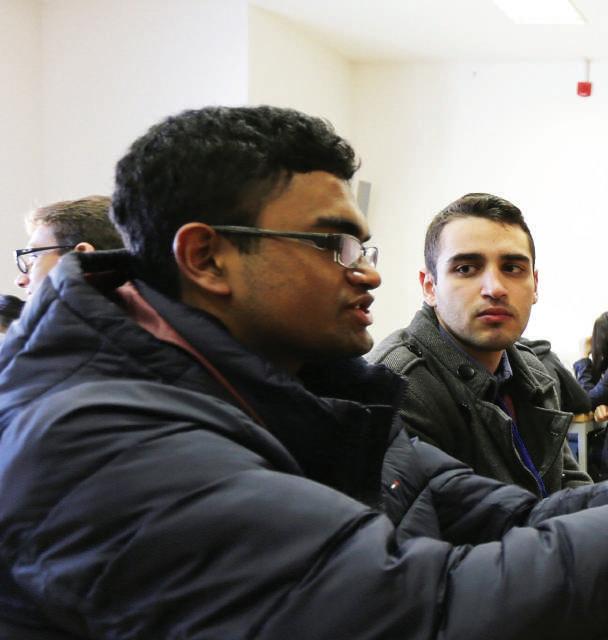
Victory @ King’s, a food truck concept. In third place was iPipe, which aims to reduce the amount of water wasted in Jordan by designing a water pipe that comes fitted with pressure sensors to identify the location of leaks.
While Startup with Purpose offered participants a week full of learning and challenges, it also proved to be a week of discovery; not only of new business and technology skills, but of just how much one person, and one team, can achieve when they set their minds to it. Many students began to realize that their career plans were changing in light of what they learned.
“Ultimately, our goal is not to spit out entrepreneurs, but to have entrepreneurship be a vehicle to learning about yourself and the things that you enjoy so you can make sure the career path you choose has more joy in it,” says Singer.
Offering King’s aspiring entrepreneurs some final advice, Singer says to seek out other entrepreneurs for support and encouragement, and to think of entrepreneurship as a game, as this approach would allow them some distance in order not to get emotional when they get rejections.
“Entrepreneurship is a frustrating series of no’s, and everyone, whether in Jordan or in Silicon Valley, faces this,” says Singer. “You can’t blame the environment for you not succeeding, you have to find a clever way to figure it out. Once in a while, you get a brilliant yes; the trick is to know that is the case, and not to be demoralized by the no’s when you get them.”
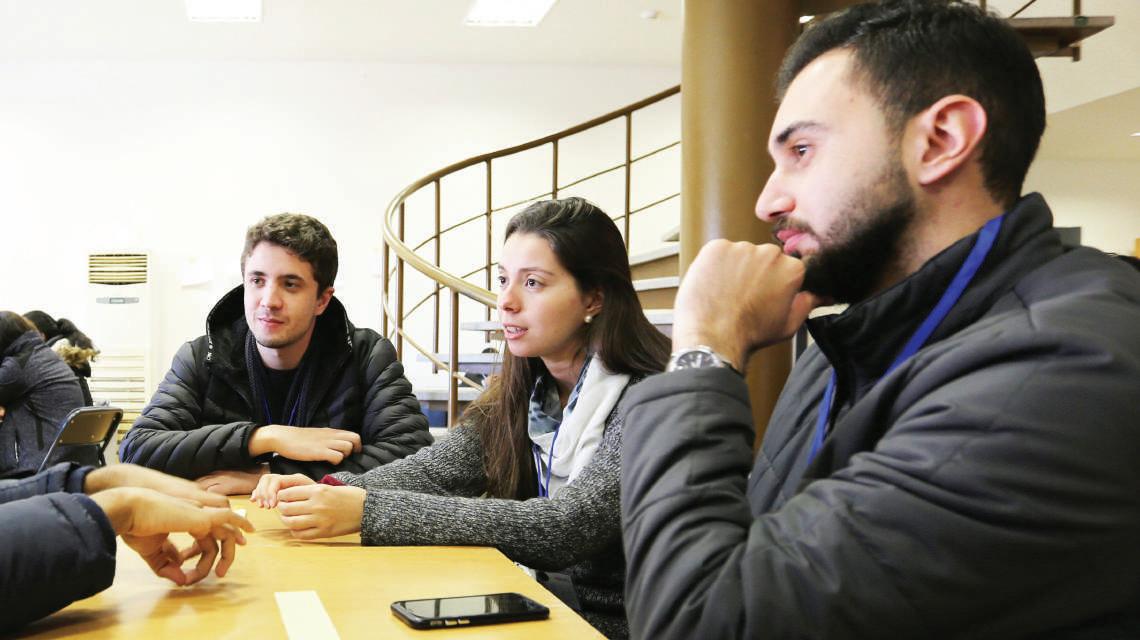
How does it feel to be back at King’s?
You forget how different the culture is at school; there are so many people from different cultural and socio-economic backgrounds, it makes it special in that sense.
Dr. John Austin took a pretty big chance on welcoming Startup with Purpose to campus; I wasn’t a model student or an inspiring freshman! I’m thankful for the opportunity he gave us.
What made you pitch Jordan for Startup with Purpose?
I had a particular interest in Jordan because of school, and I was studying the Middle East at UC Berkeley so I knew about the existing problems in Jordan such as refugees and the conflicts surrounding the country. I follow youth and unemployment issues, and I knew the serious problems that can come about as a result of lack of natural resources. What this program does is teach people how to create value without pulling stuff out of the ground. I saw this as an opportunity to come back because Jordan is the only country in the region where I think you could do something like this and find people who are really motivated.
What was your impression of Startup’s first bootcamp at King’s?
All the organizers and mentors have repeatedly said how impressed they are with the level of work they’ve been getting from King’s students. King’s students were more than meeting their expectations; they were really impressed by the ideas and the rate by which they were able to execute them in such a short period of time.
How has Arabic Year at King’s influenced your life since graduation?
King’s really gave me a bit of perspective that I wouldn’t have been able to get anywhere else. When I went to UC Berkeley I was taking some Middle Eastern studies classes for fun and thought I should keep it going since I had spent a year here and learned some Arabic. That ended up becoming my major. Now I’m a bit too invested to go back! This summer, I ended up working in a venture capital firm in Amman (Dash Ventures). King’s has really opened a lot of doors for me in the region, and opportunities I would never even have thought of if I had never come here.

The technology industry has traditionally been male-dominated
However, that trend is now changing, and one of the women breaking gender stereotypes and determined to encourage more women to pursue a career in technology is Razan Abdel-Hadi ’10.
Abdel-Hadi completed a Master’s degree from Imperial College Business School in 2015 before joining Ernst & Young’s (EY) graduate program in London. There, she worked on a range of client engagement projects such as data visualization and machine learning. Currently, she is a senior consultant in the Artificial Intelligence, Advanced Analytics and Robotics Department, focusing mainly on financial services clients.
Last January, Abdel-Hadi and her coworker Samantha Brook realized that there was a strong demand in the tech industry to develop technical skills. Eager to respond to this demand and provide their colleagues with new skills, they decided to launch the EY Women in Technology (WiT): Tech Bootcamps initiative.
The tech bootcamps are afterhours training sessions for all EY employees. In just one year, the duo have helped to up-skill over 250 colleagues across all service lines and delivered bi-monthly sessions on coding languages including Python, R, SQL and VBA, as well as tools such as Tableau. The initiative has already expanded from London to regional offices across England and Scotland, and is currently in the process of expanding to EMEIA (Europe, Middle East, India and
Africa) offices in France, Switzerland and Germany.
“We wanted to alleviate the taboo surrounding technology skills with women, moving away from the stereotype that coding is for ‘techy people,’ and particularly men, acknowledging that all of us can actually learn these skills, despite our gender, age or background,” said Abdel-Hadi.
As a woman, building a career in the tech industry however, hasn’t been an easy ride for Abdel-Hadi.
“One of the biggest challenges I faced was the perception that as a woman, I would be better suited to roles with a ‘softer’ skill set such as communications or program management,” she said. Abdel-Hadi was determined to overcome this

challenge by launching the bootcamps initiative and upskilling in technical skills that are commonly perceived to be ‘hard’ in the industry, which consequently led her to receive new roles and projects at EY.
The bootcamps quickly garnered widespread recognition and have become a highly respected initiative. Abdel-Hadi and Brook were awarded the EMEIA Financial Services award for “Creating Exceptional EY Experiences” through the EY peer-based global award program Better Begins with You. The program recognizes and celebrates EY people who have found inspiring and impactful ways to bring the organization’s purpose, “building a better working world,” to life.
Both Abdel-Hadi and Brook won the award for their efforts in promoting gender diversity within the technology practice, and have been nominated for the ‘Rising Stars in Consulting’ and ‘Women in Banking and Finance’ awards externally.
Since its launch, Abdel-Hadi says that there has been a direct increase in women assigned to technical projects, with senior individuals
stating that they feel confident in people who complete the tech bootcamps training.
“One of the biggest challenges I faced was the perception that as a woman, I would be better suited to roles with a ‘softer’ skill set such as communications or program management.”
“Although it’s a challenge to be a woman in the tech industry, the most rewarding aspect has been breaking boundaries and stereotypes, and creating a positive impact throughout the firm,” said Abdel-Hadi.
While this initiative initially began for EY employees, Abdel-Hadi and
Brook are planning to host events that would allow external guests to participate by partnering with DevelopHer UK, a nonprofit community dedicated to bringing women in tech together to create both opportunities and a network of support through events, workshops, and learning. They are also conducting a bootcamp session for the EY Foundation young women’s network to encourage girls at schools, aged 15-16, to pursue science, technology, engineering and mathematics (STEM) careers.
Abdel-Hadi is committed to continue promoting gender equality in the technology sector to increase the number of women working in the industry. To do that, she believes improvements are necessary in three key areas: promote STEM subjects to young girls in school, incorporate clear gender diversity targets and goals in a firm’s hiring strategy, and encourage men to be champions of gender diversity.
For any woman looking for a career in technology, Abdel-Hadi advises them to “not let anyone tell you what you can or can’t do, and learn to teach yourself new skills.”
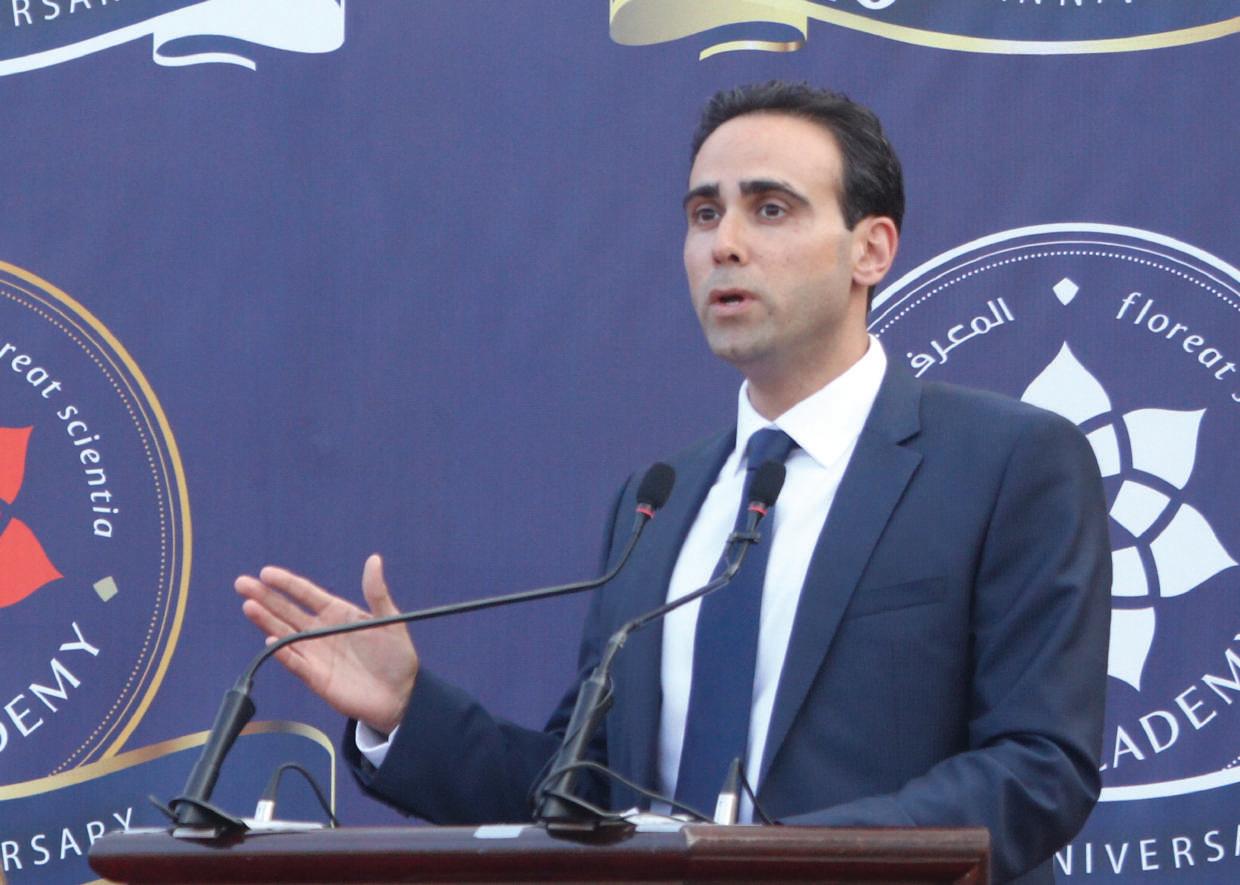
It was only three years after he graduated from the Massachusetts Institute of Technology (MIT) in 2003 with a degree in finance and economics that Jordanian entrepreneur Mohamad Haj Hassan co-founded Akhtaboot, a recruitment solutions provider that quickly became a household name among job seekers and employers across the Middle East and North Africa. Not content to stop there, a mere two years later he co-founded Jawaker, an online and mobile card gaming company for the Middle Eastern market.
Haj Hassan’s passion for finding solutions to some of the region’s most pressing challenges, his entrepreneurial spirit and his drive to keep learning made him a natural choice for Commencement speaker to the Class of 2017. Offering nuggets of wisdom drawn from his own experiences and challenges, Haj Hassan reminded King’s Academy graduates, as they headed off to make their own way in the world, that the hardest points in life are those that teach you the most about yourself:
Don’t
live to regret missed opportunities
I learned so much during my brief four years at college, but in retrospect, as my love of learning grew over the years, I realized that I didn’t learn as much as I should have. That has always been a lingering regret of mine. Always grab any opportunity to learn as you would a winning lottery ticket, because although you think that opportunity will be there forever, it is far more fleeting than you can imagine.
and that he applied through Akhtaboot and finally landed a job. He thanked us so much for building our site and for giving him and his family the opportunity to live a dignified life. I instantly felt both pride and guilt. Yes, I was partly responsible for this man’s good fortune, but it was not top of mind as my intention to do so. I thought of the economics first, and the impact was a by-product.
That was the truth of my mindset back then. The truth as I see it now is different: if you think of impact first, the economics will follow as a by-product. Serving others and adding value to their lives should be the core focus of one’s professional life, don’t let anyone ever tell you otherwise.
put in your best effort, and the people around you fill you with praise, please — I beg you — don’t swell your ego with the arrogance of a job well done, because it is not.
Remember the importance of service
My early days at Akhtaboot taught me about the importance of service. I am not going to tell you that I started a job portal without the intention of making money out of the business. I am, after all, a student of finance and economics. But my first rude awakening to some of the flaws in my logic about business came during the first week of launch. We were very much a scrappy start-up of four people, and I personally received and answered every help email for the first year.
I received an email from a man who said that he had been searching for work for the past three years,
Nothing can replace a solid work ethic
One thing I learned from my first real job that has stuck with me is that nothing, and I mean nothing, can replace a good solid work ethic. What I mean by a good work ethic is having a secret pride in your work, doing something to the best of your own abilities. If you do your best work, and you know it, but someone else doesn’t like it or is not impressed by it, then you need to develop the strength and confidence not to be beaten down by them. Conversely, if you don’t
There are many problems, and many ways to solve them
I love looking at problems that haven’t been solved and coming up with unique ways of solving them. Let me tell you two facts about Jordan and our part of the world: there are a lot of problems, and there are tons of unique ways to solve them. I firmly believe that only we can truly solve our own challenges. You have been blessed with a dichotomy of perspectives. You are from, and for, this great country of ours, and you are also worldly in your knowledge and exposure. The unique solutions that are waiting to be discovered are sitting in plain sight for those who wear the duallensed glasses of both perspectives.
Growth waits outside your comfort zone
When King’s asked me to speak at Commencement, I was excited, anxious and uncomfortable; but I have learned to always jump at the opportunity to do something that feels uncomfortable, for growth waits outside your comfort zone.
Listen and learn
We are all teachers, and we are all students. Just by sharing our experiences, we are teaching, and just by listening to others‘ experiences, we are learning. There are no experts, and there are no novices. Always have the graciousness to share and teach, and always maintain the humility to listen and learn.
Embrace failure
I humbly believe the secret to success lies in the mindnumbing grind of working towards the same goal, day-in and day-out, with blinded perseverance, allowing yesterday’s sweat to compound upon today’s tears.
The path will not be easy, you will fail — God knows that I have. But in the end, all that really matters is that you tried to solve our challenges, because there is invaluable knowledge in failure for those who embrace trial and error as a natural and essential part of success.
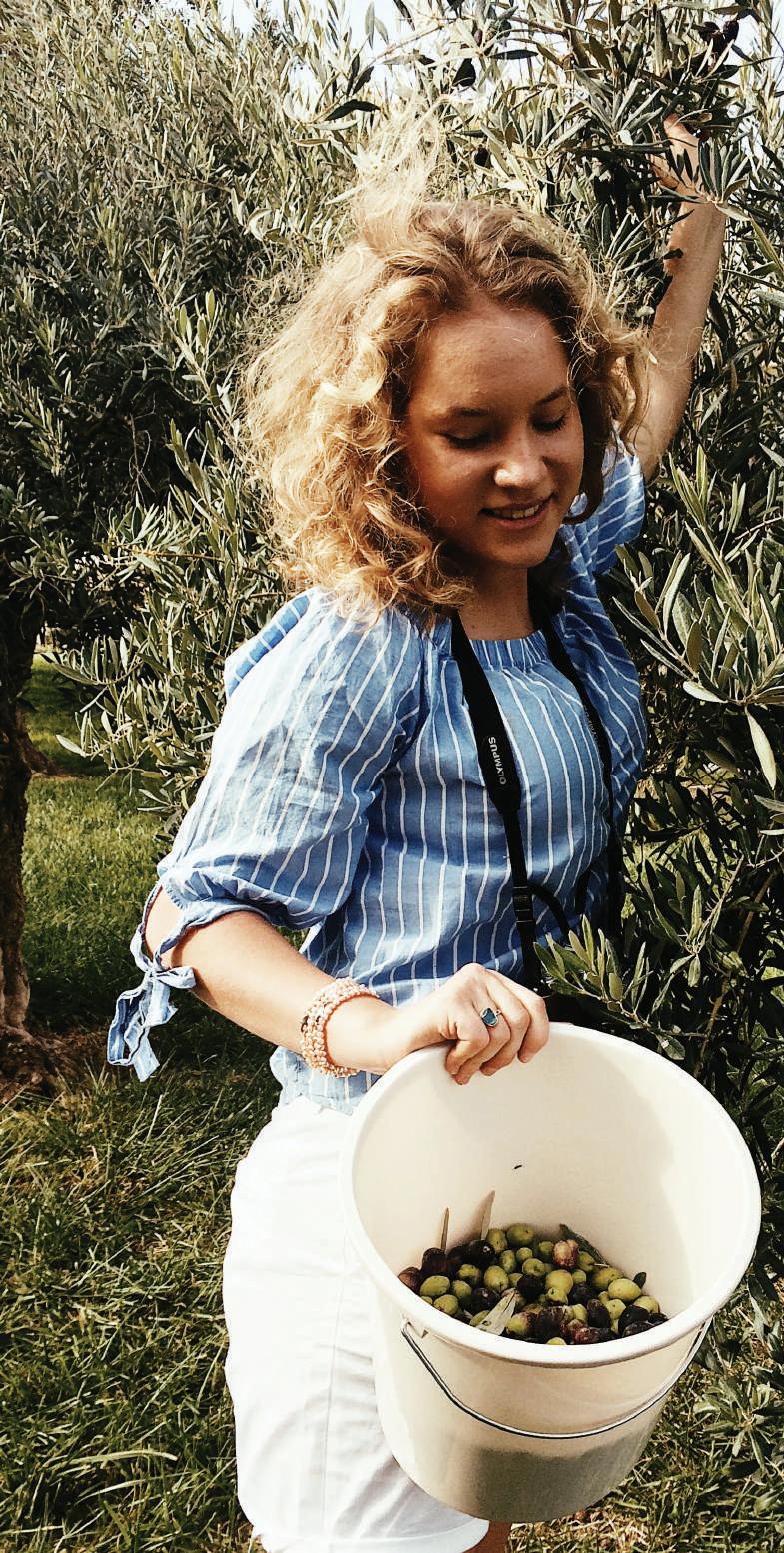
Alicja
TBorzyszkowska ’18 celebrates the olive harvest at King’s he first week of November in Jordan welcomed me with cooler temperatures, leaves falling off the trees and the sun setting just as I walk out of the Academy Building after classes. Days still warm and sunny are now followed by nights where the temperature falls below 5 degrees Celsius. Hoodies and sweaters, once deep down in the closet, are now piled up beside my bed; warm tea with lemon has replaced coffee. It’s officially fall.
BY ALICJA BORZYSZKOWSKAAlthough this mysterious season is very different here in the Middle East than in my country Poland, or in Pennsylvania, where last year I experienced a beautiful autumn straight out of a Rembrandt painting, this season in Jordan too is like a masterpiece on canvas. But, while in my home country we talk about Poland’s “golden fall,” in Jordan, fall is all about silver.
In Poland, at the beginning of November we reflect on death and gather during All Saints’ Day in memory of those beloved ones who are no longer with us. But in Jordan, at that same time of year, we celebrate the joy of new life.
November in Jordan and the Arab world heralds one of the most important and busiest seasons in agriculture — the great olive harvest. Jordan’s climate is dry and the weather conditions are generally unwelcoming to many agricultural crops. There is one plant, however, that nature seems to have created particularly for those harsh conditions and which grows surrounded by rocky landscapes as a symbol of life and hope: the olive tree.
When the olives are ready to be picked, Jordanian farmers and their families gather and spend long days in the groves. Old men from Ajloun, one of Jordan’s northern governorates, climb up the ladders and the silver of their hair blends into that of little olive leaves. Children chase each other around with sticks from olive trees, mothers prepare bread with fresh zataar (thyme) and pour sweet tea into small cups. Sometimes, groups of young men dance dabkeh around the trees and dogs sit on the porches and watch the whole spectacle while soaking in the last delicate rays of sunlight.
At the end of the day, baskets filled with mounds of the little fruit are stacked up on trucks and taken to the many commercial olive presses around the country where their oil is extracted and poured into dark glass bottles, which best preserve the properties of the precious oil — the other liquid gold of the Middle East.
Very often, as we think about olives, we focus on the Mediterranean region — Greece, Italy and Spain in particular. The symbolism and importance of the olive tree, however, extends much further than the south of Europe.
Olives were first cultivated about 8,000 years ago in Anatolia, from where they spread to the Middle East and are among the oldest known cultivated trees in the world.
It is quite usual for many rural schools to have abbreviated classes during the olive harvest, so that children can help their families with olive picking.
Olive trees and olive branches are mentioned many times in the Bible and the Quran and their nutritional values, extraordinary taste, healing powers and fundamental role in preparation of any meal have assigned them a symbolic and mystical value across almost every religion represented in the world.
The first recorded evidence of olive cultivation finds its place in the excavations of Palestine and Jordan, dating back to 3750 B.C.
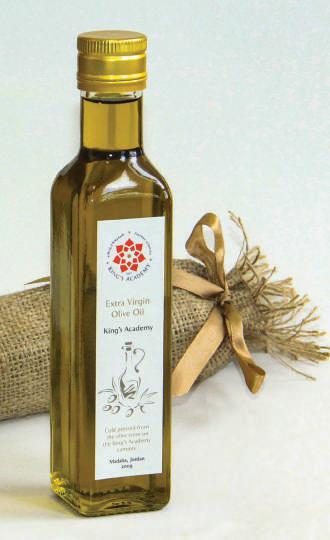
If you are eating dinner with an Arab family, it is rare not to find yourself listening to a discussion about olives — an amusing dispute about who has the best olives, or which country grows the healthiest trees, or which oil is of the highest quality. As the local saying in Jordan goes, “a home where there is no olive oil is a home where there is no love.”
Jordan plays a crucial role in the production and export of olives today, being the world’s second and eighth largest exporter of table olives and olive oil respectively. Not only are olives being picked by local families and company workers, but also by school students. It is quite usual for many rural schools to have abbreviated classes during the olive harvest, so that children can help their families with olive picking.
King’s Academy has over 2,000 olive trees on its campus. Last fall, I had a chance to take part in the grand harvest, where almost the entire student body and teachers gathered to pick thousands of kilograms of olives.
At King’s, all the olive oil used in the kitchen for the preparation of our meals and all the olives we eat in the dining hall come from the Nabali olive trees that grow on our campus.
Nabali is one of the oldest olive cultivars in the Middle East, originating on the banks of the River Jordan. King’s Academy gardeners take care of our treasure every day, watering the plants and keeping them in good shape.
Being in Jordan during such a special time of year was, for me, a unique experience, allowing me to connect with the local communities and showing me firsthand how the pace of life in the Middle East remains in tune with nature, matching its ebb and flow to the life cycle of the eternal olive tree.
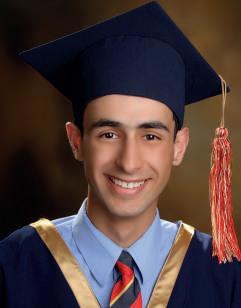
Nour Eddin Amer Class of 2012
Hometown: Sahab, Jordan University: Massachusetts Institute of Technology Currently: Works at Oracle Corporation
“I wouldn’t be where I am today if it weren’t for King’s, I wouldn’t speak English if it weren’t for King’s, I wouldn’t have been exposed to the teachers and mentors that I’ve been exposed to if it weren’t for King’s, I wouldn’t know so much about the world that I know now if it weren’t for King’s. None of that would have happened if there hadn’t been financial support for me at King’s Academy.”
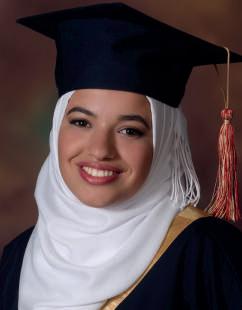
Omaymah Harahsheh Class of 2014
Hometown: Zarqa, Jordan University: Barnard College Currently: Just graduated
“His Majesty King Abdullah II of Jordan was very generous when it came to my education, I got to go to King’s Academy because of him and I am studying at Barnard College in New York because of him.”
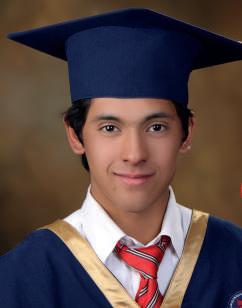
Suhayb Al-Jawhari Class of 2011
Hometown: Amman, Jordan
University: American University
Currently: Works at Amman Academy
“At King’s, I met students from Wadi Musa, Karak and Irbid who, like me, received scholarships. During those four years, I learned to discuss Jordanian and international social, political and economic issues; that was an important personal development and opened up many opportunities at university and at work. There is no door that is not open to me.”

Faher Elfayez Class of 2012
Hometown: Manja, Jordan
University: Georgetown University
Currently: Digital Communications Associate at the Jordan Information Bureau (Embassy of Jordan), Washington, D.C.
“The Summer Enrichment Program (SEP) at King’s was one of the turning points in my life. The SEP counselors gave us so much, they showed us that it does not matter where you stand right now in terms of knowledge and experience; what really matters is where you go next. A simple example is learning English; it didn’t matter to them how well you spoke it, what mattered is what you did with it.”
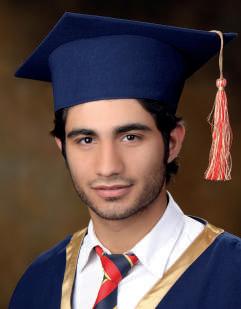
Ali Shajrawi Class of 2011
Hometown: Zarqa, Jordan
University: Wesleyan University; Goldey-Beacom College
Currently: Heading the analytics group at Karbone
“Before attending King’s, when I was still at a small public school lacking an intellectual culture and any form of extracurricular activity, I found myself needing something more than what I had in front of me. I cannot fully state how much King’s has helped shape the person I am today.”
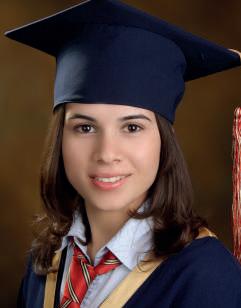
Hometown: Irbid, Jordan
University: Oglethorpe University
Currently: Completing a Master’s degree in international business
“King’s Academy became my second home since the sixth grade, when I attended the Summer Enrichment Program (SEP). Becoming a student at King’s was a life-changing experience for me. It gave me all the tools, taught me all the skills, and provided me all the courage to pursue my education across the pond. King’s opened the door for dreams that I never thought I could have.”
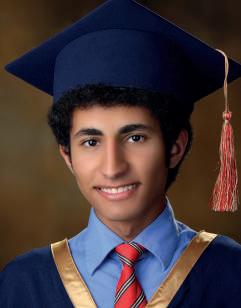
Hamzeh
Class of 2011
Hometown: Karak, Jordan
University: American University of Madaba
Currently: Program Impact
Analyst at the USAID Community Engagement Project
“I always refer to King’s Academy as the birth place of my enlightenment for it is there I realized that there is nothing more humbling than learning, nothing more empowering than teaching, and nothing more satisfying than building generations compassionate and capable enough to cherish their present and envision their future.”
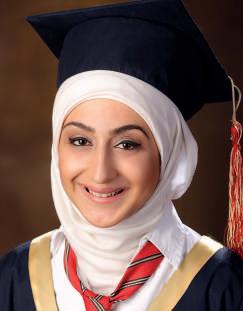
Sewar Quran Class of 2013
Hometown: Irbid, Jordan
University: Kenyon College
Currently: Paralegal with the international arbitration team at White & Case LLP in Washington, D.C.
“King’s taught me that being authentic is important to succeed. It taught me that being the best version of myself is the most important asset I can offer any university, employer, friend or teacher. Being at King’s opened my eyes to the importance of the word “community.” It showed me that your teachers are more than figures in the classroom. They are your friends, your mentors, your coaches.”
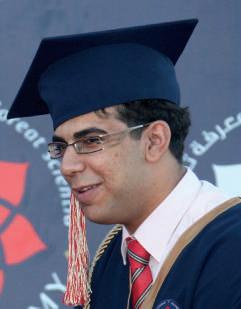
Thaer AlSheikh Theeb Class of 2011
Hometown: Zarqa, Jordan
University: Columbia University
Currently: Completing a PhD program in the Department of Middle Eastern, South Asian, and African Studies with a concentration in the Institute for Comparative Literature and Society
“King’s provided me with the opportunity to acquire a language without which my current work would have been impossible. I don’t simply mean English, but the conceptual tools which I continue to struggle with and work through today as my work moves to deconstructing categories taken for granted in social science.”
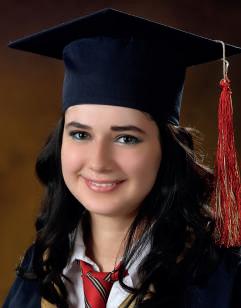
Aya Al-Jalamdeh Class of 2013
Hometown: Amman, Jordan
University: Royal College of Surgeons in Ireland
Currently: Final year of medical school
“King’s Academy is the best high school experience anyone could ask for. Not only does it have high academic standards, but it is also one of the most diverse schools in the Middle East. Being part of a multicultural environment has enriched me on many levels and I have learned to be more understanding, open-minded, and aware of all the these cultures and what is happening in other countries.”
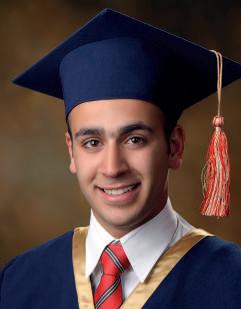
Barik Mhadeen Class of 2011
Hometown: Karak, Jordan
University: University of Nottingham
Currently: Researcher in human security at West Asia - North Africa (WANA) Institute
“What makes King’s Academy unique is its noble quest of ensuring that the King’s experience is accessible to all deserving students irrespective of their financial abilities.”
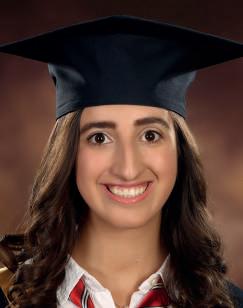
Leena Al Nsour Class of 2015
Hometown: Salt, Jordan
University: The University of Jordan
Currently: Third-year medical student, working on a lung cancer awareness campaign project in Jordan
“King’s taught me that no matter how hard you work, there’s always space for more – to learn, to improve and to give. And as King’s graduates, we must give back to the community and to those who are in need.”
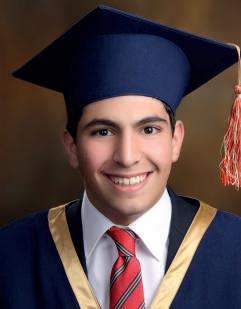
Yazan Fanous Class of 2011
Hometown: Amman, Jordan
University: American University of Beirut (AUB)
Currently: Completing a thesis for a Master’s degree in energy studies
“I have always believed that King’s students and alumni would change the world. Being a true member of the King’s family requires responsibility and commitment. Wherever we are, whatever we do, students and alumni will always represent this family. It is up to us to shape our careers and futures and reflect the true mission of King’s Academy.”
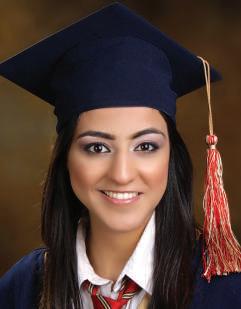
Shurouq Hijazi Class of 2012
Hometown: Gaza, Palestine
University: University of Rochester
Currently: Cybersecurity consultant at Ernst & Young
“When asked about King’s, I always say it’s an oasis. The Middle East tends to be pretty homogeneous, not only ethnically but in thought in general. To live with a very diverse group of students with an incredible amount of resources and support makes for an exceptional experience and teaches you to look at the Middle East through a different lens.”

Majd Masannat Class of 2012
Hometown: Madaba, Jordan
University: American University of Beirut, Lebanon
Currently: Monitoring and evaluation officer at USAID and case writer with McGraw-Hill Publishers, UK
“King’s Academy continues to shape my future long after I have graduated. Its influence extends beyond its classrooms and its teachers. It has taught me more about tolerance, logic and passion than anything else. I am grateful and more importantly proud to be a King’s alumna.”

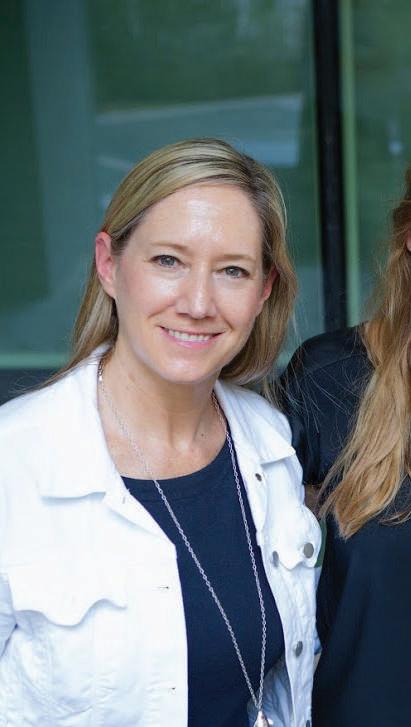 IBY LEEN HAJJAR
IBY LEEN HAJJAR
n the fall of 2006, one year before King’s Academy first opened its doors, Renee Dugan and Anna Dechert were part of a small team who worked together to help prepare the King’s Academy campus and recruit the first class of King’s students. That class included Sima Shabaneh ’10 and Tala Hammash ’10 who spent three years at King’s before they graduated. Today, 12 years since they first met in Jordan, these four members of the King’s community have reunited and are working together at New York University Abu Dhabi (NYU Abu Dhabi).
After their time working at King’s Academy came to an end, Dugan and Dechert were ready to begin a new adventure elsewhere, but although they left the campus, their connection to King’s remained steadfast.
Dugan went on to join the admissions team at the newlyfounded NYU Abu Dhabi to recruit the university’s first class of students. She currently serves as NYU Abu Dhabi’s associate dean of students and director of student life.
“For me, the connection to King’s Academy after all these years has to do with the people and friends I met there and my desire to stay in touch with them,” says Dugan. “We’ve been lucky enough to have King’s Academy alumni, like Hala Halaseh ’10, Muthana Tarawneh ’10, Suhaib Mohaidat ’11 and Azzam Fakhoury ’12 wind up at NYU Abu Dhabi as students.”
“Some of the people I met in Jordan remain my closest friends,” she adds. “These are people who I admire
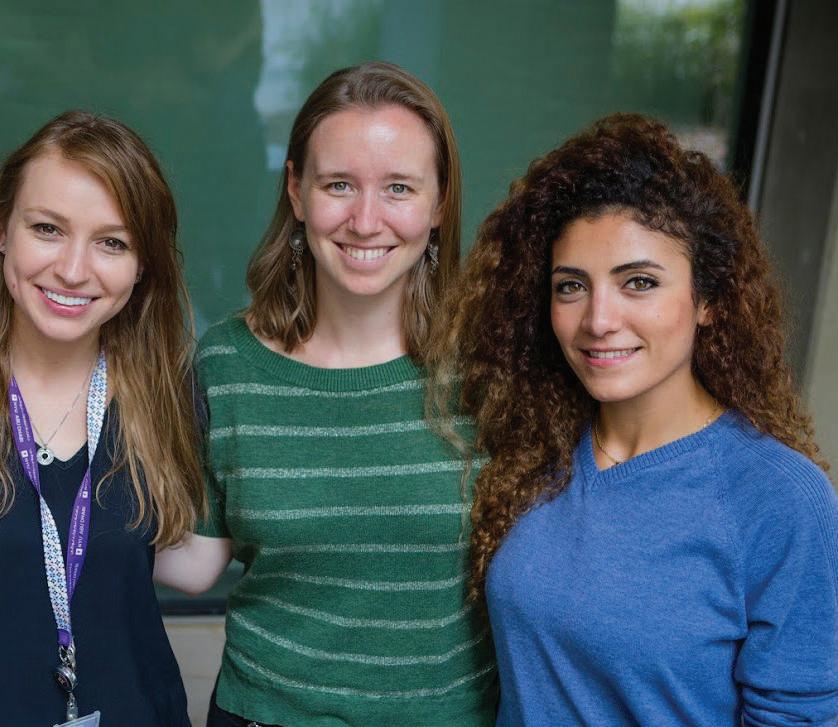
and respect both personally and professionally, whose advice and guidance I seek and value greatly.”
Dugan believes that her experience at King’s helped prepare her for her current position. “I arrived at NYU Abu Dhabi much more knowledgeable about the region,” she says. “I often send Reem Masri, King’s senior associate dean of admissions, an email thanking her for something she taught me in Jordan that has helped me be better prepared for my job in Abu Dhabi.”
It wasn’t long before Dechert also made her way to NYU Abu Dhabi to join Dugan in the Admissions Office. Dechert, who was a founding fellow at King’s Academy during her junior year at Yale University, says that her King’s experience made her realize how much she
enjoyed living in the Middle East and learning about a new culture. Following her junior year, she traveled to Egypt to try and improve her Arabic and soon after graduating from Yale University, she moved to Cairo to teach at an international school. Midway during Dechert’s first year in Egypt, however, Dugan informed Dechert that she was looking to hire someone to join her in the Admissions Office at NYU Abu Dhabi. “After my experience helping get King’s off the ground, I couldn’t pass up an opportunity to do that again,” says Dechert.
Today, Dechert is the director of admissions at NYU Abu Dhabi.
“My experience at King’s definitely made me more excited about the prospect of working with another
school with a compelling vision from the very early stages of its establishment,” she says. “My time at King’s was also my first time living outside of the United States and in the Middle East. That experience sparked a passion for the region that has obviously continued.”
“If I had not met Renee and she had not reached out to tell me about this project and encouraged me to consider working at NYU Abu Dhabi, I would not have found this opportunity. Looking back I can see a series of connections that didn’t guarantee me jobs, but instead helped me learn about opportunities that I otherwise would have missed, just like learning about King’s through my time at Deerfield Academy,” she says.
When Shabaneh and Hammash were trying to figure out their career paths during their senior year of college in 2014, they had no idea that they would soon join two members of the King’s community in Abu Dhabi. During her last semester at Mount Holyoke College, Shabaneh contacted a professor at NYU Abu Dhabi who was conducting a research project in an area of her interest. After scheduling a meeting with the professor and discussing potential opportunities, she was offered a research position at the university.
Working at a place with three former members of King’s Academy has helped Shabaneh feel at home in Abu Dhabi. “It is great having familiar people whom I have known for over ten years work in the same place,” says Shabaneh. “Although we work in different buildings, it’s
really nice having someone from the same class to walk down memory lane with from time to time. We created a little King’s Academy community at NYU Abu Dhabi.”
Hammash feels the same way. “I felt more connected with the King’s community once I joined NYU Abu Dhabi because a good number of King’s alumni and staff are now a part of NYU Abu Dhabi by either having attended the university as students or by working here,” she says.
After graduating from Georgetown University’s School of Foreign Service with a major in culture and politics and a minor in American studies, Hammash went on to complete a two-year fellowship with Teach for Qatar before joining NYU Abu Dhabi. She is now the community outreach coordinator at the university’s Office of Student Life. She helps create partnerships with local organizations, oversees volunteer programs
“I think I am where I am today because of three fundamental lessons that I learned at King’s Academy: to adopt a global and growth mindset, to always embrace opportunities, and to never shy away from asking for guidance.”
“I think I am where I am today because of three fundamental lessons that I learned at King’s Academy: to adopt a global and growth mindset, to always embrace opportunities, and to never shy away from asking for guidance,” she says.
At NYU Abu Dhabi, Shabaneh works as a research associate for Global TIES for Children, an international research-based center that focuses on designing, evaluating and implementing development programs for children living in conflict-affected and low-income countries. Her personal project focuses on developing social-emotional learning (SEL) programs for refugee children in Lebanon, Niger and Sierra Leone. The goal of these programs is to improve children’s academic achievement and mental well-being. Shabaneh travels to the targeted schools to train teachers in SEL strategies, and to test children’s academic skills and psychosocial behavior to determine the program’s effectiveness.
and opportunities, plans events and campaigns and manages the office’s communication issues.
“I believe that we as King’s students and alumni are very privileged because our King’s experiences help us remain connected with one another and help us find future opportunities and jobs once we graduate.”
All four women agree that their time at King’s helped lead them to their current positions. Although each departed King’s many years ago, the strong relationships they have maintained with members of the King’s community and the lessons they learned during their time in Jordan have played a significant role in their lives today.
“I learned so much from my King’s colleagues in the time I was in Jordan. Strong connections mean everything when it comes to professional success and personal happiness,” says Dugan.
firm believer in the value of a liberal arts education, King’s Academy invited an expert last fall to talk to students and parents about how a liberal arts education helps prepare students for the rapidly evolving 21st century job market.
Dr. Angel Pérez, vice president for enrollment and student success at Trinity College, described the goals of a liberal arts education to produce well-rounded individuals that develop their full potential as human beings by providing opportunities for breadth and depth of study in a variety of academic subjects.
The 21 st century job market, according to Pérez, is characterized by unprecedented change and technological transformation, and up to a third of the jobs that the current generation of students will have do not exist yet.
To make his point, Pérez drew on examples of companies that did not exist 15 years ago, such as Uber, Facebook, Shake Shack and Air BnB, but which have made a significant impact on how those industries do business, in addition to employing hundreds of thousands of employees around the world.
“So,” Pérez asked, “how do you prepare an entire generation of young people for jobs that don’t exist yet?” One way is for colleges
and universities to keep their finger on the pulse of the quickly changing job market and adapt accordingly. They must also teach students how to make thoughtful decisions about the trajectory of their lives and empower them with the resources to do just that, Pérez explained.
Research shows, however, that only 27 percent of college graduates are working in the field of their major, and that today’s students may have held between 10 and 14 jobs by the time they are 38 years old.
“How do you prepare an entire generation of young people for jobs that don’t exist yet?”
Which is why, according to Pérez, there is “no better time than now to be educated in the liberal arts curriculum,” as it provides young people with the skills they will need in the different jobs they are going to have.
Critical thinking, writing, analyzing, data quantitative communication and research skills are all part of a liberal arts education, and make up a skill set that is transferrable for the rest of a student’s life.
“Liberal arts can prepare young people for careers for the rest of their lives,” he explained. “Liberal arts colleges aren’t just supposed to prepare you for your first job, they are supposed to prepare you for your last job.”
Pérez said that it wasn’t only jobs and companies that were changing, but also employees. The young people of this generation, “Generation Z”, do not just want jobs, he said, they want careers with purpose and meaning. Studies show that students say they would rather take a pay cut to work for a company with a mission they care about; they want a job that will help them make a difference in the world.
Companies are paying attention to this, said Pérez, noting that many are hiring employees that fit their mission. Universities are also paying close attention, as they need to help students do that.
“Liberal arts colleges teach the study of human nature, society, belief systems, adaptability to change, innovation and ethics; all things today’s students will need throughout their life,” said Pérez, discussing some of the ways that liberal arts colleges and universities prepare students, such as through internships and “purposeful” work programs.
“There is no better time to be a young person in this world,” Pérez assured students. “You have an extraordinary amount of opportunities ahead of you.”
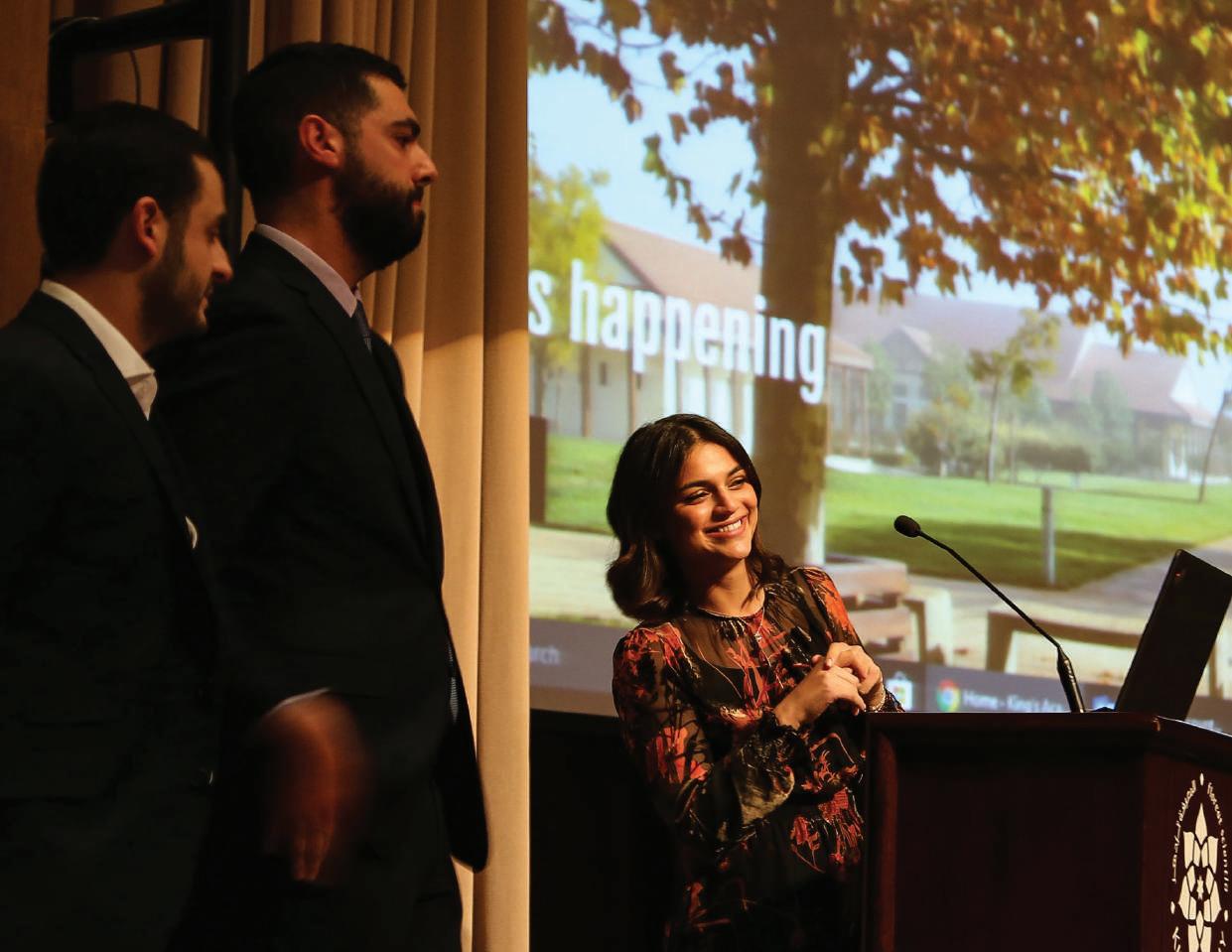
Another milestone in the history of the school was reached on January 15 with the launch of the King’s Academy Alumni Association (KAAA). Around 100 alumni representing every graduating class from 2010 to 2017 attended the event, which took place in the Abdul Majeed Shoman Auditorium, in addition to seniors from the Class of 2018 and some 60 faculty members.
KAAA was founded by alumni Hayat Abu Samra ’10, Omar Al-Majali ’10 and Ghassan Gammoh ’10. Committed to forming an official alumni body, the three spent months setting up the association, preparing for its launch and building a website (www.kaalumniassociation.org).
According to its mission statement, KAAA aims to cultivate lifelong relationships with alumni, foster a spirit of loyalty towards King’s, and advance the educational and career goals of alumni through reunions, networking events and fundraising.
“Those same lessons of leadership, teamwork and perseverance that King’s taught us as students, Ghassan, Hayat and myself have valued and used in the past year to establish this association,” said Al-Majali at the opening of the event. “It is these same values that the board of directors will apply in order to advance the interest of the alumni. It is our simple, yet I hope, impactful way of saying thank you to the school.”
Next to take the podium was Headmaster John Austin who said that creating a school like King’s was a team effort, and expressed his gratitude to faculty, staff, students, parents and trustees for helping the school grow in strength and purpose. Austin expressed his particular thanks to alumni, including the almost 1,000 who couldn’t be there, but who, he knew, were “with them in spirit.”
“That you are here this evening is a tremendous testament to your dedication to, and stewardship of, the future of King’s,” said Austin.
After participants watched a video celebrating the 10th anniversary of the school, a question and answer panel took place with alumni Dina Shawar ’10, Suhayb Al-Jawhari ’11, Dana AlJawamis ’10, Hani Murad ’11 and Barik Mhadeen ’11, who also offered seniors their advice about life after graduation.
Next was the announcement of the election results of the inaugural board of directors. Voted for in the previous weeks by their fellow alumni, the board members are: Omaymah AlHarahsheh ’14, Jinseul Jun ’13, Noor Massanat ’12, Firas Mouasher ’12, Farah Kasih ’11, Suhayb Al Jawhari ’11, Talal Abu Ghazaleh ’11, Dina Shawar ’10.
The event concluded with three lively dabkeh performances by current students, directed by Dance Program Coordinator Ryuji Yamaguchi, after which the attendees moved to the Hess Family Dining Hall to continue to reconnect with old friends and teachers over a special reunion dinner.
“What excited me most about this event was the number of alumni who attended,” said Gammoh, currently a faculty member in the Department of History and Social Studies at King’s. “This demonstrated the true loyalty that we have to King’s and the deep desire we have to stay connected and to give back. This is what the alumni association is all about!”
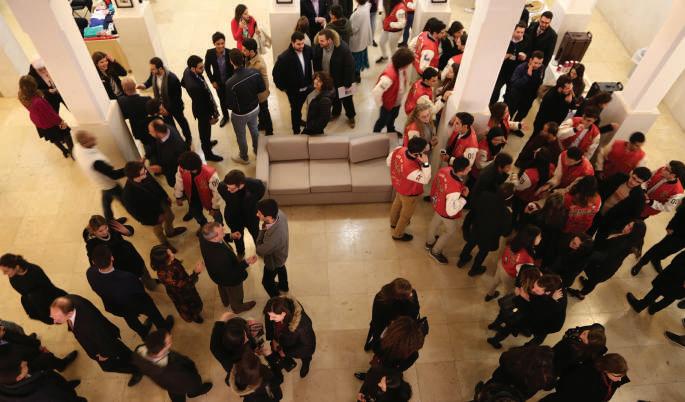
Hayat Abu Samra ’10
The establishment of the King’s Academy Alumni Association (KAAA) is a milestone. It is a true honor to be the president of this association and co-lead with the incredible first board of directors. We now have over 1,000 alumni spread across the globe. The one thing that will always bind us together is our sense of belonging to King’s and the responsibility that comes with being King’s Academy alumni.
King’s was an incredible place that not only gave us the tools we needed to pursue the education we wanted and the careers we sought, but the space to choose who we wanted to be. This association, for me, is about who we choose to be as alumni of King’s. It’s about how we choose to take the community we had, replicate it in our lives and give back to our school.
The main objectives of KAAA are to cultivate lifelong relationships with current and future alumni; to foster a spirit of loyalty towards the Academy; to advance the interests, welfare, educational and career-oriented goals of the alumni and to support current King›s Academy students.
In the coming months, we plan to establish mentorship programs that will foster meaningful relationships between alumni and current students. This will be an opportunity for alumni to act as mentors to students in many different facets of life and an opportunity for current students to seek advice and knowledge from alumni on academic and career-related questions. In addition, the association will play a leading role in helping students and alumni with internships and job opportunities.
Most importantly, KAAA is here to always give King’s alumni and soon-to-be alumni a sense of belonging and a sense of purpose.
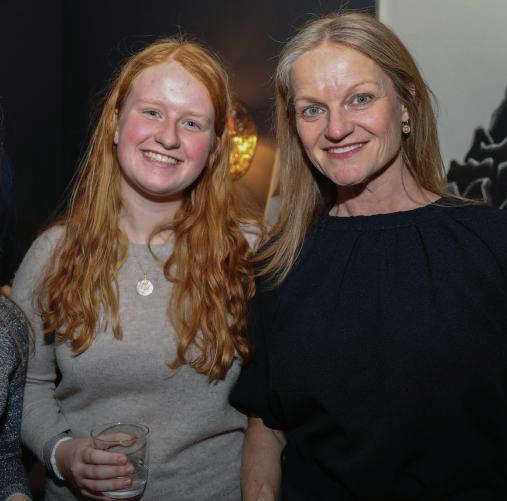
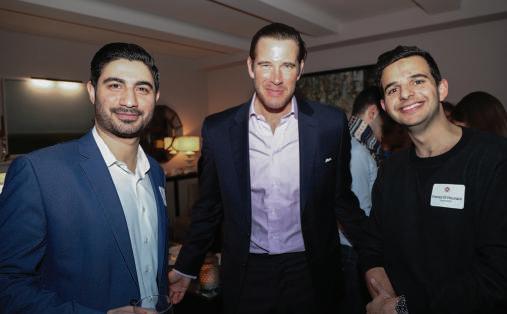
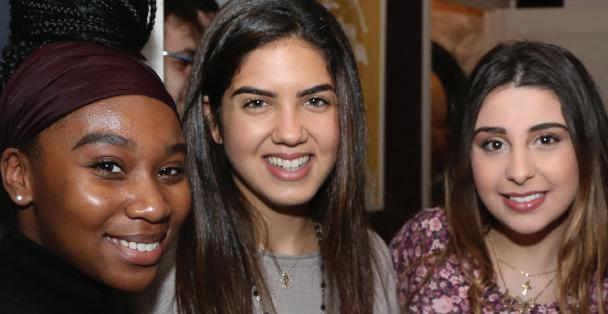
Alumni, parents, friends of King’s, and current and former faculty and board members gathered at a reunion in New York City on January 25. The reception, hosted by Jodie and Andrew Fink, parents of Arabic Year student Julia Fink ’20, was also attended by prospective students and parents who wanted to learn more about the Arabic Year experience.
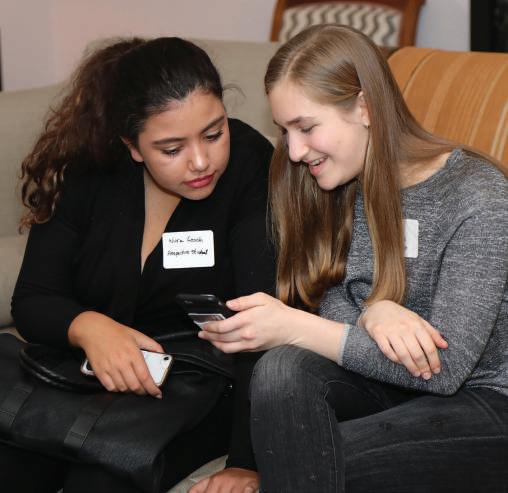
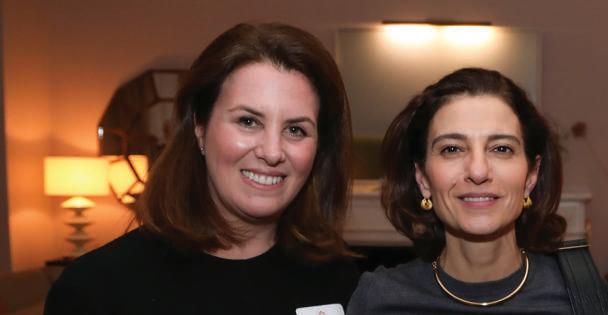
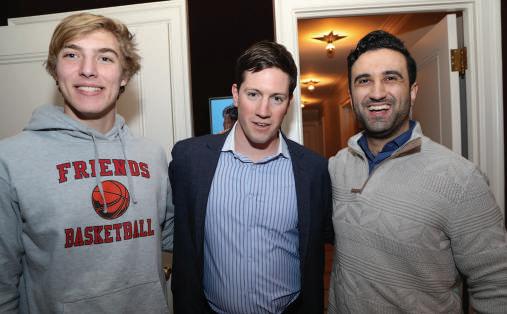
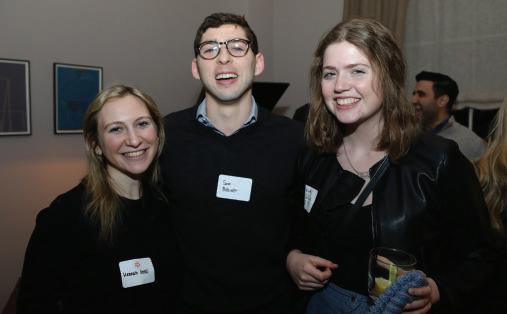
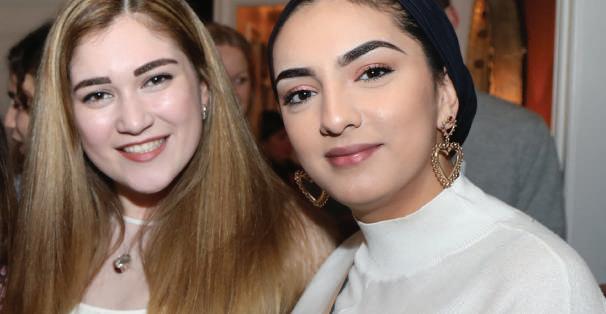
JANUARY
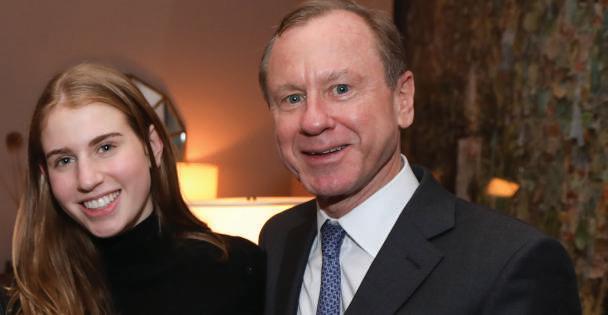
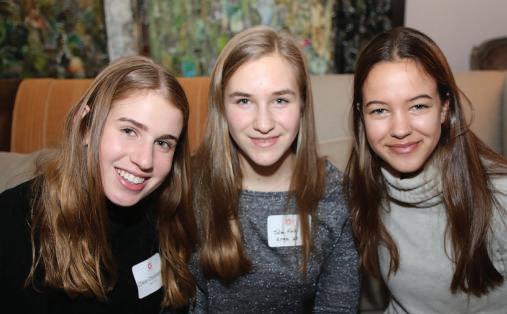
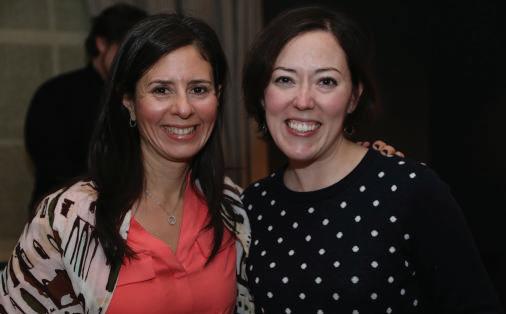
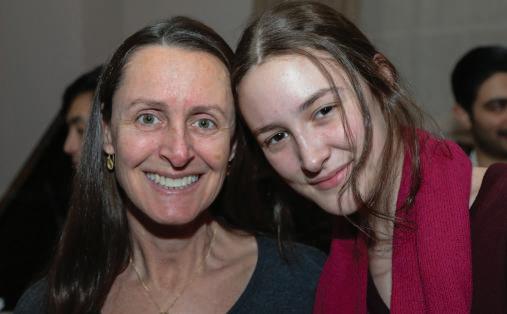
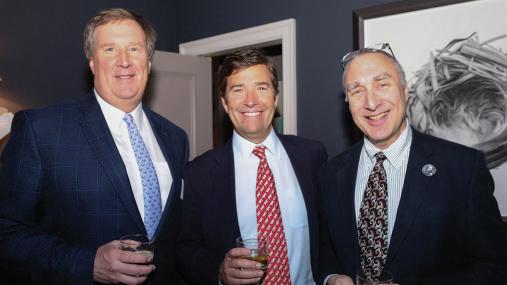
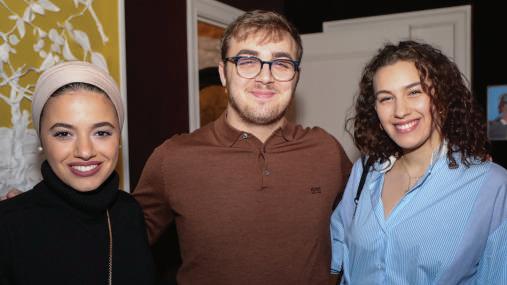
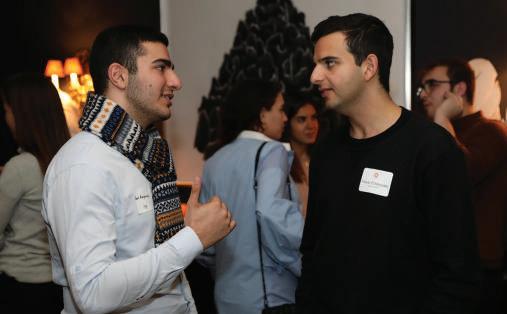
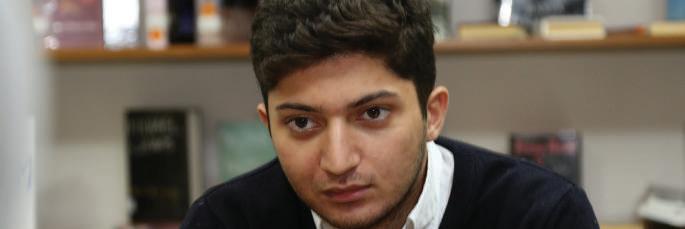 Survivor by Yousef AlBunniah ’19
Survivor by Yousef AlBunniah ’19
My story started on the day I was shot. There was a political vacuum in Iraq and everyone wanted to be in charge; to get control they would kill anyone who was competition. They shot the car to assassinate my father, but they killed my mother and shot me three times. It is my first memory, the only memory, of my country. They wanted to kidnap me, but we escaped to Jordan. When people see the scars, they feel sorry for me. They don’t realize that it made me stronger, it changed me completely. It changed how much I value safety, and also, whenever something
bad happens, I know it will pass, because I’ve been through the worst. If I had a choice between living a life where I take risks to make an impact, I’d choose that life instead of living a normal life where I don’t make an impact at all. I’ve lost a lot, what more can I lose? Life didn’t stop. Life went on, and I’m great, thankfully.
The purpose of life is to make an impact, so when I share what I learned from my story and I see the impact, I’m really glad because I’m achieving my goal, which is to live in a more peaceful world where people appreciate safety more. I hope they see life now in a different way.
When Carl Wakileh ’18 first heard about the Human Library, a movement aiming to challenge stereotypes and prejudices through dialogue, he was determined to introduce it at King’s Academy. Founded in Denmark in 2000, the Human Library works similarly to a traditional library, except, rather than checking out books, you check out people. The human books then engage in conversation with their readers, and by sharing their stories, help them to challenge their stereotypes.
Wakileh decided to contact one of the founders, Ronni Abergel, to learn how he could host a Human Library event at King’s Academy. The organization, which is currently active in over 70 countries, added Jordan to that list. Enlisting the help of fellow seniors Laith Akasheh ’18, Wael Kanaan ’18 and Abdul Aziz Al Bunnia ’18, Wakileh got to work on organizing King’s, and Jordan’s, first Human Library conference.
The plan was to invite a broad range of “books” to share their stories with
 Victim by Elias Tannira ’20
Victim by Elias Tannira ’20
I grew up in a village in Palestine, in a house full of books. My mother is the reason I started reading so much, especially biographies of people who fought for what they believe in and were persecuted for those beliefs. I saw that my community didn’t know a lot about what I was reading, so I started sharing my knowledge with my classmates and teachers. However, my village was full of superstition and people weren’t really open to new ideas. It was really terrible being labelled an infidel and being bullied by my own community. Reading about science made me happy, but I had to give it up; it is only human nature to want to be accepted.
I heard about an engineering and science event in another city. I
students and faculty. The organizers prepared the interested books by holding training sessions, while raising awareness about the event school-wide. The arts department developed a class art project creating posters based on the Human Library theme. The HH Sheikh Mohammed bin Rashid Al Maktoum Library was the most obvious place to host the event, and its librarians were excited to be involved in an initiative that so nicely complemented their own work. On the day of the event, King’s opened the Human Library conference with six books eager — and a little nervous — to share their stories with the school community.
went, and it changed my life. I found a community that accepted me, I started building relationships with people who were similar to me. Soon, I started organizing events and then — my biggest achievement — I started to give lectures at the university. But I still couldn’t talk to the people in my own community.
In this world, there are a lot of people who have ideas that would really be beneficial to others. They might get discouraged just because they are different from the community around them. For me, things turned out better than I ever would have expected. Never give up on your dreams, there are people in this world who have the same story, the same interests, and one day you will find them.
Initially anonymous, except for their titles — Survivor, Victim, Coexistence, Atheist, Exposed and Migrant — each book waited in one of the library’s many breakout rooms for readers to choose who they wanted to talk to, one-on-one. Each book could be checked out for 10 minutes, before the next readers took their turns. The organizers were pleasantly surprised to see the signup sheet quickly fill up, with many students, faculty and staff lining up outside the books’ doors.
“The books weren’t sure what to expect from this conference,” says Wakileh. “But they really enjoyed
the experience of telling their stories to different people. The only downside was time, the books were so passionate they would go over.”
Al Bunnia agrees: “We were worried not many people would sign up as books, but at this event we heard about so many other stories, so the next conference will be a lot bigger.”
Several readers had stopped by looking to pass the time at what seemed like a quirky event, but left feeling inspired by the courage shown by the books in sharing their personal stories, and heartened by the open and respectful dialogue between books and readers.
One such reader, faculty member Maram Haddad, who checked out Co-existence by Nadim Billeh ’19, was impressed. “He had written an essay about how religion can be divisive, then he found out that religion can be something that unites the Arab world. I’m happy to see that kind of thinking,” she says.
The event also gave students the opportunity to get to know each other on a deeper level, not always an easy task with busy schedules full of classes, assignments and cocurricular activities.
One of the books that Balqees Al Shorman ’18 checked out was Exposed by Alicja Borzyszkowska ’18 — who happens to reside in her dorm. “Alicja and I live on the same hallway and have talked a bit about her community service in Africa, but I wouldn’t necessarily have knocked on her door to ask her to tell me her story,” says Al Shorman.
Talking in person made the readers feel like they were walking in the books’ shoes — the stories became more relatable and they were better able to empathize with them.
“What’s different about talking to a person rather than reading a book is that with a book you read the story
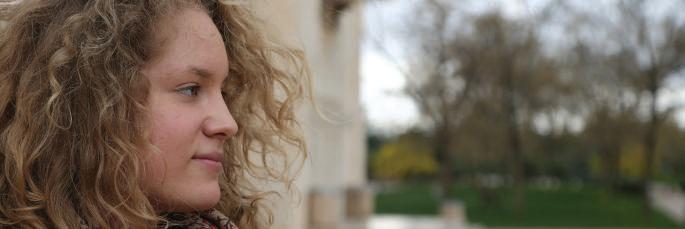
As a little girl, I grew up with Gambian tribes and dancers in Nairobi. I dined in Masaii villages, and studied the ivory routes through Dakar. One day, when I was 10, we went to this little village in Nairobi. There was no school, the children were running barefoot. They would take classes under a tree. What hit me was that every child and teacher was smiling, I couldn’t understand it. After that, I began my journey to find the purpose behind education and how important it is, to break stereotypes and really just be inspired by those people. My journey began with that idea, that regardless where you are
but you don’t feel as connected to the person who’s actually telling it,” says Dina Dawood ’20 who checked out Survivor by Yousef AlBunniah ’19. “Yousef’s story makes you appreciate life and focus on the bigger picture,” she says.
Faculty member Philip Carr-Harris made it a point to check out all of the books.
“Personal stories, more than anything else, bind people together,” he says. “What distinguishes humans from others is that we think about ourselves and the world metaphorically. That’s what stories are, metaphors. When we share that, we enrich each other’s humanity.”
from, what race and religion, as a child and a human you have an equal right to education even if you don’t have the opportunity.
As an international student, journalist and photographer, I have travelled across continents to document the lives of my peers and their families. I have seen violations of gender equality, of religious freedom, of political stability and peace. The stories I have documented, the scenes I have seen and the people I have met have changed me forever: I decided to be the change myself. I want to share these stories, because through my experiences I can increase the self-awareness of my peers that they are capable of doing great things.
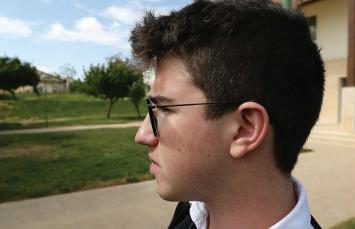
My grandfather Elia Al-Billeh was friends with Abu Hassan, a Muslim shepherd. In 1999, they were the first to inhabit the Tabarbour neighborhood in Amman. Their friendship
was the glue that held the community together. On Abu Hassan’s land grew a huge berry tree, which drew everyone in the village. People stopped to pluck a juicy breakfast on their way to work or school, children climbed its branches, and elders reclined under its shade. Our neighborhood was a welcoming place, there was no differentiation between us. My memories of that time delight me.
After my grandfather and Abu Hassan died, the community grew apart. The berry tree was cut down. The villagers lost their sense of connection. Friends started to regard me as different because I did not follow the same faith as them, I became an outsider. In my grandfather’s time, his friendship with Abu Hassan was an example to the villagers of how people of different faiths could live in harmony and co-existence.
To me, Abu Hassan’s berry tree symbolized that unity. When it was cut down, it was as though the community ceased to exist as well. As I witnessed this shift, I began to think of religion as a divisive force that was driving the neighborhood apart. This division is transforming our society into something unrecognizable. Religion should bring people together, not drive them apart. The discord and terrorism in the world today is a result of ignorance and lack of acceptance which has blinded our humanity. We need to remember that whatever faith we follow, whatever our differences, in the end we are all the same, we are all humans.
Although Arabic is the world’s fifth largest language community, less than one percent of the internet is written in the language. Mawdoo3.com set about to change that.
As a multilingual and multicultural school in the Middle East with students and faculty from over 40 countries, King’s Academy embraces every opportunity to celebrate that diversity. King’s is also very much a Jordanian school, with strong ties to its Arab identity, language and culture. As such, World Arabic Language Day — observed around the world on December 18 — is an important date on the school calendar, one that enables the school community to celebrate the language spoken, or studied, by almost everyone on campus.
This year, Najeeb Fakhoury ’19, Mustafa Hourani ’19 and Yamama Almghawish ’20 took the lead in organizing an Arabic language event on December 5 to mark the occasion, in collaboration with Arabic faculty members from the Department of Communication, Rhetoric and Literary Arts.
BY MUNA AL-ALUL
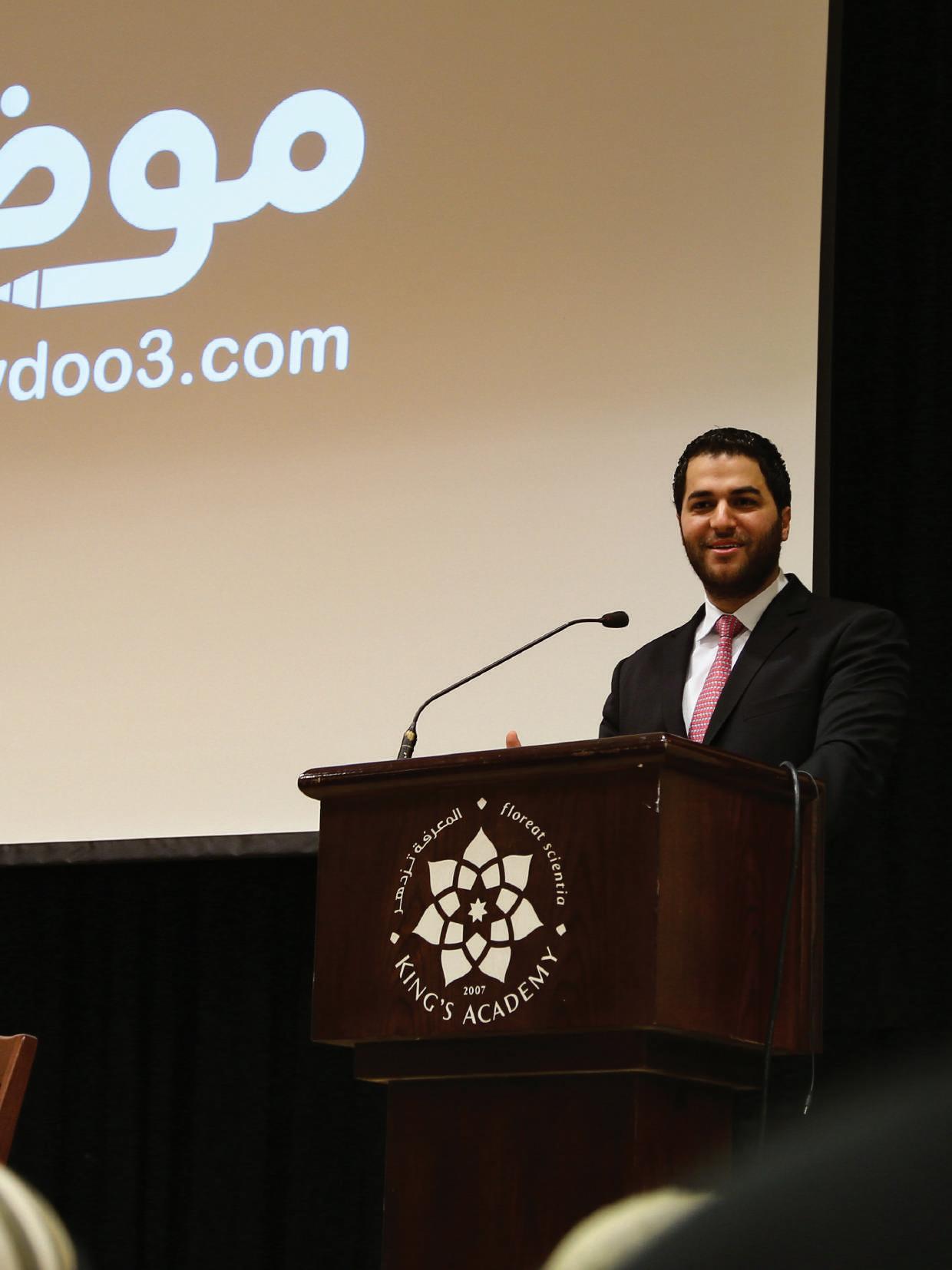
The headliner of the evening was guest speaker Rami Al Qawasmi, one of the co-founders of Mawdoo3. com, the world’s first comprehensive online Arabic encyclopedia that uses the wiki system, similar to Wikipedia — Mawdoo3 literally means “subject” in Arabic.
Mawdoo3.com was initially established in 2010 after its cofounders, Hashemite University students Rami Al Qawasmi and Mohammad Jaber met while doing volunteer work. Jaber was a medical student who had established an organization called Jordan Volunteers, but he also had a passion for entrepreneurship. A year earlier, he had come up with the idea for Mawdoo3.com after reading books on e-marketing.
Although Arabic is the world’s fifth largest language community, spoken by 4.5 percent of the world’s population, less than one percent of the internet is written in the language. There is a huge void where Arabic content should be, and thus a huge potential for demand. Jaber’s research revealed an opportunity to enrich the Arabic content on the internet with high quality articles, and to develop an analysis service for keywords in Arabic.
A year after Jaber and Al Qawasmi founded Mawdoo3.com, the startup was awarded first place in the Queen Rania National Entrepreneurship Competition, in the universities and academics category. In 2012, the partners opened a small office, officially launching their company.
Their goal was for Mawdoo3.com to become the number one site in the Arab world, and to fill the void in reliable digital Arabic content by publishing credible, informative articles of a high editorial standard on topics ranging from art, science and health, to business, sports and history, to advice, beauty and food. Starting out, however, they were only publishing 20 articles a month.
“When we reached 10 users on our site at the same time, we were so excited,” said Al Qawasmi, remembering Mawdoo3.com’s humble beginnings. “There wasn’t a demand for our services at first. We tried to attract advertisers, but they wouldn’t give us the time of day unless we had over a million visitors to our site, which we didn’t at that point.”
To achieve their goals, they needed to convince others to support them, starting with their friends who helped them out financially. Then, in 2014, Al Qawasmi and Jaber convinced Dubai-based investor EquiTrust to support them to the tune of $1.5 million.
“We tried to attract advertisers, but they wouldn’t give us the time of day unless we had over a million visitors to our site, which we didn’t at that point.”
With that injection of funds, Mawdoo3.com has grown from strength to strength. Today the site produces tens of thousands of articles a month, employs 65 full-time employees as well as around 400 paid experts and contributors. It has up to 20 million visitors a month, and 42 million users, of which 30 million are unique. Al Qawasmi and Jaber reached their goal; Mawdoo3.com is now the number one Arabic website, beating out all of the competition.
Quality is key, according to Al Qawasmi. He strongly believes that Mawdoo3.com has a responsibility to its millions of users to provide accurate, trustworthy and highquality content. It only publishes original informational articles —
what he calls “evergreen content” — while rejecting opinion, news and promotional pieces. Its in-house auditing team is responsible for verifying the content of every article for plagiarism, and reviewing and editing for accuracy and quality.
Al Qawasmi’s talk was followed by a lively question and answer session with students fascinated not only by the entrepreneurial aspect of Mawdoo3.com’s meteoric rise to fame, but also the technology behind it. Al Qawasmi explained how Mawdoo3.com is the first site to use artificial intelligence in Arabic. Its powerful search engine is a constantly evolving system designed to identify, sort and present the data most likely to meet the needs of users. As the site is used more and more, its computers are learning more Arabic language every day. The search engine also helps to generate new article ideas; the website receives over 4 million searches each month, any topic that is not found on the website is reported to the team, who prioritize that subject to be written about.
In just a few short years, Mawdoo3. com has gone from being an idea hatched by two university students, to becoming the one of the world’s most essential Arabic language resources on thousands of subjects for over 370 million Arabic speakers.
According to Al Qawasmi, there was one thing above all others that resulted in their company’s success: finding, and hiring, like-minded people. Jaber and Al Qawasmi’s passion for volunteer work led them to each other, and to establishing Mawdoo3.com. That formula has continued to work for them.
“I believe that if you do good, good will come to you. Many of our employees were found through volunteering,” says Al Qawasmi. “They are the secret to our success.”

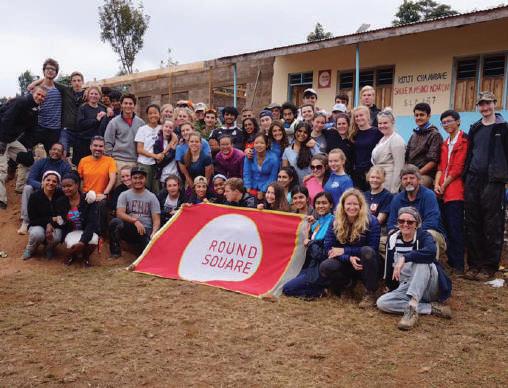
Sevan Balian ’18 participated in “Big Build Tanzania,” a twoweek international service project that was part of Round Square International’s 50th anniversary celebrations. Balian was one of 50 students from five continents who came together to work with the local community in Marangu to improve educational facilities and infrastructure at Ng’aroni Primary School. “When I looked back at the work site before leaving, I felt a sense of accomplishment because I knew what I did was for a good cause,” said Balian.
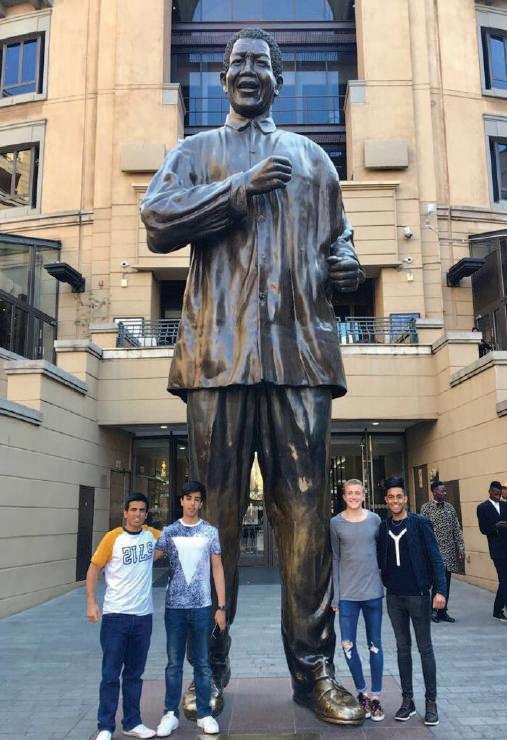
Table Mountain National Park, Cape Town and the Nelson Mandela Museum were just a few of the sights that Zaid Al Fayez ’18 took in while on exchange in South Africa where he attended St. Stithians Boy’s College.
Community service was an important part of Ibrahim Muasher ’19’s summer exchange in Singapore; his trip included volunteering at a hospice, where the residents taught him to play traditional Asian board games. In addition to attending classes at United World College of South East Asia, Muasher visited local attractions, experienced the adrenaline-rush of zip-lining, and treated his host family to a taste of Jordan with home-made qatayef.
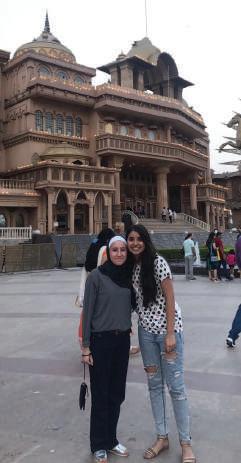
Rand Al Harahsheh ’18 spent the summer boarding at The Lawrence School in Sanawar, India, where she made good friends and enjoyed getting to know the people, food, culture, nature and wildlife of the region.
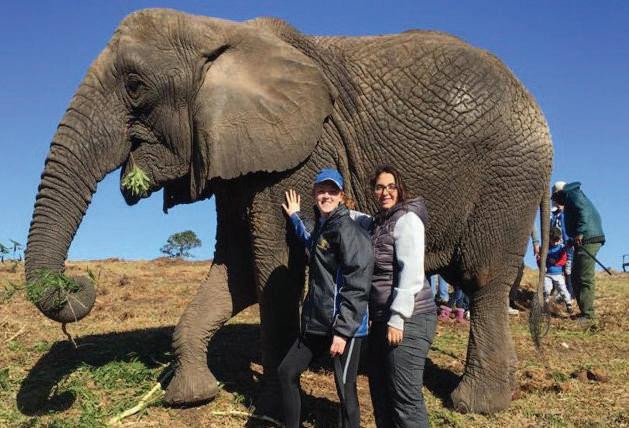
Selina Al Masarweh ’19 attended St. Cyprian’s School in South Africa on summer exchange. The experience helped her step outside her comfort zone. During her month-long stay, she tasted various local dishes, faced her fear of animals, and went on a road trip with her host family that involved hiking and mountain climbing, and where she learned to “trust nature.” “Climbing Vogelgat Mountain with my host family was one of the best experiences,” said Al Masarweh.

Rasha Al Majali ’19 attended Roedean School during her summer exchange in South Africa where she stayed with the family of her host, Makindye Jean. They visited Limpopo and went on safari to Kruger National Park, one of Africa’s largest game reserves. Another highlight of her trip was meeting the Jordanian Ambassador to South Africa.
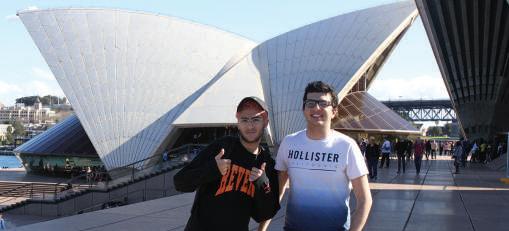
Walid Abu AlAfia ’19, along with Laith Kassisieh ’18, boarded at Scotch College in Perth, Australia for three weeks before staying with a host family for another three. Their host dad taught them to surf, took them for nighttime jogs on the beach, and sightseeing across the country. They encountered koalas and kangaroos at Perth Wildlife Reserve, visited famous Sydney landmarks including the Sydney Opera House and Harbour Bridge, Bondi Beach, museums, Blue Mountains National Park, and Rottness Island, home to thousands of quokkas, the “world’s happiest animal.”
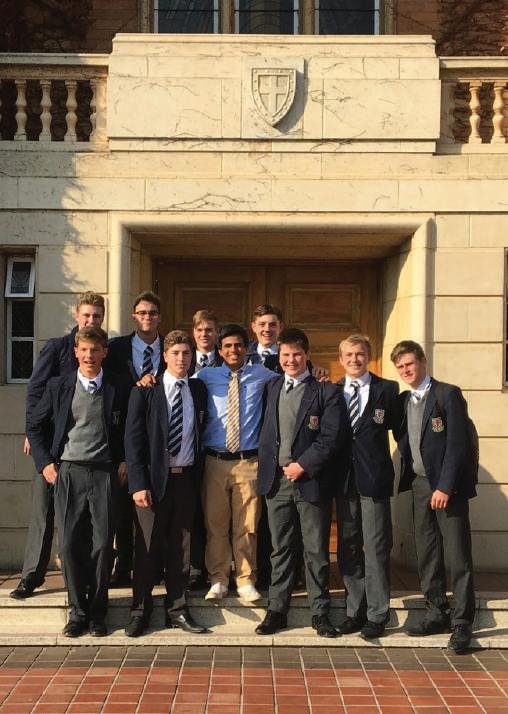
Laith AlHadeed ’18 attended St. Stithians Boy’s College on exchange in South Africa where, in addition to going on safari and sky-diving, he visited some of its most famous landmarks, including Table Mountain and Lion Head Mountain, Cape Town, Sandton City, Nelson Mandela Square, the Apartheid Museum, and Gold Reef City, to name a few.
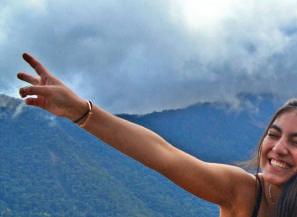
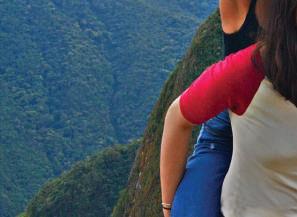
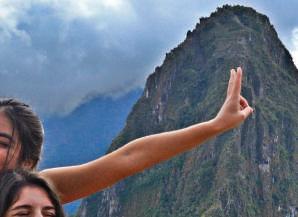
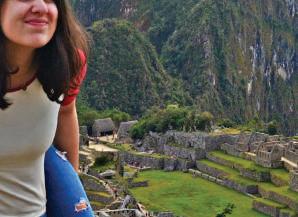
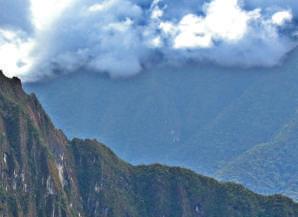

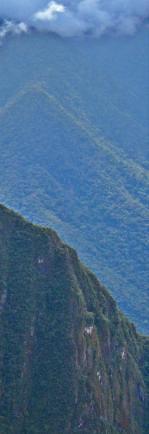

Sama Issa ’18 visited Peru on summer exchange. She spent five weeks in Lima, where she attended Markham College, tried delicious Peruvian food, visited the World Heritage Site Machu Picchu, attended traditional horse races, went quad-biking and zip-lining and helped to build a house for a local family.
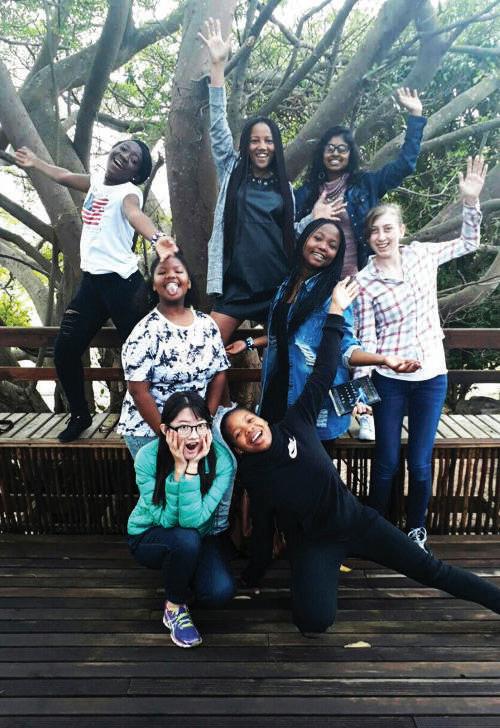
Boarding for four weeks at the Oprah Winfrey Leadership Academy for Girls in South Africa helped Xu Huang ’19 get to know more about her host country’s culture. In particular, a camping trip to Sugar Bay really allowed Huang to bond with, and learn more about her new friends who she said were so welcoming. In turn, Huang taught them about Chinese and Jordanian culture, and about being a student at King’s.
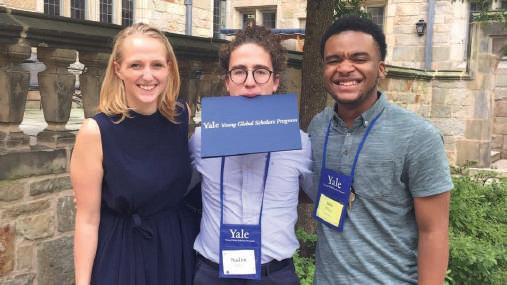
Nadim Billeh ’19 attended Yale University’s Young Global Scholars summer enrichment program in the United States, which he said gave him a new perspective of medicine and how different fields can overlap resulting in subjects such as biomedical engineering.
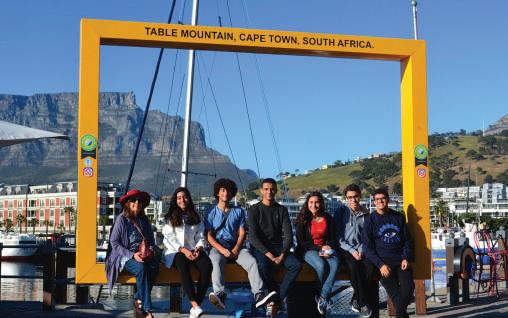
Ramez Dababneh ’18, Mohammad Shdaifat ’18, Awni AlNammari ’18, Talal Kolaghassi ’18, Lena Al-Homoud ’19 and Zeena AlFayez ’19 attended the Round Square Conference in South Africa in September accompanied by faculty members Salwa Manaja and Khaila Al Sawalha. After a busy but successful conference, they found time to take in some sights, including Table Mountain, Muizenberg and Robben Island.
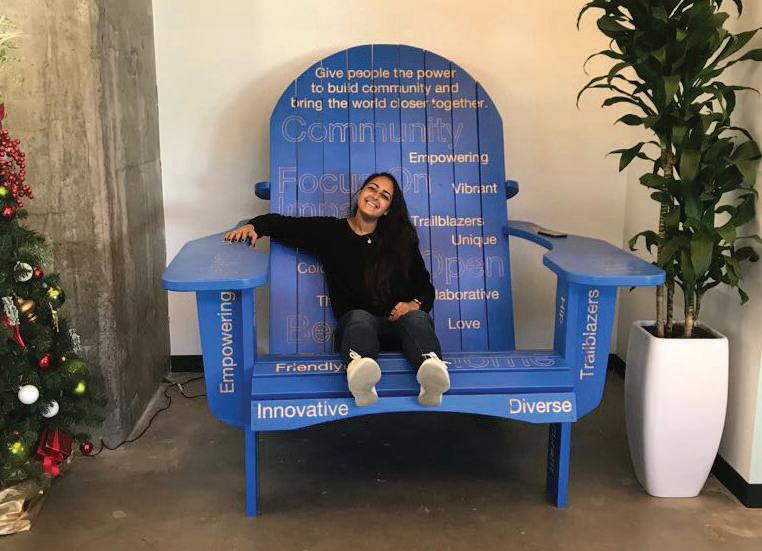
Landing a job at Facebook, the world’s largest social network company, would seem like a dream come true to just about anyone, and Noor Alhaidary ’12 wanted to make sure that dream became her reality.
After graduating from the University of San Francisco in December 2016 with a Bachelor’s degree in international studies and a minor in Middle Eastern studies, Alhaidary
applied for and received a threemonth contractor position at Facebook for content review and language support for Arabic, Swahili, French and Spanish. That stint at Facebook made her realize that she didn’t want to work at any other corporation and she would do whatever it takes to land a full-time role at the social media giant.
Alhaidary applied to 18 different positions at the company and after completing a three-week interview
process, in October 2017, she secured a position as a business integrity analyst at Facebook’s Austin office. The business integrity team is responsible for building and maintaining trust and safety between users and the commercial entities they interact with.
Beyond King’s had the opportunity to speak with Alhaidary about what she’s learned from her experience at Facebook so far.
What does a typical day at Facebook look like?
A typical day at Facebook looks different depending on the day, and the person you ask. In my experience here, each day has been unique and exciting; we are encouraged to take on projects that interest us so we spend a lot of time working on them. We also spend a lot of time in meetings and developing solutions to problems and ways to implement them. I find myself constantly learning about myself and about the world in which we live.
Why do you think Facebook is so popular in today’s day and age?
I think Facebook products tap into the nature of human beings — and the modern world, for that matter. As connectivity becomes increasingly central to conversations on development, the ability to share experiences becomes increasingly important. With so many people, myself included, living so far away from family and friends as international travel becomes more commonplace, the existence of a platform to connect and share is as important as ever.
What’s the most important lesson you’ve learned at Facebook?
What are the perks and benefits of working at Facebook?
I’ve learned how important it is to work with cross-functional partners. Being able to work with, and depend on others with varying skill sets is important, especially in such a dynamic field as technology. In addition to practical skills, I’ve learned how important it is to speak up, particularly if your perspective or experience is different — although that might be difficult at first. Taking into account the many differing perspectives on a matter usually serves to produce a more holistic result, which is increasingly important as we grow and move and find ourselves in environments that are different from what we’re used to.
What’s the most surprising thing you’ve learned about Facebook?
The most surprising thing about Facebook is its focus on impact. Facebook designs its products with special attention to the real and measurable changes we hope to have in the real world, which definitely gives my work a sense of importance. 2
The greatest benefit of working at Facebook has to be the constant company of brilliant, inspired and incredible people. To work at Facebook is to be your authentic self every day, which, itself, is a perk. Facebook really does take care of its employees, and the overall environment here reflects that.
5
What does Facebook look for in a potential employee?
It really depends on the role, and the person, but I would say that being able to relate to Facebook’s culture is key.
What’s one piece of advice you would give to someone who hopes to land a job at a corporation like Facebook?
I would advise that they find something they really care about, and look for a company that cares about that, too. Do your research, and understand where you’re trying to go. Really knowing yourself and what you can contribute makes for a strong case, and being passionate about it makes for an even stronger one. 7
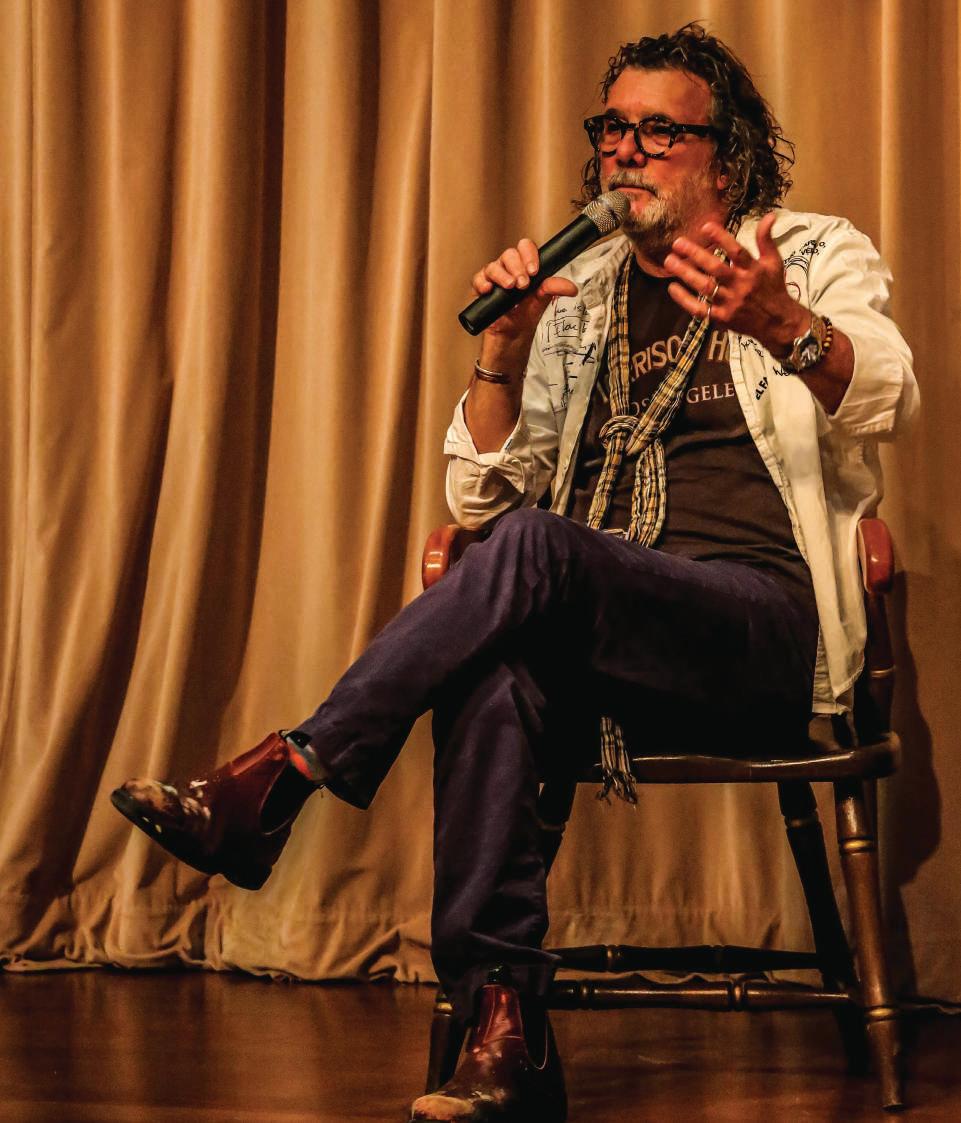 BY MUNA AL-ALUL
BY MUNA AL-ALUL
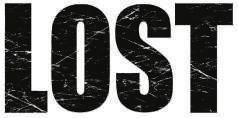





Last September, television and film enthusiasts at King’s Academy got the inside scoop on directing from American television and film director, producer and former actor Jack Bender.
Best known for his work as a director on Lost , The Sopranos and Game of Thrones, Bender talked about his path to becoming an acclaimed television director, how he keeps the creative juices flowing after five decades in the business, and what is was like to direct that episode of Game of Thrones
Born with a creative bent, Bender has had a life-long passion for painting and sculpting, but it was acting he felt he could make a career out of. Despite gueststarring in some of the most iconic television shows of the 1970s, such as All in the Family , he soon realized that being behind the camera was truer to his nature than being in front of it.
“I made that internal decision and committed to directing,” said Bender, addressing a full house in the Abdul Majeed Shoman Auditorium.
A lot has changed in the television and film industry since Bender began his career. Technological advances have seen TV screens at home get bigger, more people are using their phones to watch shows, and streaming sites – such as Netflix – have changed the game.
“It’s really about storytelling, not so much the medium,” Bender explained. “It’s all the same now. The difference is, as a storyteller and a writer, producer, director or actor, you get maybe 10 episodes to tell a story, which means you can take your time and really get into the depth of the characters.”
Pursuing a career in a field that you are passionate about is entirely possible, according to Bender, even in the television and film industry. “We’re living in a time where kids are making movies on YouTube and they’re getting watched and that’s great. Every opportunity you have to explore and do what you want to do, do it. Do theater, act, direct, write, do television, do film. The more you do it, the better you’ll be at it and it’s a great thing to do.”
When asked how he continues to be so enthusiastic about his work, despite some shows that he laughingly admitted weren’t that great, he replied: “I guess it’s just my DNA. But, I never walked into a situation not trying to do my best. It’s just not in me. For me, it’s always a combination of fear of failing and also just wanting to kick butt and make it great.”
That was the attitude he took onto the set of Game of Thrones in Belfast when invited to direct the last two episodes of the show’s sixth season, which presented some of the most gripping scenes and extraordinary milestones of the series.
“I thought, wow, what am I going to do when I go into that world,” said Bender, “and all these people have been doing this great show – that some people consider the best show in the world – what am I going to bring to that?”
“Well, I brought myself, and my vision,” he continued “I listened to all the great people, I had good ideas, and ideas that weren’t so great, and I made the best episode of Game of Thrones I could.”
“I think if you keep loving what you do, and you keep the flame burning, you can keep that passion and enthusiasm. I wouldn’t know how to do it any other way.”
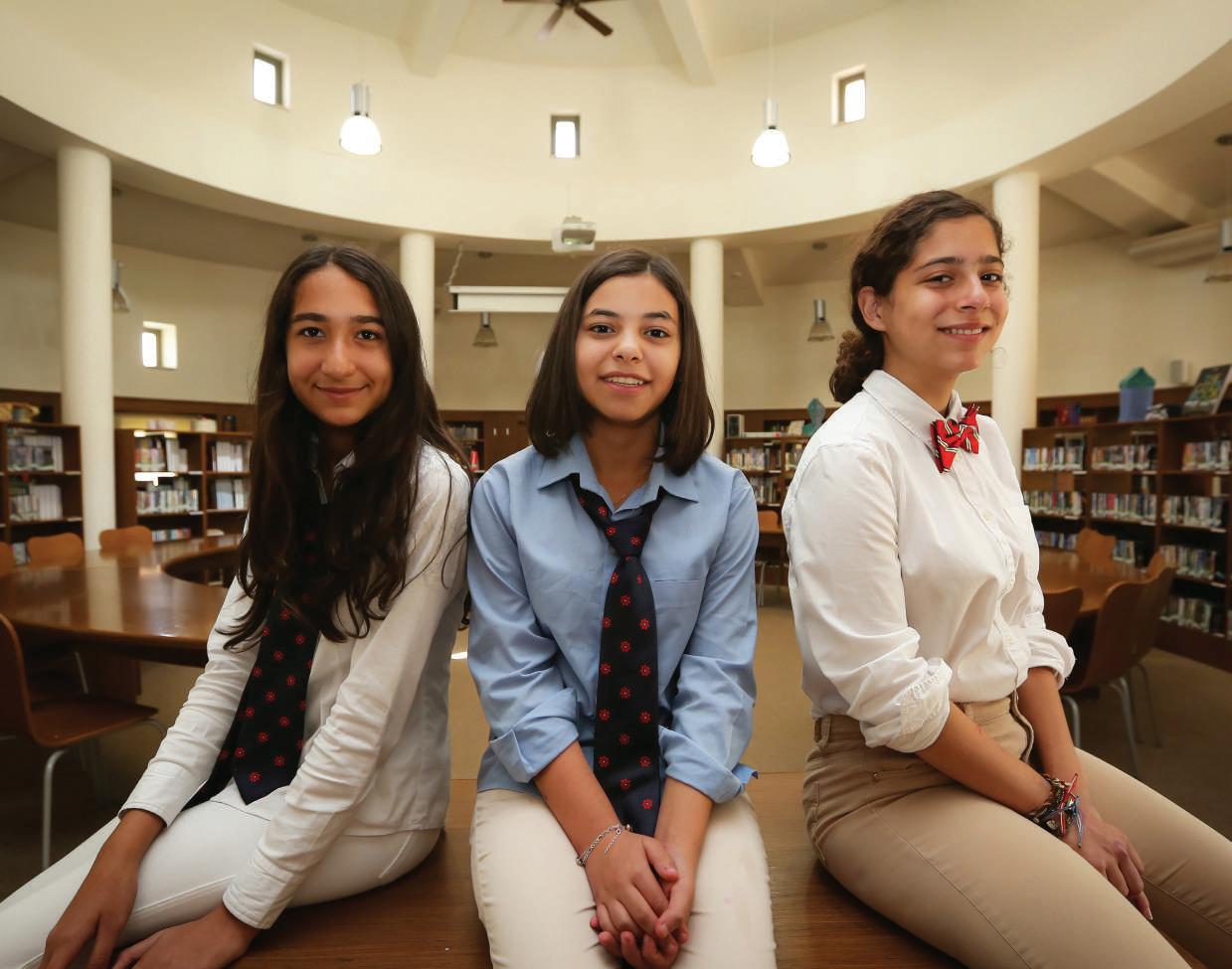
There are three girls in the King’s Academy Middle School who consider reading and writing their favorite hobbies. Sarah Saleh ’23 who has devoured more books than any other King’s Middle Schooler, Joud Mbaideen ’22 who has already published her own book, and Lara AbuAli ’23, the first King’s student to receive a Gold Key award for her poetry chapbook.
At 5 years old — the age that most children are barely able to comprehend text — Sara Saleh ’23 was reading books on her own. Saleh’s love for reading began when she was introduced to a small library at her aunt’s home.
Now an 11-year-old seventh grader in the Middle School, Saleh has read more than 90 books since the beginning of the school year — mostly novels, often series. Among her favorite series are the Vampire Academy, Nightshade and Canterwood Crest
“When I enrolled at King’s, my reading habit increased because there are so many books to choose from at the library and I love going there to look through all the books,” says Saleh.
Despite her busy schedule in the Middle School, Saleh makes sure to find time to read wherever she goes. She mostly reads on the bus in the morning and on her way home from school — even though most people around her spend the bus ride talking — and every night before she sleeps.
Saleh believes that children should develop a reading habit at a young age because it helps them expand their vocabulary and gain information about different topics. Although she realizes that many children haven’t learned to enjoy reading, Saleh believes that children should find books about topics that interest them because if “you don’t like the topic, you won’t enjoy the book.”
“When I don’t know the meaning of a word, the first thing I do is look at the sentence and try to make sense of the word and then I research it to understand the full meaning; it’s my favorite thing to do,” says Saleh.
At only 12 years old, Joud Mbaideen ’22 published her own novel, making her the youngest author in the Arab World.
Mbaideen’s passion for writing was sparked in the fifth grade when she participated in a writing and reading competition. She earned eighth place in the competition and has been passionately writing ever since. Mbaideen constantly reads a wide array of English and Arabic books to help her develop her writing skills because, she says, “the more you read, the more words you’ll know and the better you’ll write.”
Over the past few years, the Syrian civil war, especially the image of the drowned 3-year-old Syrian boy Alan Kurdi, deeply affected Mbaideen and inspired her to write
her first novel, Juruh Al Yasmeen. The novel, which is in Arabic, is the story of a young Syrian girl and her family who are separated due to the civil war. In it, Mbaideen focuses on the devastating effects of war on children.
Not long after her book was published in 2017, Mbaideen became recognized for her literary talents in Jordan and across the region. During Jordan’s Independence Day celebrations last May, she was awarded the King Abdullah II Medal of Merit, and in October, Head of UNICEF Jordan Rob Jenkins named her as a “Champion for Children” with an “enormous capacity to contribute to learning.” Mbaideen has also been interviewed by over 80 radio and television channels.
“When I first started writing my book, my goal was to publish it but I never thought that so many opportunities would arise for me after it was published,” says Mbaideen, who is currently writing a second book, one that continues the journey of the characters in Juruh Al Yasmeen.
“I want my next novel to focus on the future of refugee children; it’s one of the biggest problems in our world today and I want to make sure people are aware of it,” says Mbaideen.
Chosen from among more than 346,000 submissions, Lara AbuAli ’23’s poetry chapbook “Sleepless,” won a scholastic Gold Key award. AbuAli was recognized by the Region-at-Large program of the 2018 Scholastic Art & Writing Awards. Her work was selected as “the most outstanding work submitted in your region.”
AbuAli’s love of writing began at the early age of four when she was introduced to picture books. “Every time I looked at different pictures, I became inspired to write stories about the things I was seeing and I’ve been writing ever since,” says AbuAli.
Her poetry chapbook “Sleepless” is her “personal vision of life itself” and offers an inside perspective of her past and present, as well as her views on society and the “uniqueness of the earth.” The title comes from her last poem, “Sleepless,” which is about the stress that school can cause and the “tired reality of students during one of the most important times of their lives.” “The poems I wrote are my way of describing the simplicities and depth of different things in life,” says AbuAli.
After she wrote her poem book, AbuAli decided to apply for the Gold Key award but never imagined she would actually win. “I was shocked to hear that I won because so many people applied for it — so many older people who are much more experienced than I am,” she adds.
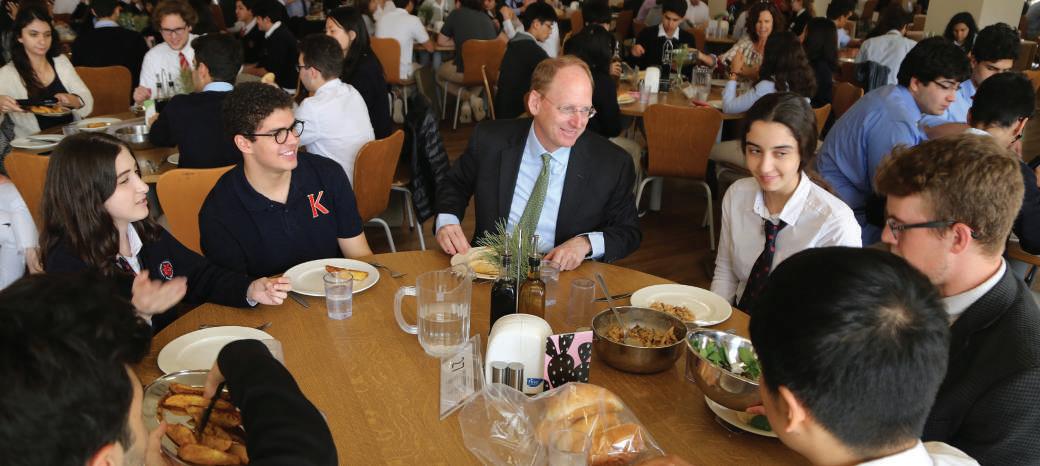
Recently I came across a wonderful phrase by the 18th century German philosopher and educator J.G. Fichte, one of the early theorists of liberal education. Writing about his hopes for German youth, he spoke of schools and universities creating what he called “artists of learning.”
Fichte’s wonderful phrase reminds us of the profound connection between learning and human creativity. Yet all too often that connection is severed by schools. As Sir Ken Robinson, the author of the most watched Ted Talk of all time and a prominent critic of what he calls the “industrial model of education” has written, most schools emphasize “linearity, conformity and standardization.” He argues that we need “a new Renaissance that values different modes of intelligence and that cultivates a creative relationship between disciplines and between education, commerce and the wider community.”
There are many reasons why schools neglect creativity: a narrow definition of intelligence that excludes imagination, inventiveness and creative thought; an excessive emphasis on test preparation and assessments that focus on reductive formats like multiple choice; inflexible curricular structures; skepticism about the economic utility and value of creativity; and — perhaps most importantly — a tendency to underestimate the creativity, capacity and potential of young people.
Things may be changing. Because we are living through an age of remarkable invention and innovation, the connection between human creativity and the fields of business and technology have become more and more clear, and there is a greater appreciation of the important role that ingenuity, resourcefulness and entrepreneurialism play in today’s economy. The author Richard Florida has argued that this new and more
dynamic economic order is driven by a cadre of designers, engineers, artists and technological innovators. He calls this group the “creative class.”
A number of thinkers and educators, including Robinson, have sought to reconnect learning to the defining human impulse to create. Mitch Resnick, the longtime director of MIT’s Media Lab and the author of the new book, Lifelong Kindergarten, argues that schools need to nurture, encourage and support creativity. All children, he argues, are born with the “capacity to be creative.” The distinguished critic Will Gompertz has argued in his book, Think Like an Artist that all schools should become more like art schools.
What would this mean? It would mean rethinking the traditional model of schooling by providing students with the three things they need to be creative: opportunity, space and time.
The last two decades of research in behavioral science have demonstrated that students are motivated, excited and driven to learn when they possess high degrees of autonomy and curricular choice. Yet, as a rule, schools provide little curricular flexibility. As the author Daniel Pink notes, “The world is awash in customization — until we get to the school house door.” King’s is no exception. Curricular structure varies widely from school to school, but compared to global peer schools (G-20 and the Eight Schools of New England), King’s is among the most prescriptive.
To provide increased flexibility and choice we are rethinking — and streamlining — our graduation requirements, consolidating our departmental structure to encourage cross-disciplinary fertilization and hybridity, and expanding the number and variety of high level electives available to students.
Providing more autonomy, flexibility and choice for students does not mean abandoning core academic requirements. Students will continue to explore the major fields of human inquiry, and they will be required to master core disciplinary competencies (one reason we have joined the Mastery Transcript Consortium). And students will continue to take courses that are distinctive to King’s (like our grade 10 course on The Middle East in a Global Context, our World Religions course and, of course, our Arabic courses, to which we give special emphasis). But once students have acquired what Howard Gardner calls the habits and skills of “disciplined thinking,” they will be given the opportunity to direct their own learning and exercise thoughtful choice.
This means conceiving of curriculum not as a straight line, but as a branched tree in which students move out from core requirements (the trunk) to a variety of curricular electives (the branches). And it means providing students with greater choice and
variety, both across and within departments, so that our students can pursue their passions.
Not surprisingly, our Department of Fine and Performing Arts is leading the way by redefining its mission, expanding electives for incoming students, and forging powerful partnerships with other departments within the school and with artists, institutions and businesses beyond it. Next year, incoming students will have the option of selecting from almost a dozen courses, ranging from more traditional offerings in print-making, dance, theater and drawing to those in digital fabrication, app design, graphic design, digital filmmaking and video art, among others. Many of these will be interdisciplinary in nature. All will be united by a common focus on the studio process: critique and collaboration, and performance and exhibition.
We are also in the process of expanding our electives beyond our already robust menu of Advanced Placement courses in order to provide greater choice for students. These new courses reflect a number of school-wide priorities: an emphasis on new and emerging fields (Narrative and Digital Journalism, Computational Thinking, Digital Fabrication, Robotics, Climate Science, Adolescent Psychology); areas of inquiry that reflect the culture and history of the region (Arabic Capstone, Islamic Civilization, Writing Jordanian History — an exciting collaboration between King’s and historians at the Royal Court; see more about this on page 72); courses that explicitly emphasize creativity and research-proven forms of assessment (Capstone Seminar and Research); and Advanced Studies (AS) courses that go beyond AP subject tests (Linear Algebra, Multivariable Calculus). In addition, students have
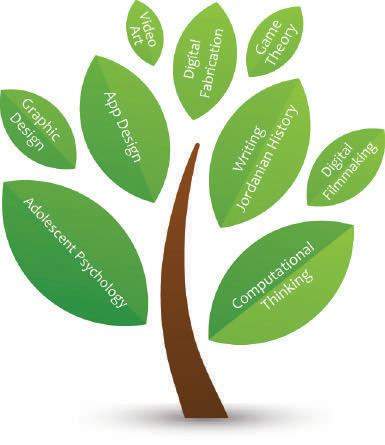
available to them over 50 elective courses offered through the Global Online Academy (GOA).
Combined with increased curricular flexibility, these new options will serve students as they move into the final two years of their careers and better prepare them for university. Students will be able to define their own strengths and direct their course
“It would mean rethinking the traditional model of schooling by providing students with the three things they need to be creative: opportunity, space and time.”
of study towards those strengths. The scientifically inclined can move beyond subject tests in those disciplines and begin to do the exciting work of scientists. Those tending in other directions can begin to do the work of scholars, artists and entrepreneurs.
We also hope to expand — if not fully institutionalize as a requirement for graduation — our Capstone program in such a way so that every student at the school is empowered to pursue, complete and exhibit a culminating, creative project, one that fully expresses and honors their intellectual strengths, creative energies and future aspirations. Our existing Capstone sequence has grown from two to eight sections in the few years since we piloted it — a testament to student interest and excitement. Students in Capstone Seminar and Capstone Research have conducted original research on some of the most pressing issues facing Jordan. In order to capture the diverse interests of students, we are
actively planning to provide additional pathways for them to pursue creative Capstones, and we will continue to expand opportunities in the STEAM fields. A new Department of Interdisciplinary Studies will be created to house and institutionalize these efforts.
To support this work, will need new kinds of spaces. Classrooms are rarely designed to promote playfulness, creativity and production. Most, instead, are designed for the passive consumption of information with neatly arranged rows and seats, a configuration that defines the relationship between teachers and students and constrains the kind of learning that is possible. We have pushed back against this, by replacing traditional classroom architecture in the humanities wing with Harkness tables — the Harkness approach is a unique pedagogy that creates curious, inquiry-based and independent life learners — and in the science wing with flexible, modular seating that allows for more creative and collaborative work in math and science. We are looking to expand our laboratory spaces, so that they can accommodate a range of approaches: discussion, lecture, collaborative problemsolving, scientific research and experimentation.
We also plan to create a “future lab,” strategically located in the courtyard between the Isam and Rajai Salfiti Fine and Performing Arts Wing and the Michael Dagher Science Wing. “Being creative,” Resnick writes, “always involves doing something” — making, fabricating, building, constructing, inventing. This new space will be an open, flexible and transparent space equipped with the most recent technology, materials, equipment and tools, along with a supporting program in fabrication, artificial intelligence, virtual reality, digital design and engineering. It will be a space signaling King’s commitment to creativity as one of the defining goals of education, and
it will be a space where science, the arts and technology meet and support one another. It will also be a place where King’s students can collaborate with practicing artists, engineers and business leaders.
None of this can be accomplished within the traditional 45-minute period. To explore ideas in depth and allow the time for students to be creative, schools need to rethink how they use time. To that end, we will embark on a study of our daily and weekly schedule next fall. At present in the Upper School, we chunk the day into nine 45-minute periods — which means students have as many as 10 transitions a day. The goal of the schedule redesign (which will be led by a consultant from Independent School Management and include comprehensive input from staff, faculty, students and parents) is to improve the sometimes frenetic pace of the day by reducing the number of transitions, to lengthen class time to allow for deep and creative learning, and to support student health and wellness by limiting the number of transitions and nightly homework assignments. As we develop this new schedule, we will also be preparing the faculty to teach effectively in longer periods and to use this time well. Changes in how we use space and time will require faculty to teach differently, more intentionally and with greater creativity.
All of this means changing how we think about student work and focusing on forms of assessment that require not simply the passive absorption and regurgitation of information on tests, but the creative application of knowledge — what educational researchers call “transference.” Thinking itself is a profoundly creative undertaking, but very few school tests require creativity or emphasize the creative application of knowledge and skills to new problems and situations. We will seek out alternatives to more traditional assessments. Next year in the Middle School, we will pilot
the College and Work Readiness Assessment (CWRA). CWRA directly measures student performance on critical-thinking and writtencommunication skills, such as analysis and problem solving, scientific and quantitative reasoning, critical reading and evaluation, and critiquing an argument, in addition to writing mechanics and effectiveness.
What is at stake here is not simply the shape and scope of the academic program, but the very well-being of our students. Too many students experience school as a source of stress; they are over-tired, worndown, and lacking in sleep. We should not fault school for all of these outcomes. Growing up is sometimes hard work. Yet there is an important and powerful relationship between a young person’s health and happiness, their academic work and their experience at school.
The happiest learners are inevitably also the most engaged, adventurous and creative learners, and these learners tend to be self-directed and independent, driven by curiosity and wonder. If we can move in the direction I have tried to sketch by providing a greater sense of autonomy, more opportunities for students to be creative and a different approach to time and space, I am confident that we can not only improve the academic experience of each student at King’s but provide an education that introduces students to the joy, excitement and sense of purpose that have always defined learning at its best.
“Providing more autonomy, flexibility and choice for students does not mean abandoning core academic requirements.”
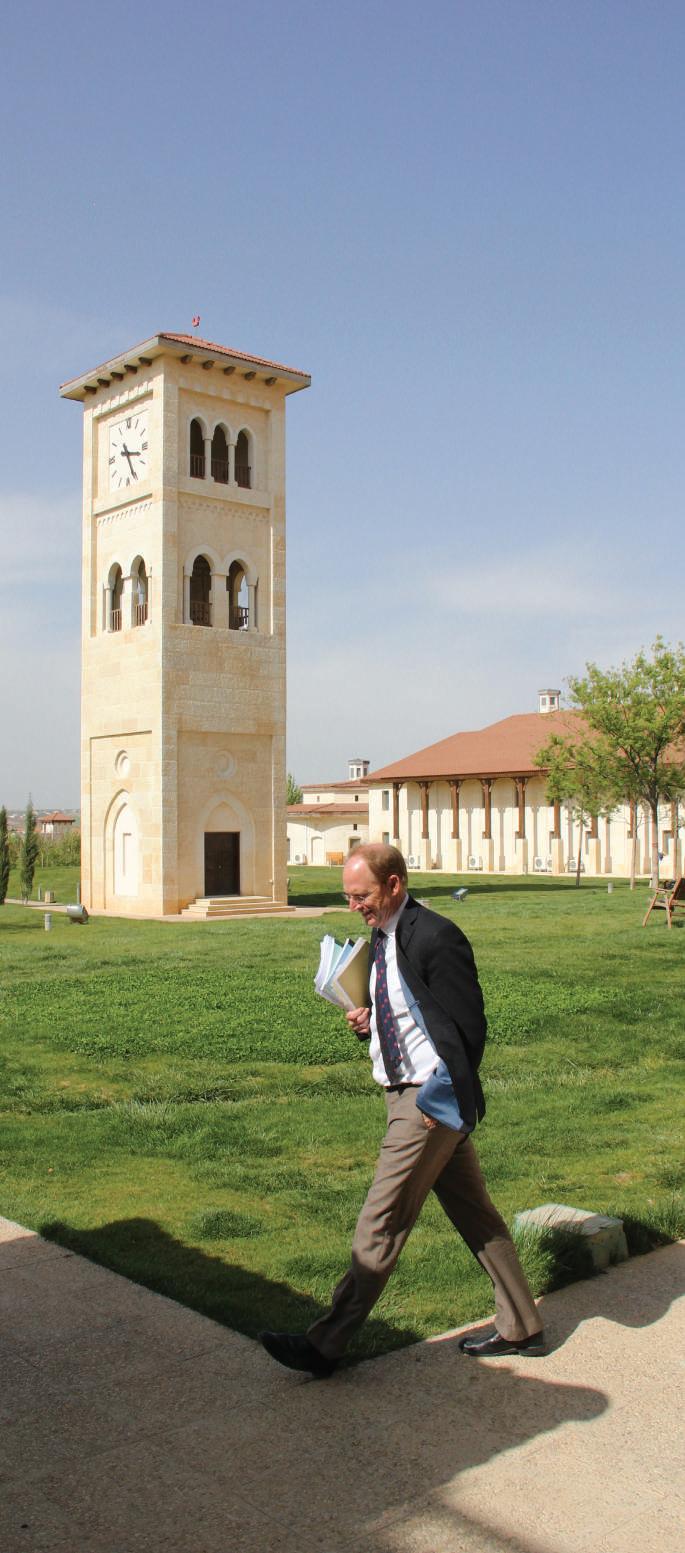
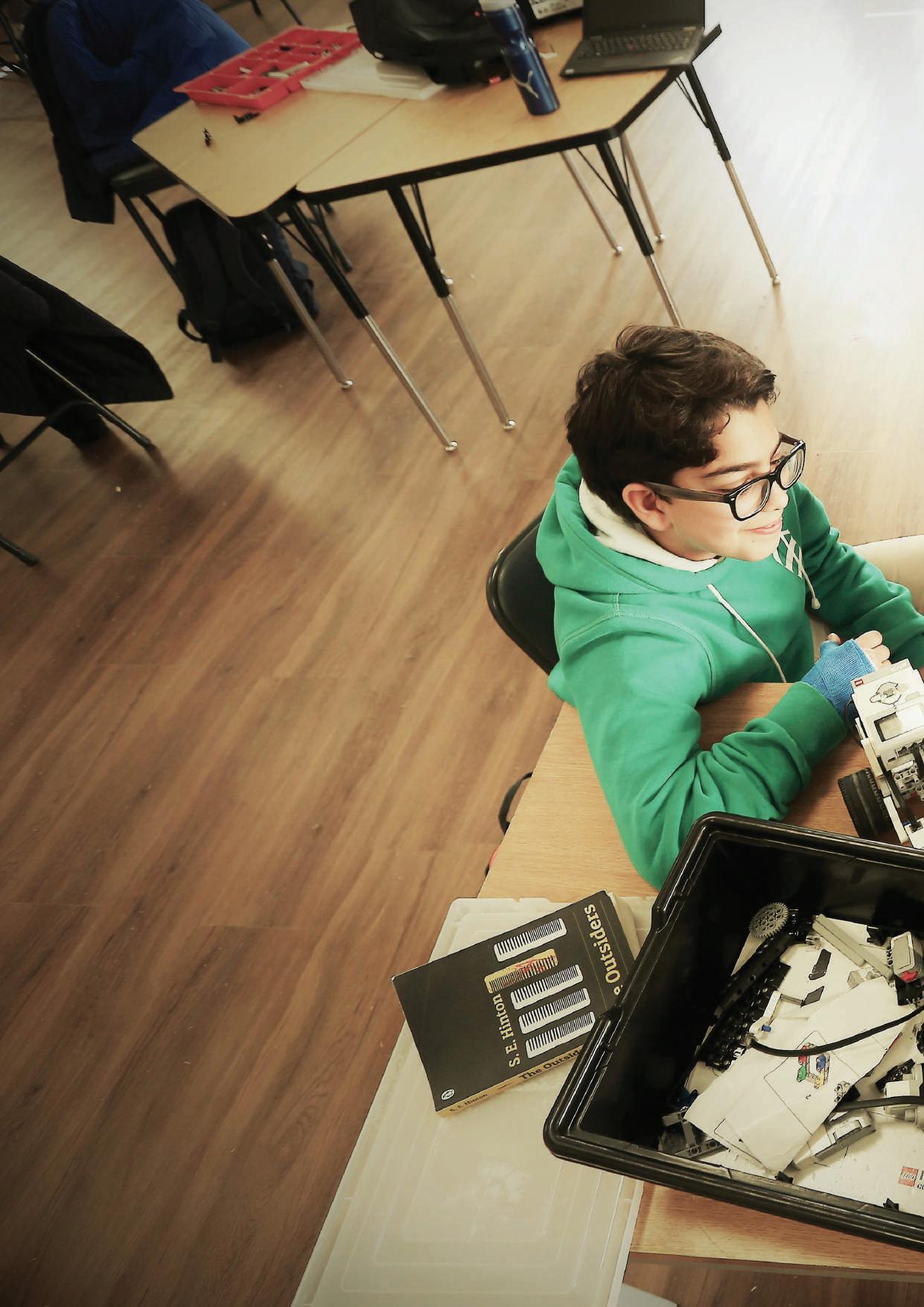
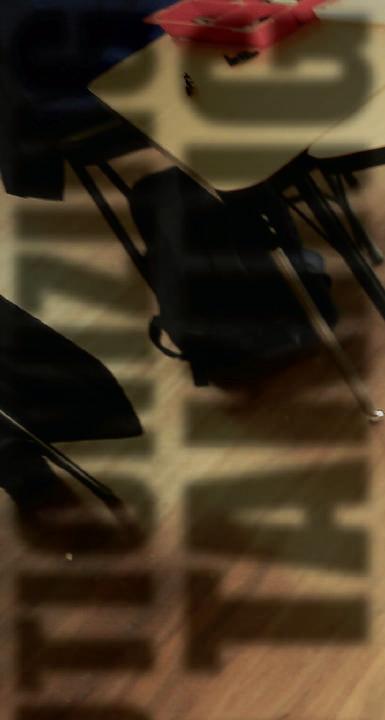
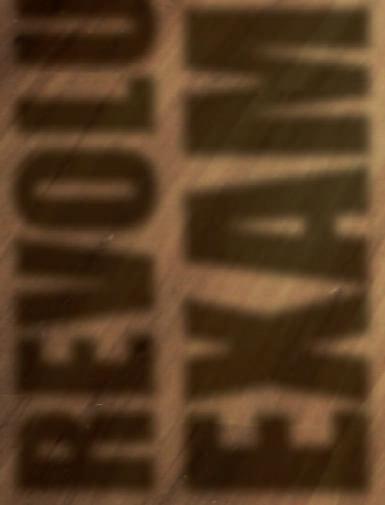
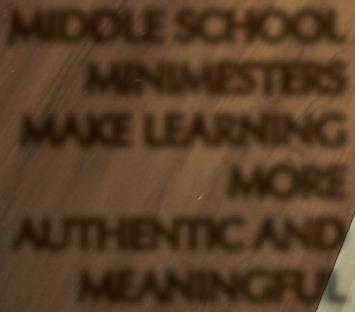
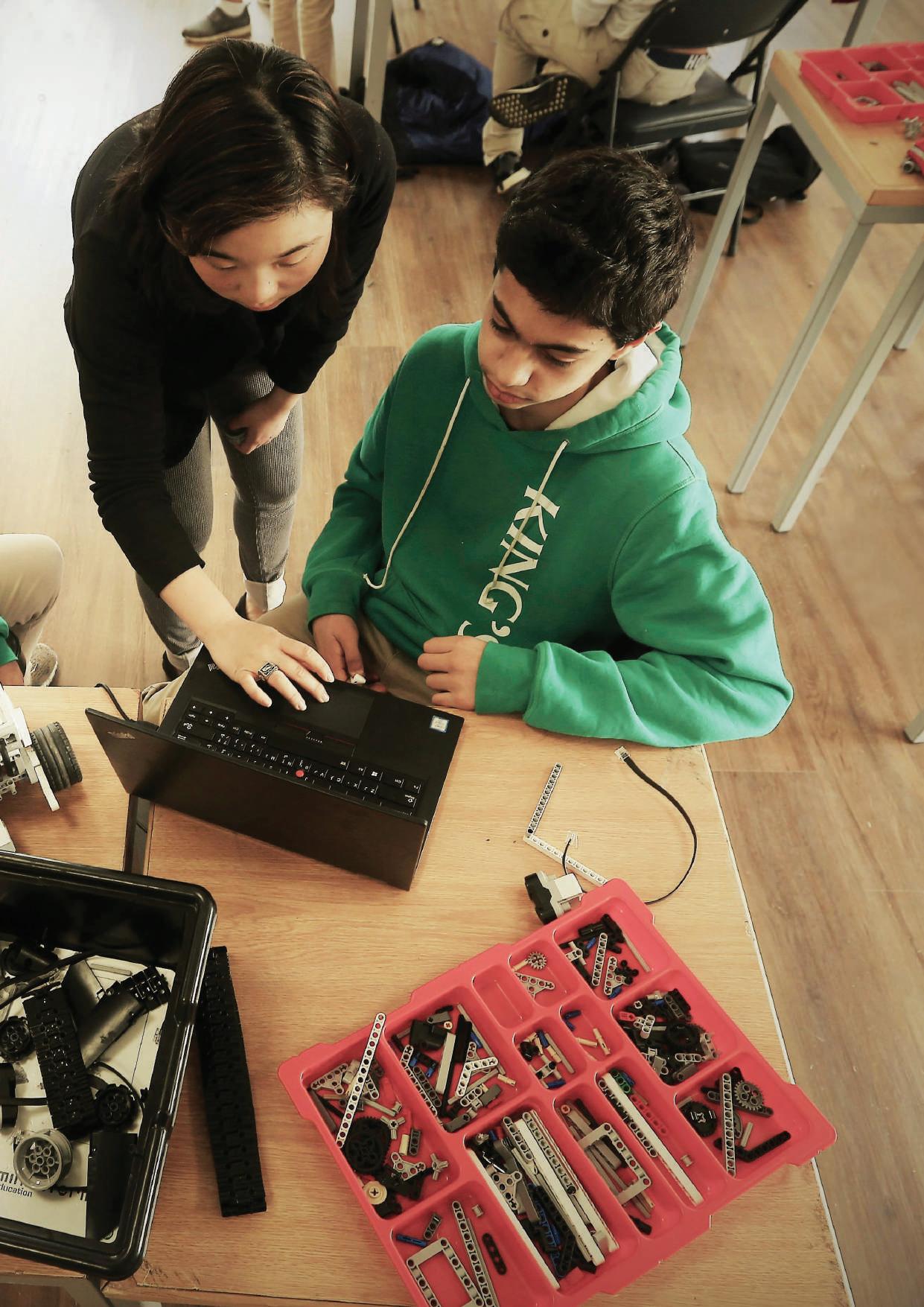
When Dean of the Middle School Reem Abu Rahmeh and other faculty members were working to establish a Middle School curriculum, they agreed that one of their main goals was to achieve deep learning and instill a lifelong love of learning in their students, but they realized that an exam and grade-driven environment would hinder that goal. So they decided to develop a different method to monitor and evaluate student learning.
The Middle School minimesters, which take place for three to four days at the end of each term, replace traditional end-of-term exams and provide students with an opportunity to demonstrate what they’ve learned in the classroom throughout the term through research, projects and presentations, explains Abu Rahmeh. Minimesters encompass projects and activities from all the disciplines taught to the students including humanities, science and math.
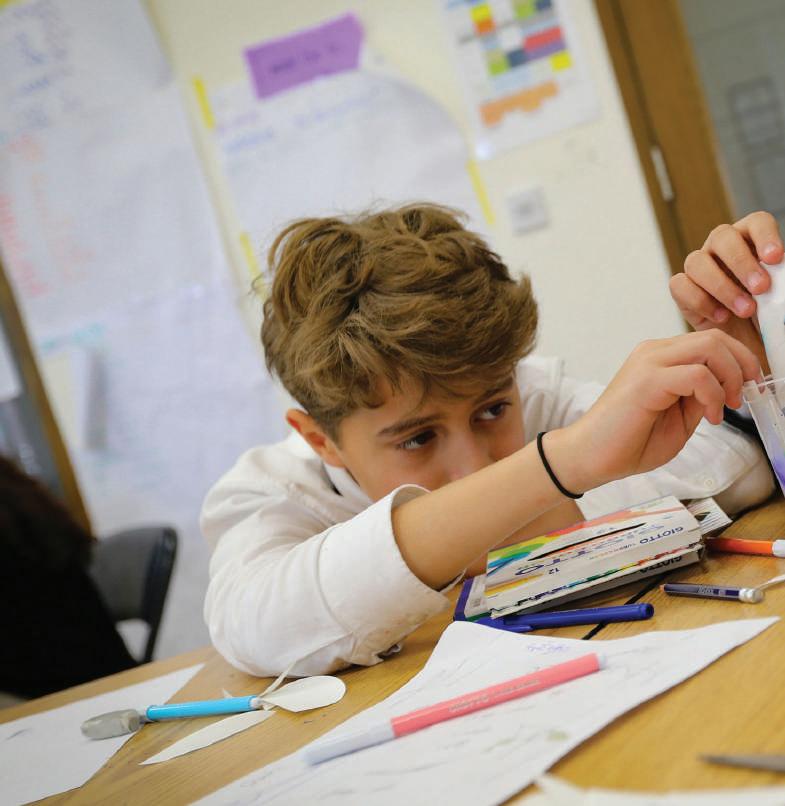
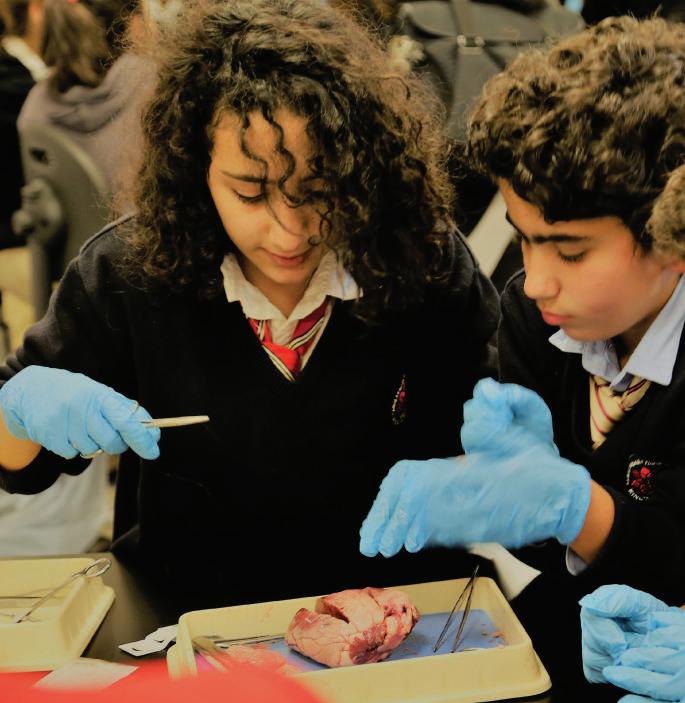
For the Middle School faculty, it has been inspiring to see the students expand their knowledge, develop new interests in various subjects, and apply what they’ve learned from the projects to different issues.
“Students learn how subjects such as math and science can be used in the real world. It makes learning more authentic and meaningful to them,” says Abu Rahmeh.
And students seem to agree.
“Minimesters help you gain confidence and expand your knowledge in so many different topics outside of the classroom, and you remember everything because it relates to your daily life, as opposed to traditional exams where you have to memorize specific material and then you forget it after the exam is over,” says Joud AlMbaidin ’22.
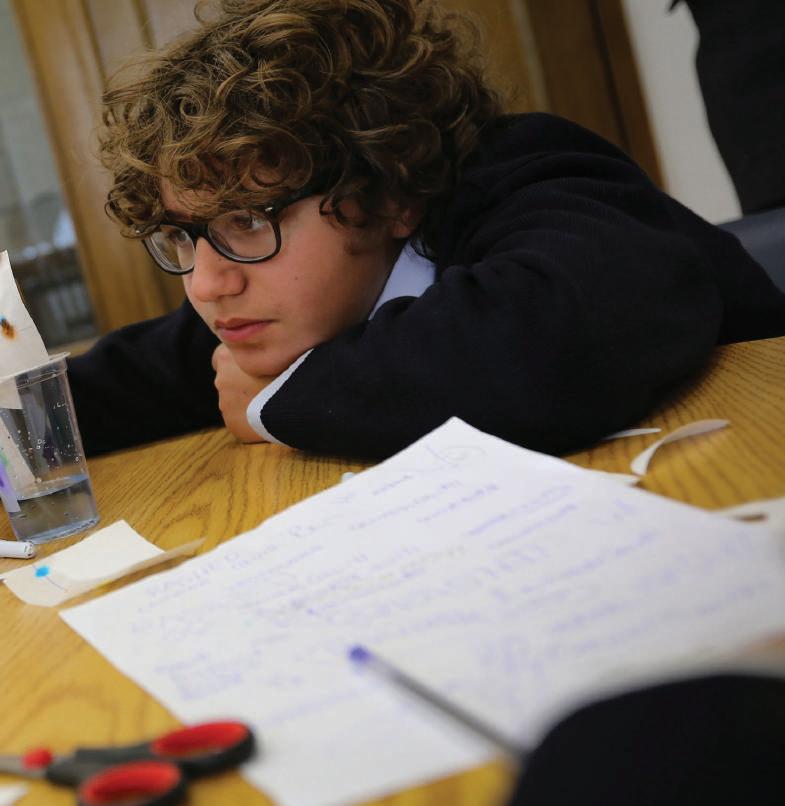
Minimester projects are extremely diverse and incorporate multiple disciplines. Last year, during the fall term, students were immersed in a science, technology, engineering and math (STEM) course named “Building an Interactive Friendly Monster.” This course was inspired by King’s summer program, i2 Camp, which blends STEM subjects in a way that offers both education and recreation for children aged 11 to 14. To create their interactive monsters, students start by searching for inspiration online and create sketches on paper until they reach a final design. They learn about the science of electronics, using electrical circuits to add interactive components to their monsters. They also use high-tech technologies, such as computers and e-textiles to make the monsters interactive, and they discuss how technologies like robots can have an impact on the humans who interact with them.
“For students to be innovative and creative in the future, we need to create opportunities for them where they can design, plan, create, refine and evaluate,” says Head of the Department of Computer Science Nadim Sarhan.
This fall, the eighth grade class worked on a water scarcity project. Students visited the Azraq Wetland Reserve to test the water quality on the reserve, study how the wetlands have been affected by water extraction, and analyze how this has affected migratory birds in the region. The eighth graders also visited the historic city of Jerash to study ancient Roman irrigation systems.
“The goal of this minimester was for students to understand the urgency of water scarcity in Jordan and to raise awareness on and off campus,” says Teaching Fellow Rubi Andres.
“We want to develop in students a love of learning and research, and a passion for advocacy,” she adds.
During this year’s winter term minimesters, students chose to participate in one of four activities focusing on crime scene investigation, surgical techniques, 3D printing, or robot battles. Some students practiced surgical and dissection techniques while others explored the scientific skills and methods needed to solve crimes. Yet others learned how to design and print 3D models, and how to conduct robotic battles. The minimesters concluded with a showcase where students shared what they learned with their parents and presented some of their fun creations.
“Minimesters help you gain confidence and expand your knowledge in so many different topics outside of the classroom,” says Yanal Hamadeh ’22.
“Students relate minimester projects to real life, and they learn how subjects such as math and science can be used in the real world.”
Looking towards the future of minimesters, Abu Rahmeh hopes to expand the program by creating new, longer projects that allow students to develop outdoor experiences, as well as projects that utilize local resources and provide opportunities for students to give back to Jordan.
“Minimesters connect learning to real life situations,” says Abu Rahmeh. “The projects redefine why students are in school and these experiences tap into their passions and prepare them for the future,” she says.
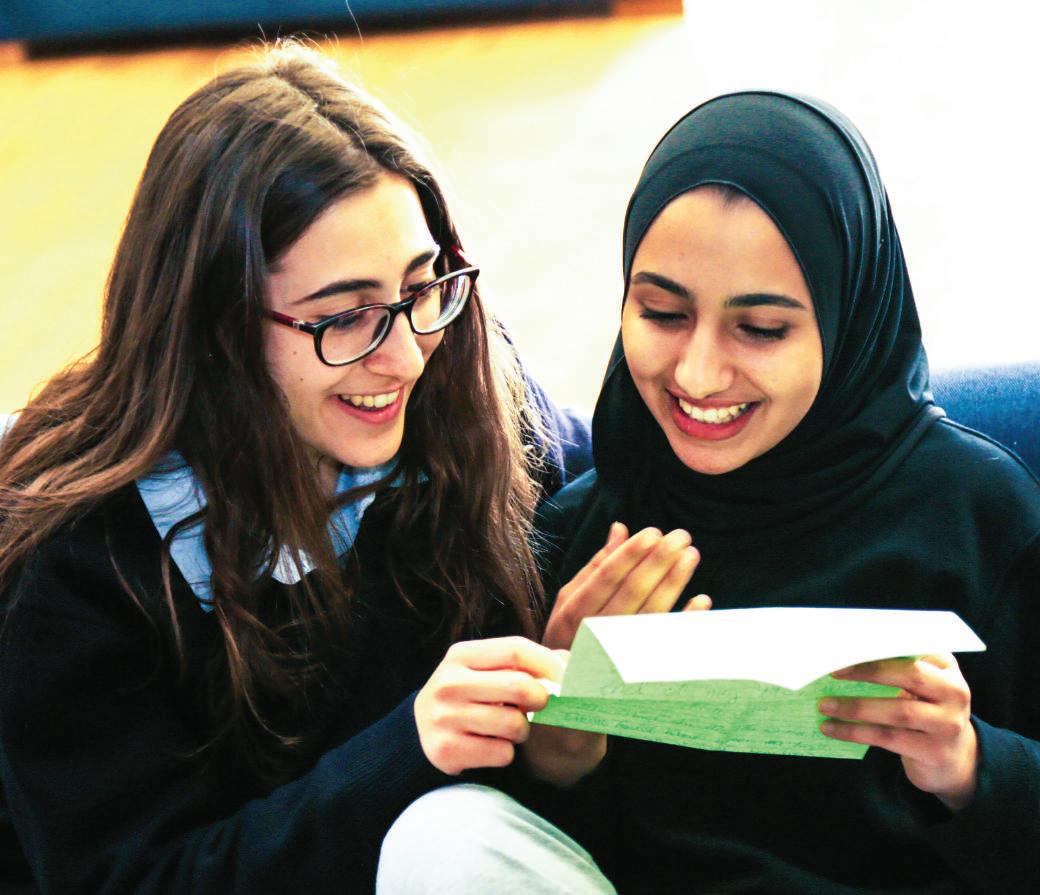
We’ve all been to this place called “school,” but each of us has had a different taste of it. Spending your high school years at a boarding school makes your experience very different from that of a day school. Take Harry Potter for example: Harry wouldn’t have been as close to Ron and Hermione, or even been able to find the Chamber of Secrets if he hadn’t been at a boarding school in the first place. Even though I didn’t live a crazy wizard life like the three Harry Potter characters, attending a boarding school definitely made me a more adventurous person and opened my eyes to the future. Out of the thousands of people I met, conferences held, activities enrolled in, and memories created, it’s the small things about boarding school that I miss — things I never thought about until I left high school behind.
From different types of vegetables, like zucchini and grape leaves, stuffed with rice and spices, to endless meals of chicken or meat cooked with vegetables, in the Middle East each country is engraved with its own cultural heritage and pride, and food happens to make up a great part of it. Arabs love their food, and they are proud to show it. Their absolute joy and worship of food is transmitted to their dishes, making them the best meals you have ever tasted. Since my school, King’s Academy, hosts students from around 42 countries, our chefs offered various meals such as orange chicken, various pastas, salmon, mansaf — Jordan’s national dish — and even classic American burgers. Having so many different food options while living in the Middle East expanded my knowledge of food and amplified my pleasure during my time spent in the Dining Hall.
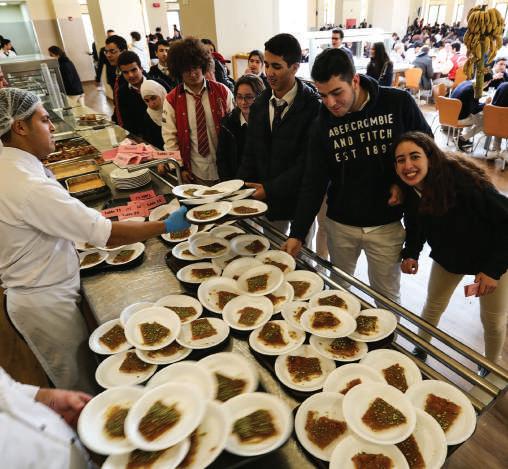
Besides the diverse meal options King’s offers, it is their Wednesday dinner that I miss the most, FALAFEL. Which is why I’ve given it its own entry in this list.
Every Wednesday, the Dining Hall would set up different food stations that offered hummus, foul beans and falafel. Along with a wide variety of salad bar options, this meal is heavenly. As you take that first bite, the crunchiness of the falafel gives way to the soft center made of chickpeas. Since falafel is best eaten steaming hot, the contained heat is suddenly transmitted to your taste buds, carrying a melody of spices and parsley. Even though falafel can be found in non-Middle Eastern countries, it still doesn’t taste the same as it does in Jordan or Lebanon. Attending college in the United States and not being able to eat such a meal is something that my taste buds truly miss.
As mentioned, King’s has students of 42 nationalities, and with such a diverse community, one would think that it is difficult to merge these students. However, that would be a misjudgment of diversity. I remember how, in my dorm, you could sit in the common area and hear all sorts of languages and accents: Korean students speaking to each other in their native language, Arabs calling out to each other, and South Africans distinguishing themselves from Americans by their accent. Even though each group had their own style and vibe, they all managed to sit down at one table and discuss ways to improve the proctoring system in the dorm. They all managed to be friends with each other and spent hours singing together under the showers and gossiping about endless high school rumors. Because every one of us talked extensively about our own country and were curious enough to ask questions about others’, we realized how much we share in common while still being different from one another. I will definitely miss learning curse words from Chinese, French and Siberian students, as well as learning about the cultural rituals they have back home.
As King’s is located in the rural suburbs of Madaba, and not the capital Amman, there are less shopping options and activities around it, and because it is surrounded by farmlands with no shops or buildings nearby it meant safety was important. Unlike some other boarding schools, such as Deerfield Academy, students cannot easily walk out of the gates and cross the street to the ice cream shop or mall in the city. Everything is 15 minutes away by car. Thus, we needed permission to go out, usually by having our parents provide transportation, or by calling an Uber. However, because the school campus is encircled by high brick walls, it always felt safe walking around campus, even in the middle of the night. I was able to move from one dorm to the other, run around campus and sit on the benches under the trees despite how faint the lights were at night. This feeling of security and not having to worry at all at night is truly something I miss.
As I said, borders keep you safe, but that doesn’t mean they don’t make you feel imprisoned as well. Sometimes due to the extra workload and stress, my friends and I would want to extend our vision beyond the walls and borders of campus. Each student is given 12 sign-out permission slips for the whole year, meaning you’re allowed to leave school in the middle of the week only 12 times. Since we were stressed and overwhelmed by
the workload, getting out of school felt like oxygen was entering our lungs again. We would leave campus at 4 pm and return at 10 pm. From singing out of the car window along to the blasting radio, to eating sweets and junk food while hanging out at the mall, we did it all in those six hours. Sign-outs meant dressing up with your friends and tightening your bond with them. Many of my friendships strengthened because of these hangouts. All of the food and delivery expenses were paid by our school. Extra food is never a sin, especially when it’s your choice.
Part of Arab culture is kindness and generosity to your neighbor. Despite the usual breakfast, lunch and dinner meals that were provided, each dorm could order special food according to their desires. My dorm usually had pizza every Sunday, and fruits for the rest of the week.
Their generosity extended to gifts for seniors. During the annual Senior Dinner for parents and students, which was held on campus, juniors were our waiters, and the dinner was cooked by the school chefs. In addition to being pampered by our junior friends and welcomed with hugs by our faculty, we were given gifts, from decorated pottery to other school tokens that would help us remember all the good times. All this generosity and care helped us build a sense of family and personal connection with King’s.
Being an only child has always bugged me. But, when I moved to boarding school, even though I was away from my parents five days a week, I became five million times closer to people at King’s. It was this distance from home that helped me find my own personal Ron Weasley and Hermione Granger.
The girls in my hallway and my friends in other dorms all became part of my family. We would stay awake talking
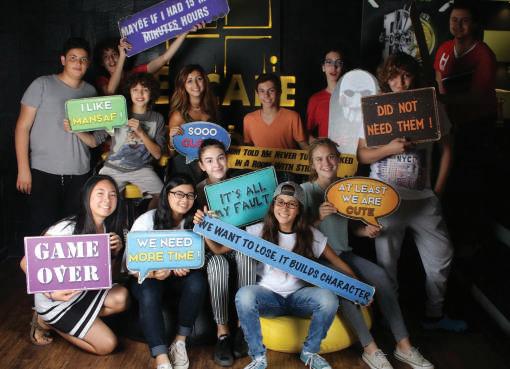
till 2 am and we witnessed each other’s ups and downs. We even reached the point where we knew each person’s personality type. Living with them under the same roof and having them see you when you first wake up creates this sense of trust and comfort. I met my non-biological sisters by attending boarding school. They’ve been with me through every obstacle and journey that even my family never got the chance to be part of. My parents only saw me when I came home on the weekends, which is definitely not enough to know someone’s true self.
Living in the Middle East meant experiencing the dry desert cold as well as its steaming hot summers. Despite the intense weather and constant change, its contrasting environment makes the hustle worth it. The walls around King’s helped protect its green environment from pollution
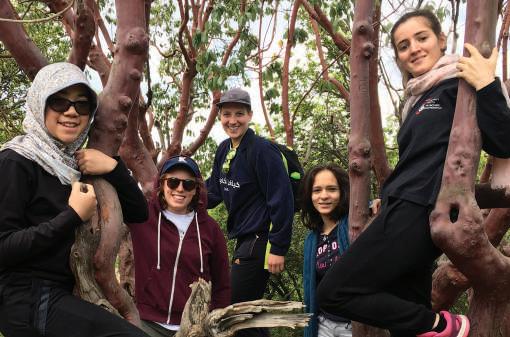
or danger. Inside the campus borders were fields of grass, orchards and running cats and dogs. Gardeners could be seen as well as animal protectors. However, beyond those brick walls are extensive farmlands with yellow grass, dry leaves and a lack of many trees. It almost felt as if you were living on two different continents despite the fact that you were still standing in the same acre. Witnessing diversity in the school community as well as the surrounding environment awakens your senses. Each day feels like an endless taste buffet along with endless new memories to collect.
The three years I spent at King’s marked the beginning of the most exotic, interesting and wonderful moments I’ve ever been through. If you survive high school, then that’s great. But if you survive boarding school, then you’re a champ for sure. The obstacles and experiences you face are more than the typical high school drama. They prepare you for the real world. Honestly, I advise anyone who has a friend, sibling or family member to get them to try boarding school. It’s a whole different game, especially when it’s located in the Middle East!
Originally printed in Fresh U, August 2017


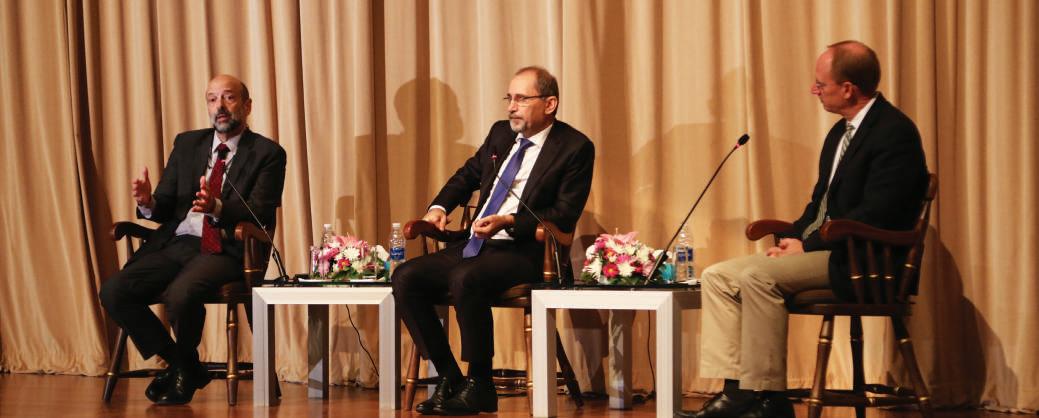
As part of the activities organized on the occasion of its 10th anniversary, King’s Academy hosted a panel discussion in October with Jordanian Minister of Foreign Affairs HE Ayman Safadi and Minister of Education HE Dr. Omar Al Razzaz, giving students the opportunity to ask questions and engage with the ministers on national
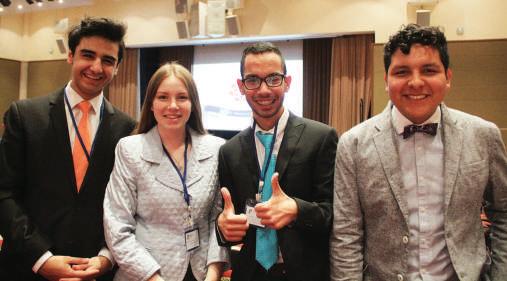
KAMUN 2018 AIMS TO “LEARN FROM HISTORY, NOT REPEAT IT”
On March 2 and 3, around 300 students from King’s, seven schools in Amman and the Jerusalem School in Palestine participated in the three-day King’s Academy Model United Nations 2018 conference. Jordanian Senator Khalil Othman made the opening remarks at the conference, held under the theme “Strike the Balance.”
During the 12 different forums, delegates tackled a wide range of current issues and participated in historical simulations of criminal courts and the League of Nations, with the aim of “learning from history, not repeating it.”
KAMUN18 closed with remarks by Former Deputy Prime Minister Nasser Judeh.
and international issues. Headmaster John Austin, who led the panel, asked the ministers about some of the challenges faced by Jordan, such as misrepresentation of the Middle East in international media, the refugee crisis, education reforms, and what steps the government was taking to tackle these issues and move Jordan forward.
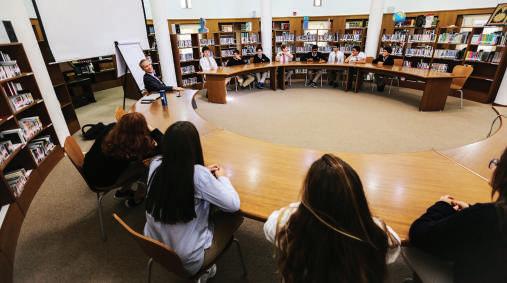
KING’S TACKLES SUBSTANCE ABUSE HOLISTICALLY
For the second consecutive year, King’s Academy held a week-long substance use prevention campaign in November in cooperation with Freedom from Chemical Dependency (FCD), a leading provider of schoolbased prevention services, to provide students with the knowledge, understanding and skills needed to make intelligent, healthy choices. The school-wide campaign took a more holistic approach this year by having all students in grades 7 to 11 participate in sessions with two prevention specialists from FCD, while sessions for seniors focused on preparing them for the future.
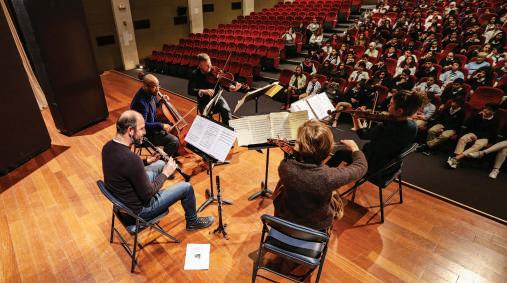
Performances in front of family and friends on February 8 and 10 concluded two days of intensive chamber music workshops at King’s Academy led by the renowned Apple Hill Chamber Players — joined by Julliard-educated, Syrian clarinetist Kinan Azmeh — visiting Jordan as part of their Playing for Peace Middle East tour. Students learned that, to play harmoniously, they must be in sync with one another’s styles and communicate constantly to cue in and finish together.
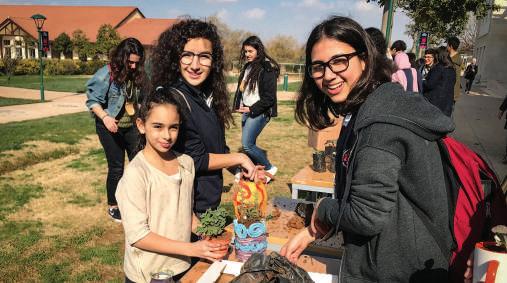
At King’s annual Ecos and Greens Conference held on February 24 under the theme “The environment is your home,” 168 participants from public and private schools in Amman and Madaba discussed ways to encourage people to take better care of the environment, and came up with solutions for sustainable waste management. Students learned how to turn trash into treasure through recycling and upcycling, and each participant planted an evergreen plant to symbolize their commitment to caring for their surroundings.
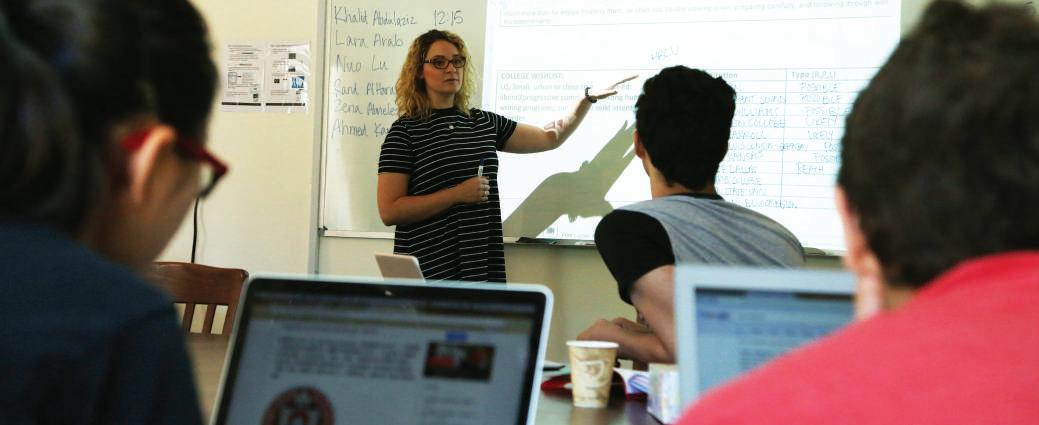
The college application process is no longer a daunting experience for rising seniors at King’s Academy thanks to the Summer Institute launched by the University Counseling Office (UCO) in 2016. The intensive, free of charge college prep program provides rising seniors with what Headmaster John Austin calls a “structured jump start” on the university admissions process, allowing students to remain fully engaged in school life during their final year at King’s, instead of being bogged down by the university admissions process. Last year, the 121 students who enrolled in the Summer Institute worked closely with the UCO on various topics such as how to
search for the right college, how to write a compelling essay and how to use the software program Naviance. Students also reviewed admissions timelines, learned to write resumes, and worked on case studies, surveys and supplements, before each day wrapped with an SAT Prep session. “I know of no other school that offers a program like this to its students, and the feedback from students and families has been overwhelmingly positive,” says Austin.
The Department of Fine and Performing Arts gave a number of classic plays a new lease on life this year, or what we like to call “the King’s treatment.”
Fanciful productions and eccentric performances dominated the stage, giving audiences plenty in the way of visual and mental stimulation. The fall and winter plays, the Arabic play and the Middle School’s second theater production had it all, from comedy and drama, to pantomime and provocation. Student-led performances — both behind the scenes and on the stage — impressed audiences with their professionalism, as Theater students directed, wrote and adapted scripts and performed with the support of student-led technical theater crews.
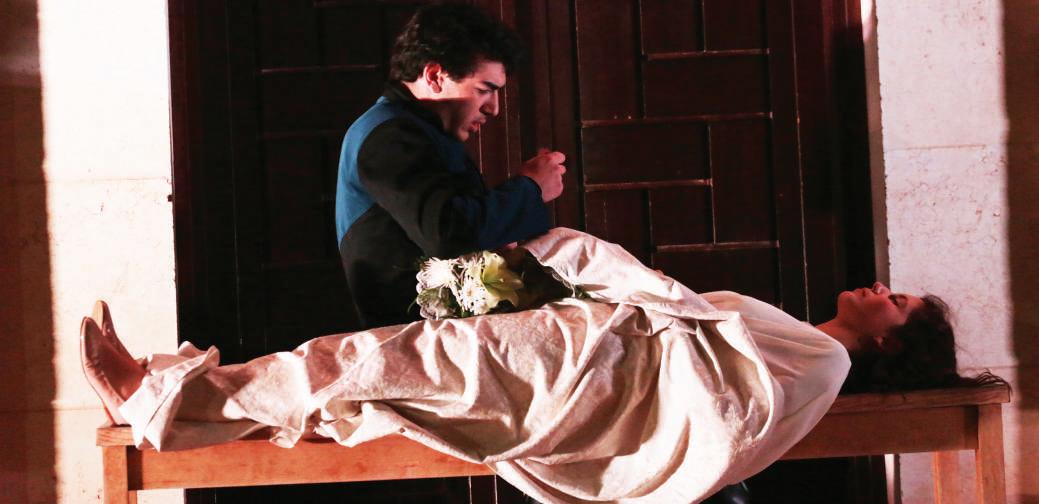
You would be forgiven for thinking that something had gone terribly wrong when students are dueling with books, clambering over tables and making a lot of noise in the library. But the audience of this year’s fall play, Shakespeare’s Romeo and Juliet , knew it was just part of the performance being enacted by the cast of 20 among the bookshelves of the HH Sheikh Mohammed bin Rashid Al Maktoum Library.
Theater teacher and director Alison Trattner believes that the story of Romeo and Juliet — two young lovers whose romance and lives are doomed because of the senseless grudge between the families — is just as relevant today as it was in Shakespeare’s day. As violent clashes erupt in countries around the world where hatred, prejudice and anger is rife, Romeo and Juliet seemed like an obvious choice for the school play.
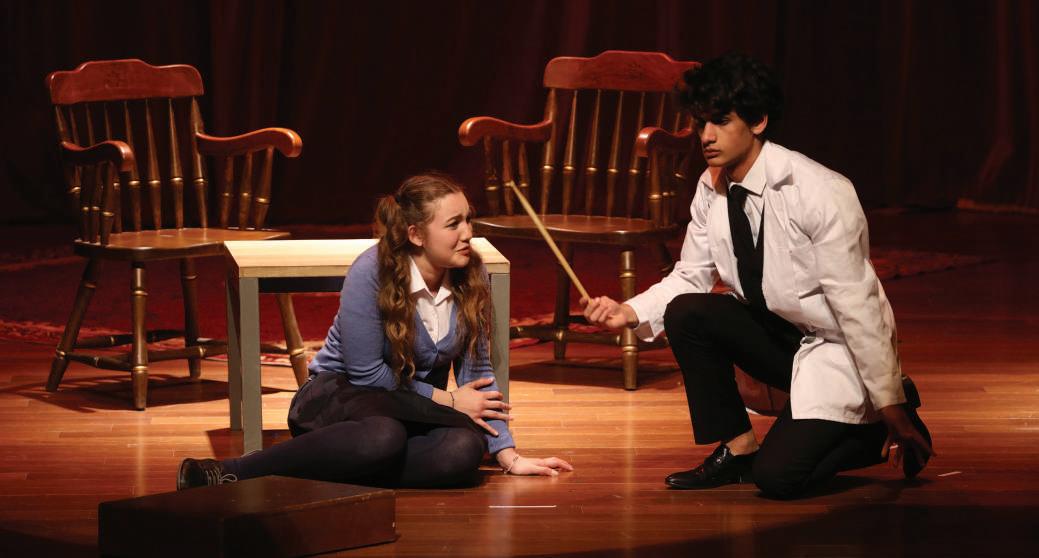
Eugene Ionesco’s The Lesson was adapted and directed by Theater student Nasser Gammoh ’18. The three actors put on an energetic performance, bringing to life strange and disturbing characters with a lot of humor and more than a little absurdity. When first-time director Gammoh first read the 1950’s classic script, he drew many parallels with the lives of modern day students and teachers and was excited to direct a play that his peers could relate to. Despite the many challenges of
directing, such as learning to think less literally and more artistically and making sure that the technical aspects of the play supported the artistic side, Gammoh says one of the biggest rewards was seeing everything come together and the actors making his vision come to life on stage. “The actors really surprised me with their flexibility on stage, even when things did not go 100 percent as planned,” says Gammoh. “They really showed some talent and grit on stage.”
Romeo and Juliet as it was originally intended
Theater student Rakan Haddadin-Cameron ’19 adapted and directed Peter Bloedel’s adaptation of Shakespeare’s Romeo and Juliet “as it was originally intended.” The 12 cast members kept the audience in stitches with their tongue-in-cheek performance and lighthearted Dr. Seuss inspired rhyming. This was Haddadin-Cameron’s third time directing and he chose to revisit Romeo and Juliet in a comical way in order for everyone to have a good time, laugh and forget for a little while about the stresses of work and college. Directing, he says, has taught him that “the perfect director is a useless director. Once you reach the point that you can no longer do anything more for your cast, that is when you have really succeeded.” Haddadin-Cameron was really happy with the end result, noting that even backstage he could feel the “electric” connection between the actors and the audience. “The cast really put everything they had into this performance,” he said.
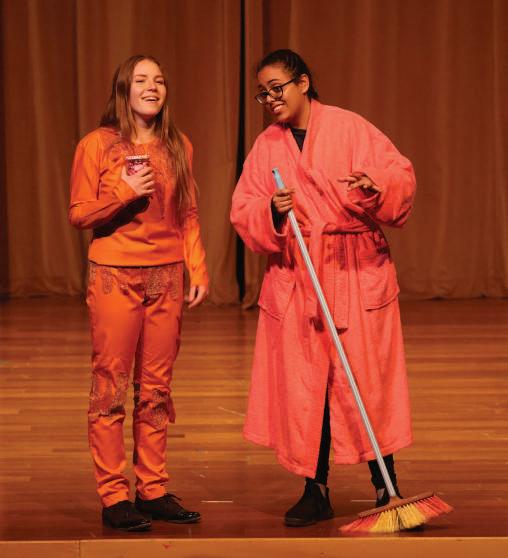
Senior Theater student Khalid Abdulaziz ’18 took the lead in directing Ernest Hemingway’s Hills Like White Elephants, adapted by English teacher Philip Carr-Harris. The six cast members put on an emotional performance full of tension and drama that left the audience with more questions than answers. No stranger to the world of theater, this wasn’t Abdulaziz’s first time directing, but it was definitely his favorite and what he calls “a truly unique experience.” Abdulaziz chose the play for its depth and the way it explores the characters’ struggles to communicate. “It taught me a lot about how people interact,” Abdulaziz says. “Directing this play also taught me to adapt based on the situation at hand and how to work with others with different viewpoints. It was thrilling to work with a cast so enthusiastic and that had some interesting thoughts on many key aspects of the production.”
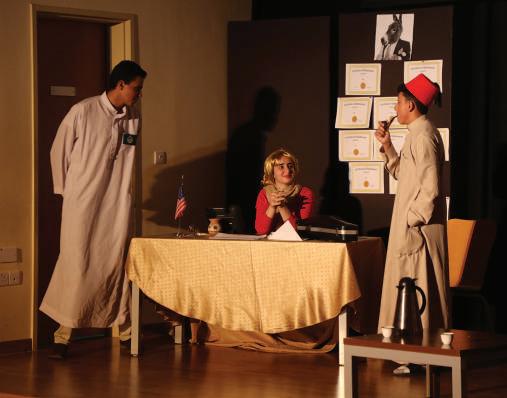
The Middle School presented its second annual school play Alice @ Wonderland to a rapt audience in the Abdul Majeed Shoman Auditorium. With a cast of 27, a technical theater crew of 16, and a production team of six students, the Middle School really came together to put on a large and imaginative production.
The set lived up to the play’s name; inspiring wonder in the audience with its fantastic shapes and swirling psychedelic colors, bringing to mind an enchanted forest. The cast, directed by Middle School Dean Reem Abu Rahmeh, brought an old classic to life, giving the tale a new twist with modern day references. In keeping with the storyline, the cast’s lively performance bordered on madness, anchored by the efficient and excellent efforts of the technical and production crews. The performance, filled with music, dancing, singing and fantastic costumes, was a big hit!

A cast of 10 students and three technical crew, directed by Balqees Al-Shorman ’18 and Arabic faculty members, made the annual Arabic play — adapted by Al-Shorman from Mohammad Fawzi’s Mama America — come to life in front of a full house in the Lecture Hall. The actors, who were each dressed to represent a different Arab country, put on a loud and lively performance full of slapstick comedy and wit, using satire to highlight a timely and thought-provoking subject matter — the discord and political conflicts affecting the Arab region. The play was a big hit with the audience, drawing constant laughs and appreciation for the cast and crew’s stellar performance.
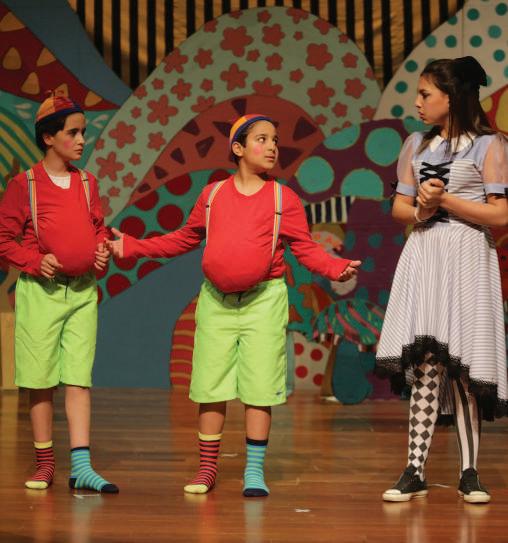
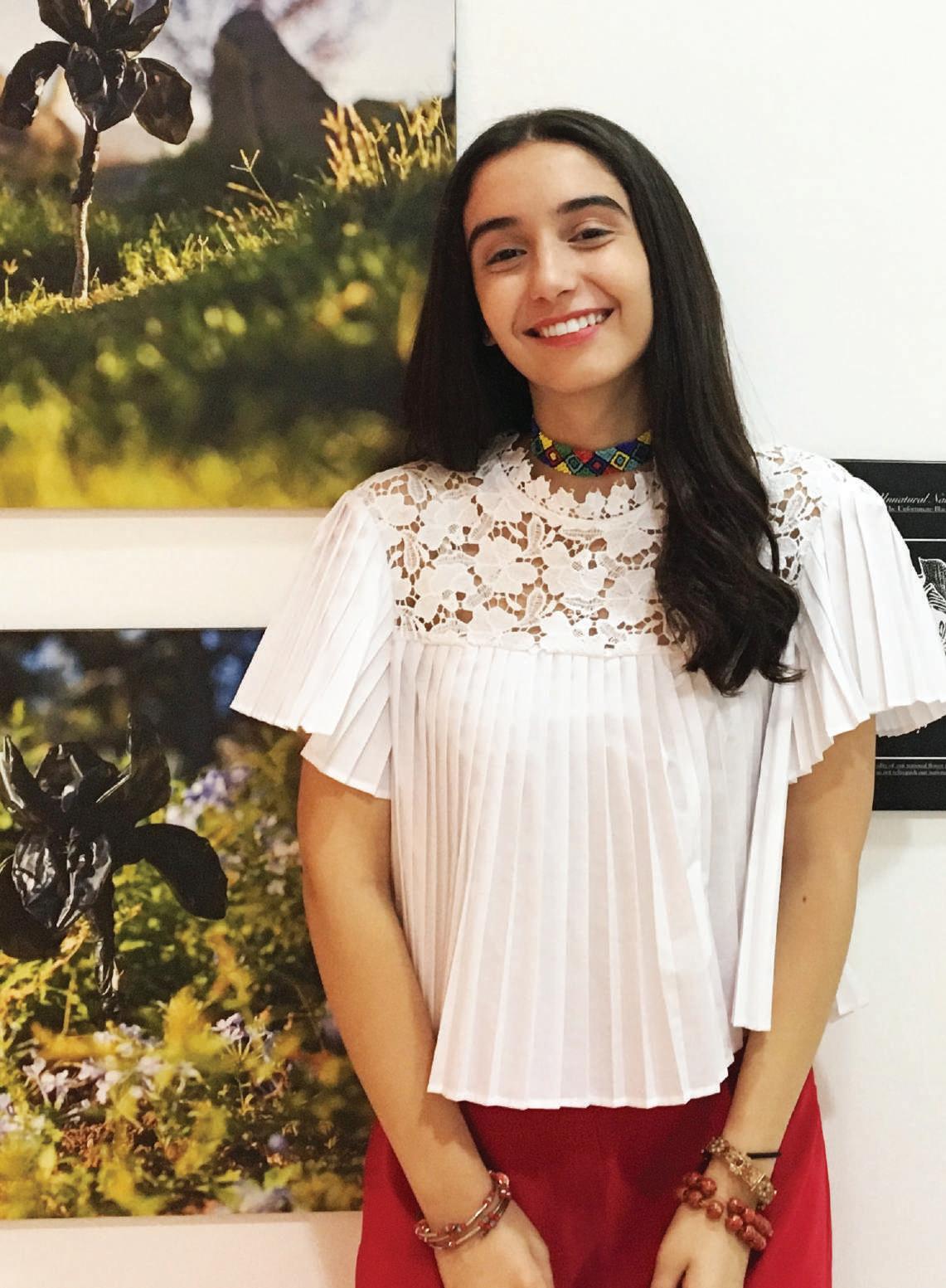
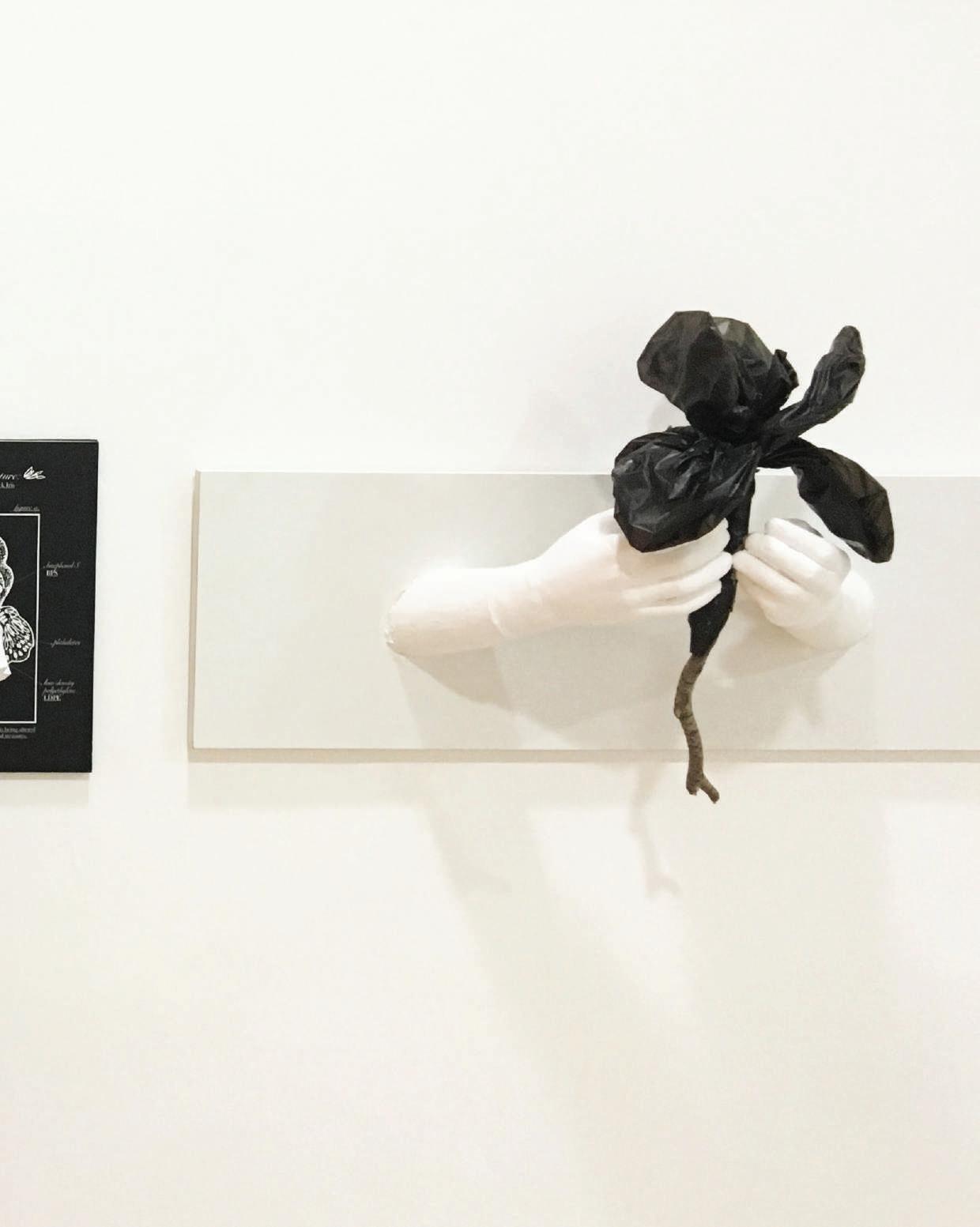 BY MUNA AL-ALUL
BY MUNA AL-ALUL
Sama Zoubi
’19 uses art to fight for a cleaner Jordan
It was the serendipitous convergence of three events that conspired to launch Sama Zoubi ’19 into her design debut at the 2017 Amman Design Week (ADW) in October. The first was a conversation with her grandmother, who, after studying Zoubi’s art hanging on her bedroom walls, insisted that it was meant to be shared with the world. The second came about when Zoubi began to research Jordanian art galleries at which to display her art. The third was a conversation between Zoubi and a German student attending King’s Academy on exchange. During his time in Jordan, he expressed to Zoubi his dismay at the amount of litter polluting the landscape. That conversation was to have a lasting impact on Zoubi.
Zoubi has always been interested in the arts, in all their forms, and she credits her parents for giving her the space to explore her interests, and her school for giving her the opportunity to practice them. She seizes every opportunity to visit art galleries and exhibitions, usually dragging friends and family along. After delving into film and theater at school, she thought at one time of becoming an actor or director. To nurture her love of music, she is learning to play the cello and performs in the school orchestra. As a member of King’s dabkeh troupe, she expresses her appreciation for both dance and culture.
Throughout this exploration, Zoubi eventually discovered a real passion for an art form called Zentangle, a method of creating beautiful images from repetitive patterns, and knew that this was what she wanted to pursue. It was those creations, hanging on her bedroom walls, that prompted the nudge from her grandmother to find a way to present her work to a wider audience.
In 2016, Zoubi had visited, and been fascinated by, the exhibits at the inaugural Amman Design Week, an immersive experience in design supported by Her Majesty Queen Rania Al Abdullah. Created as a forum for learning, exchange and collaboration within Jordan’s nascent design scene, ADW seeks to empower designers through the cross-pollination of communities and ideas. The following year, as she searched for local galleries to approach with her art, Zoubi stumbled across the ADW website and saw that the organizers had expanded the scope to include a student exhibition. She immediately submitted her portfolio, and although ADW was mainly targeting university-level design students, she was accepted.
One of the most important parts of ADW’s student exhibition is its mentorship program; students are given the enviable opportunity of working one-on-one with design specialists and experts to develop their ideas and produce design works for the exhibition. Zoubi’s assigned mentor was Dina Fawakhiri, an award-winning graphic designer, freelance illustrator and former creative director of one of Jordan’s most prominent advertising agencies.
“When we first met, I didn’t really understand what design was, or what I could do with it,” says Zoubi. “Dina really helped me understand more and expand my knowledge. I believe art should be used to communicate important messages — you can change the world with what you do with art.”
“We were very metacognitive, we’d think about every step we were taking and why we were making that choice,” says Zoubi, describing the early days of discussing ideas with her mentor and creating proposals to submit to ADW. Several rejections later, through a process of trial and error, and with the guidance of her mentor, Zoubi began to understand that what ADW was looking for was a design piece that would not only be aesthetically pleasing, but also have meaning and purpose.
“A lot of sessions with my mentor were just: pause, look around, what do you really want to talk about?,” says Zoubi. “She really helped me figure out what I want to discuss and that was how I came to this issue that I want to tackle.”
“I knew that if ADW weren’t convinced, the public wouldn’t be either,” says Zoubi. “So, I crafted the idea of a black iris, Jordan’s national flower, being replaced by a plastic bag. It was six weeks before I heard back, but they finally accepted my proposal.”
“The exchange student who came to King’s asked me why we have plastic bags flying everywhere like birds. When I thought of this design idea, I remembered his exact words,” says Zoubi. “The black iris is Jordan’s national flower, but if all foreigners see when they visit Jordan is plastic bags, what are they going to associate Jordan with? That was what I was trying to communicate through this piece, that our national emblem is being replaced with manifestations of our pollution.”
The plastic bags were crafted to closely resemble the real black iris, so at first glance many viewers did not notice that it was trash they were admiring, not real flowers.
Zoubi’s piece consisted of three parts, and the process of creating them involved not only guidance from her mentor but collaboration from experts, such as a sculptor who teaches at the University of Jordan and the art teachers at King’s. The first part was a sculpture of hands holding out a black iris made of plastic bags, essentially showing viewers that “this is what you are giving to Jordan’s future.” The second part was a graphic illustration of a black iris; however, the flower’s parts were labelled with the names of poisonous chemicals that are leaching into the ground from plastic waste. Zoubi also collaborated with photographer Hazem Jweinat to take two photos showing sculpted plastic bag
“flowers” which they placed in natural settings such as public parks and fields. The plastic bags were crafted to closely resemble the real black iris, so at first glance many viewers did not notice that it was trash they were admiring, not real flowers.
Through Amman Design Week, Zoubi realized that she could use art as a medium to better communicate her concerns about littering and the environment in a way that would allow people to come, see, listen and think about it.
“People started thinking about my message, and some decided it was controversial, but at least there was this reflection, and their reactions helped me see that my message was being communicated and understood,” says Zoubi. “It made people realize that they see plastic bags on the ground every day, but most have never seen a black iris. Both are black but one is a source of pride and the other of shame. That this is related to the identity and culture of Jordan I think impacted people more.”
“As a Jordanian, littering is not something I want to be associated with, I want to do something about it.”
According to Zoubi, the liberal arts education she is gaining at King’s, where she is learning how to be proficient in research, critical thinking and the arts, has been essential to her participation in ADW.
“After the experience of taking art and design classes at King’s, I learned more about the capacity of art to be used to send a message, so my perception of art has expanded,” says Zoubi. “Another important thing I learned in research courses I am taking is synthesizing; how to connect different ideas together. Being able to see how to connect something visual with something conceptual opened my mind to so many new possibilities.”
“During the exhibition, the question of how my school had cultivated my participation in ADW was asked frequently, so I felt proud to share the information with them. I was really proud to be a King’s student,” she says.

Sama Zoubi King’s Academy King’s Academy
Sama designed a replica of Jordan’s national flower, the Black Iris, out of the black plastic waste bag. Her project represents the severity of the societal and environmental littering and pollution problems in Jordan.
Credits
Production: Hazem Hweinat, Photographer Consultation: Sculptor Hazem Zubi, Artists Rand Abdelnour and Diya’a Al Hadidi.


The school as a whole demonstrated their support for Zoubi, visiting the exhibition on class field trips or individually, the art department assisted her, and teachers gave her time to work on her piece as well as inviting her to their classes to talk about her work.


“I experienced a lot of growth through this experience,” says Zoubi. “It made me think this is something I might want to do with the rest of my life.”


Dr. Eric Widmer’s memoir, written to honor the 10th anniversary of the founding of King’s Academy, by the first headmaster of the school, offers so many memorable anecdotes that could have been lost to the passing of time, had they not been shared. To a degree, Dr. Eric’s writing appears to emerge from those same considerations that created the need for the recorded Christian Gospels: an interest in the preservation of first-hand accounts of a series of remarkable events, and a commitment to share a particular story, told from a particular vantage, more broadly.
The audience of Eric’s gospel memoir clearly includes the figurative “both Gentile and Jew,” a common
expression that, in the vernacular of early Christianity, includes just about everyone. In that revelatory writing, we may be reminded of the scripture that concludes the Christian New Testament, a provocative and otherworldly chronicle entitled The Apocalypse of John. This word, apokalypsis in the original Biblical Greek, has its roots in the expression used to describe something that was once concealed and now, through the Gospel writer’s efforts, we are permitted to draw the curtain back and peer at the freshly revealed truth.
Dr. Eric, through no small effort, and as a gospel author in his own right, has pulled back the curtain to give us a behind the scenes view on what it was to live through nearly a decade and a half of vision becoming reality: King’s Academy manifest.
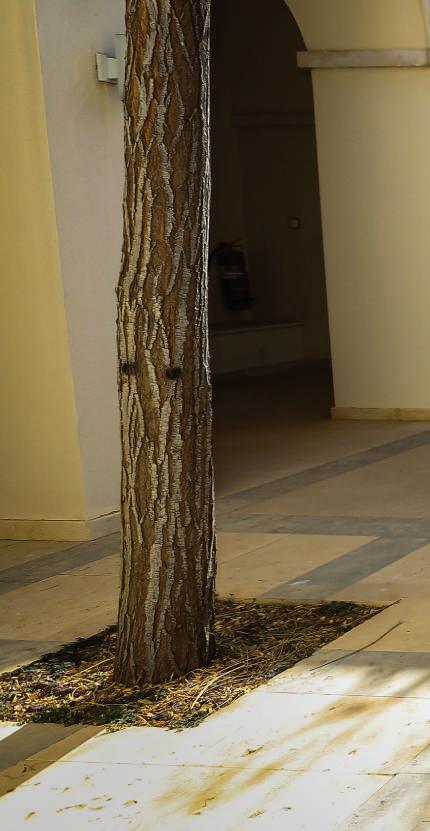
Such weighty wisdom invites comparison to another yearning similarly rooted in classical thought, that of the place of Greek aphorisms in the life of ancient Greek societies. Aphorisms are those small quips introducing — or, actually, reminding — others of the fundamental realities of our rooted and connected existence. The short sayings appear regularly in the literature of that time and place, and, most notably, were found to have been recorded in the writings that adorned the Temple of Apollo at Delphi. Here is one, and not an unimportant one by any means: Gnothi Seauton, translated as “know thyself.” This is not only a disposition of virtue, but a lifelong goal to be pursued at all times. In a sense, then, and to honor the wise words of our Grecian ancestors, the contemporary story of King’s
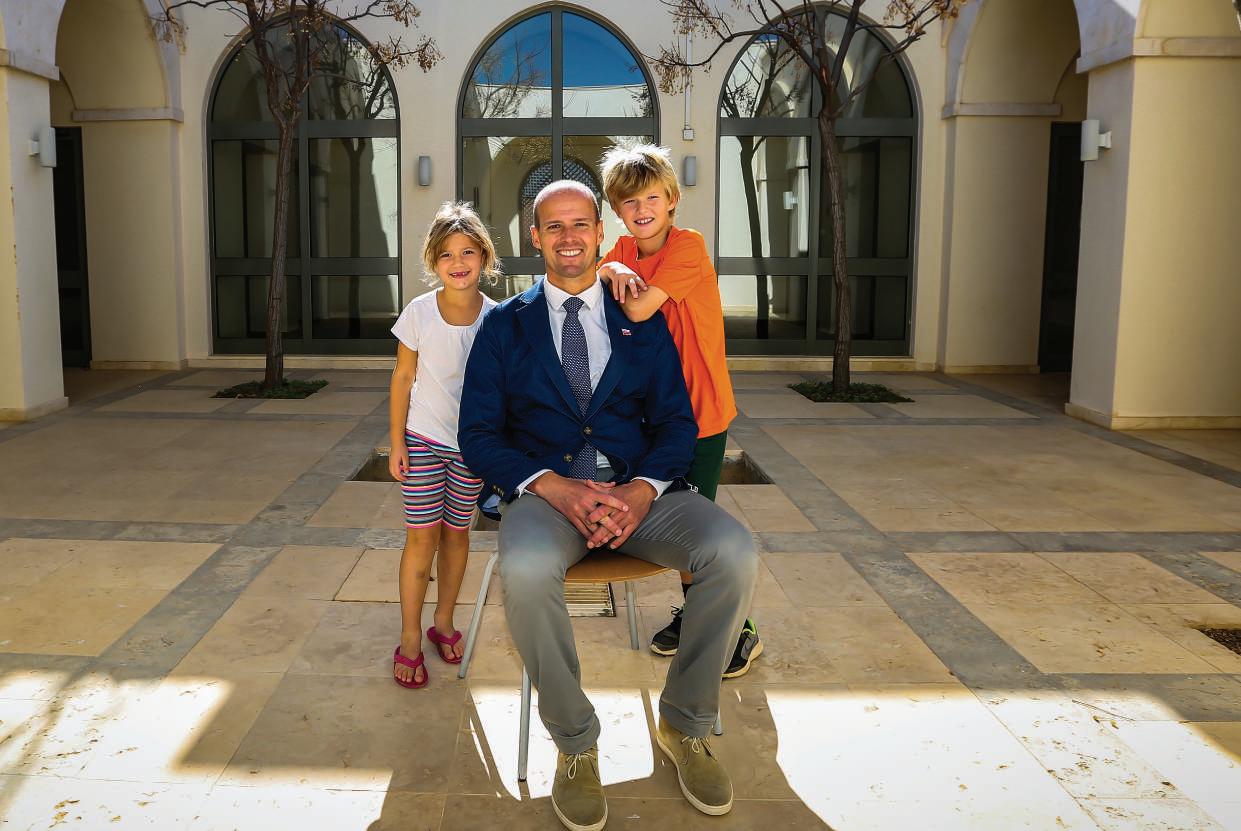
Academy is embedded in our ability to know both where it — the school itself — and we have come from, and, then, to have a sense of where this community may want to go and how it may want to continue to express itself into the world. We find again that the classic writings that have preceded us by millennia have in them the same truths and carry comparable human yearnings that we seek today.
Perhaps now obvious, it is worth reaffirming the place of the pursuit of moral, philosophical and spiritual inquiry in the lives of the great young minds that populate King’s Academy, that scholastic enterprise which flowers so inspiringly from the fertile soil of Madaba. Even in our earlier references to gospels, apocalypse, and aphorisms, much would be lost
in translation had one not had a grounding in the seminal sages and texts that have preceded us. We do, truly, “stand on the shoulders of giants” to offer another lexical tool, the idiom, which so succinctly summarizes cultural nuance and wisdom with only a few words.
Ethics, Philosophy and Religion, the title given to — arguably — that most essential department at King’s Academy, one that aligns so clearly with the school mission to nurture “independent, creative and responsible thinkers within an ethical community,” is the place where students can go to acquire not only an understanding of life in its origin and its existence, but also to come to better honor themselves as participants in, and not spectators of, the life they are living. This
department, which leans heavily on the deliberation of the great questions of the human experience, is where students can come to know the good news (gospel) of their own lived lives, to draw back the curtain to hidden and important ideas, and to better know themselves in the dialect of many of the world’s formative philosophical traditions.
The curriculum of EPR, the acronym for the department, is not inextricably tied to standardized assessments,* those curious and for-profit elephants in the room (another appropriate idiom) that we would all do well to either welcome by throwing peanuts firmly at them, or to take them back out to their natural habitat: somewhere in a peaceful setting far away from contact with humans. Either way, whether we embrace the
elephant and feed it, or escort it out, we do need to come to terms with its presence.
Thankfully, the elephant rarely visits the EPR classroom. In EPR, students at King’s Academy encounter important topics, and confront the puzzles these deliberations construct:
• Ethics: Morality as Cultural, Social, Fixed, or Situational?
• Religion: Origins and observance;
• Philosophy: Arabic, Persian, Asian, and European;
• and Theology: What can, and do, we really know about God?
EPR is that place where, with wide eyes, engaged bodies, active voices, curious minds and in a setting that is safe for constructive and provocative dialogue, adolescents can appreciate the true worth of educational pursuits, and affirm and nurture their love of learning.
In one memorable anecdote from the King’s Academy memoir, Dr. Eric recounts the time in the early years when students were brought to the King’s Academy swimming people to assess their swimming ability.
This test served as a measure of the degree to which all students could be confident in their ability to stay afloat in the water. After inviting the confident students to jump in, Dr. Eric — and the appropriate number of adults on hand — noticed that nearly all of the students, once in the water, were unable to swim. After fishing them out, the students admitted that their earlier swimming experiences were in the Dead Sea, a very large, salty swimming pool (as many of us know) in which it is nearly impossible to drown. As the English Taoist apologist Alan Watts stated, in his effort to teach others how to swim through the unfamiliar waters of some of the Asian philosophical systems, “to have faith is to trust yourself to the water. When you swim you don’t grab hold of the water, because if you do you will sink and drown. Instead you relax, and float.” Perhaps, as a
way to connect ancient and modern wisdom, with ancient and modern authors, we can make our way to this final conclusion: It is in EPR, that department of great worth, buoyed by the timeless inquiries of human existence, where students learn to relax and float and come to know their true selves.
*It is important to note that Jordanian citizens, during their primary and
It all started with a stranger entering my classroom during my introductory lesson of the new term. “My name is Jan,” he said, I thought to myself, Is it John? Perhaps I misheard. It could not have been Jan… he certainly did not strike me as a ‘Jan’. Upon the end of the session, the gentleman spoke with me briefly about the possibility of initiating online sessions with his USbased school and we simply exchanged emails. Weeks later, I was surprised to hear back from Jan and over the remainder of the year we cemented our relationship and held numerous
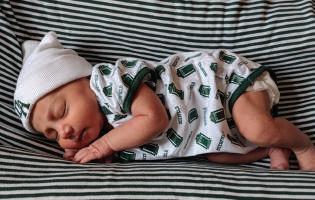
Skype sessions between King’s and Deerfield students which proved beneficial for the exchange of cultural, religious and political information.
This led to the first King’sDeerfield full faculty exchange whereby Jan and I would switch roles in our respective institutes. My then-pregnant wife and I knew the experience would be
secondary school years, need to be prepared for Tawjihi equivalency exams. As a result, King’s Academy offers Islamic Theology courses in correspondence with the expectations of the Jordanian Ministry of Education, assisting students to prepare for those exams that are compulsory given their citizenship. This appears to be one instance where my claims about EPR and standardized assessment fail.
challenging but we were glad to take on the challenge. Despite our British upbringing, Halima and I are none-the-less Muslims. Therefore, amongst our key challenges was to appropriately relay His Majesty King Abdullah’s vision and represent the Islamic and Arab world in the United States. We were taken to our new temporary home on #1 Wells Street, and from there it began.
Soon we came to the realization that my wife was the only veiled woman accompanied by the only bearded Mohammad on campus! But everyone at Deerfield made us feel at home. Contrary to our assumptions, the entire community embraced us with love, compassion and inclusiveness. I was able to build upon the King’s message of peace propagated by him to world leaders. Moreover, teaching “Ethics,” “The Bible and The Qur’an” and “World Religions” at Deerfield was overwhelmingly rewarding. It reinforced my belief that King Abdullah has indeed succeeded in building a school in which individuals from different cultural, ethnic and religious backgrounds could coexist. The two “sister institutes” are equally well-equipped to prepare students for a daunting task, that of becoming world leaders!
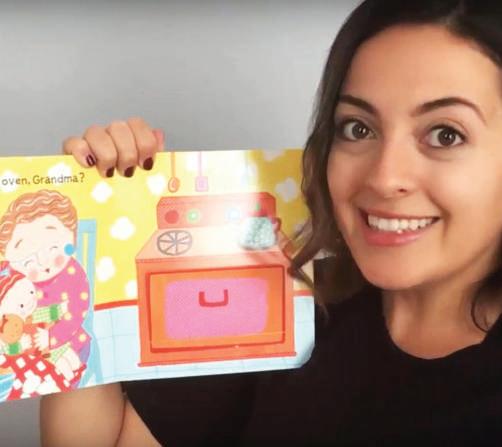
Last year, Lina Samawi, who teaches Arabic as a foreign language, started a YouTube channel to help children and adults learn Arabic through storytelling. On that channel, “ihkeeli Ossa,” (tell me a story), Samawi narrates stories from around the world in Arabic. “My goal is to bring children closer to the Arabic language and provide a tool for non-native Arabic speakers to learn the language through stories,” she says. Since launching the channel, Samawi has received a lot of positive feedback. “Mothers have told me that their children started to speak Arabic after watching my videos, and Stanford University professors are using my videos in their classes,” she says. Companies and organizations in Jordan have also asked Samawi to collaborate with them on other projects relating to Arabic storytelling.
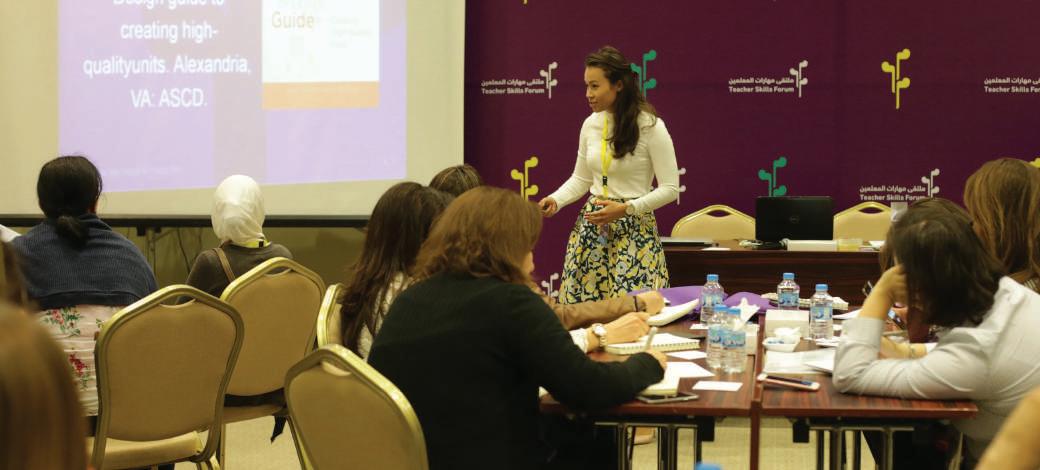
King’s faculty members headed to the Dead Sea in March to participate — along with 1,300 teachers from 23 countries — in the fourth annual Teacher Skills Forum, which focuses on teachers and classroom needs to enhance and improve the quality of teaching. King’s faculty have presented at the forum every year since 2014, and this year they presented in both Arabic and English on more topics than any other participating institution. On the first day, Dean of the Faculty John Leistler and Instructional Coach Christy Folsom led a full- day institute on how teachers can help students
develop self-directed learning through project work. On day two of the forum, 12 different workshops were presented by 16 King’s faculty members covering topics including how to develop student thinking and social emotional learning; how to use multiple intelligences and different learning styles in teaching Islamic studies; how to use creative writing to build classroom culture; how the workshop model transforms student learning; and how to develop meaningful teacher-student relationships.
As part of the 2018 Amman Contemporary Dance Festival at the Royal Cultural Center in April, King’s Dance Program Coordinator Ryuji Yamaguchi performed Vibration, a dance he choreographed in collaboration with Hungarian dancer Rita Góbi and four international musicians, lighting and costume designers and creative producers. Yamaguchi and Góbi began collaborating on the work in the summer of 2016 at OMI Dance Residency in the United States. Vibration, described as “a physical poetry of the live body that explores attraction and repulsion, and irregular rhythm,” premiered in Hungary in February 2018 and will be performed in Japan in the summer of 2018. It is Yamaguchi’s third year performing at the Amman Contemporary Dance Festival, a forum he says has been instrumental in connecting youth from different cultures and socio-economic backgrounds with Amman’s dance community and exposing them to different ways of dancing.
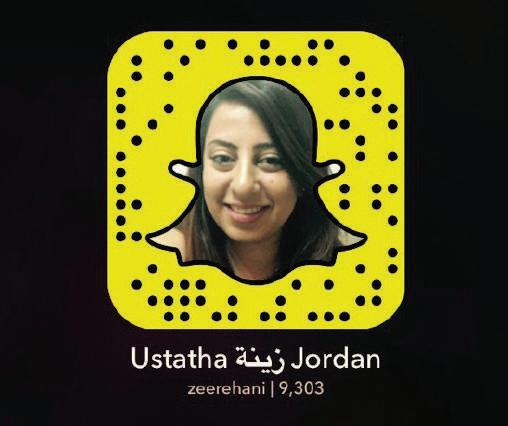
With over 20,000 Snapchat followers from around the world, Zeina Rehani, who also teaches Arabic as a foreign language, uses the social media platform to teach Arabic to non-native speakers and provide a positive representation of Jordan. Rehani says the media portrays a flawed image of the Middle East, so she hopes that her Snapchat account can “improve the image of the Arab world and show how beautiful the Arabic language is.” Rehani also uses her account to help native Arabic speakers improve their English language by speaking in English in many of her videos and sharing common words and phrases. This year, Rehani also started using Instagram to spread her message to a larger audience.
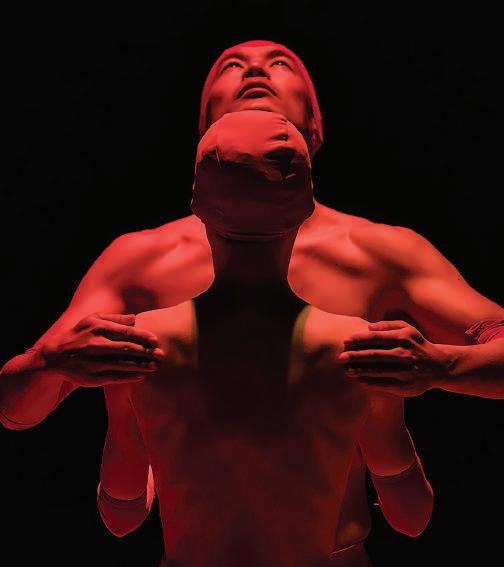
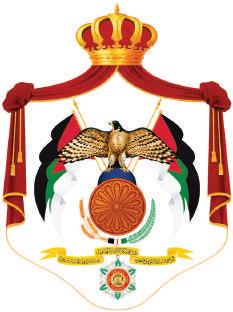
Determined to teach Jordan’s history to King’s students, history teacher Ghassan Gammoh ’10 has created his own course, which will be added to the history department’s curriculum next year. Including collaborative projects with historians and archives at the Royal Court, the course explores the history of Jordan starting from the 1916 Arab Revolt, and goes through the years of the British Mandate followed by the formation of Jordan as an independent kingdom and concludes with the political, economic, diplomatic, military and social developments of the later 20th century. Gammoh hopes that the course will provide an opportunity for students to think about Jordan critically and to develop solutions to the country’s current issues.
From the earliest days of its inception, King’s Academy aimed to be a school accessible to the most promising students from every corner of Jordan, regardless of their economic situation. To achieve the diverse socio-economic environment that was His Majesty King Abdullah II’s vision, King’s Academy had to ensure that every qualifying student had an equal opportunity to not only enroll at the school but also to flourish.
In his book Memoirs of a Founding Headmaster, King’s first headmaster, Eric Widmer recalled that he was, at first, unsure how to accomplish this ideal — taking into account students would have varying levels of education and English fluency — until his wife Dr. Meera Viswanathan came up with the solution.
“Students who come to us from the more privileged families and from independent schools will also have a good command of the English language, whereas those who are less privileged and come from government schools will not,” said Viswanathan. “Therefore, we must have a summer program. And we must begin this coming summer, a year before King’s opens, so that we may find those students, immerse them in English, and introduce them to boarding school life.”
With that, the Summer Enrichment Program (SEP) at King’s Academy was born. Launched in July 2006, SEP —
the only program of its kind in Jordan — reinforces the school’s commitment to education in Jordan and aims to strengthen the educational fabric of the country.
King’s began by collaborating with the Ministry of Education to identify the highest achievers from government, military and UNRWA schools nationwide. In SEP’s first year, 100 students were nominated by the Ministry and invited to apply, with around 51 male and female students eventually being selected.
According to SEP Director Salwa Manaja, each year brings increased interest in gaining a place at SEP and potentially a spot at King’s. “People who hear about the program seek it out,” says Manaja. “Often, parents have no idea what they are going into and initially may be a bit hesitant, especially as it is boarding and coeducational. Sometimes people withdraw, but for those who seek it out, they really want to be at SEP.”
The annual two-week program runs during the summer holidays for students in grades 6, 7 and 8. For three consecutive summers, until they reach the ninth grade, students attend SEP to develop their skills in English and information technology.
Students are housed in the dorms and volunteer teachers and counselors from Jordan and abroad administer the program. The complete cost of student participation is covered by King’s.
SEP also serves as an early identification program for students from around the country for possible admission into King’s Academy. SEP graduates are up against a lot of competition however, admits Manaja, as they have to compete against hundreds of other financial aid applicants each year. To date, around 66 SEP graduates have been admitted to King’s.
“SEP is a great equalizer,” said Vera Azar, Director of Communications and Publications at King’s and a member of the founding leadership team. “King’s vision was to be open to kids from all backgrounds, but not all can handle the transition to an English-language school. So, SEP bridges that gap.”
In the summer of 2017, 174 students participated in SEP; bringing the total number of students who have enrolled in SEP since its inception to 519. Now entering its 13th year, the program continues to provide students from around the country with an unbeatable educational experience that helps to propel them forward in life.
Bushra Al Sou’b ’17 is just one such SEP graduate. The Karak native — who is currently studying international political economy at the School of Foreign service at Georgetown University in Washington, D.C. — says that “SEP was the starting point, without which none of what I am doing now would have been conceivable to me or my family.”
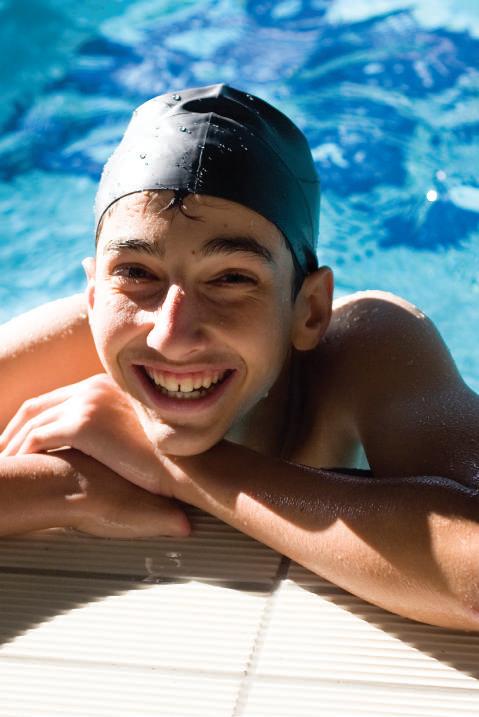

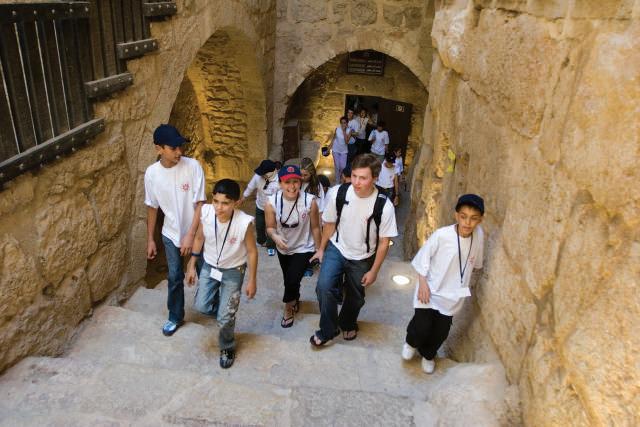
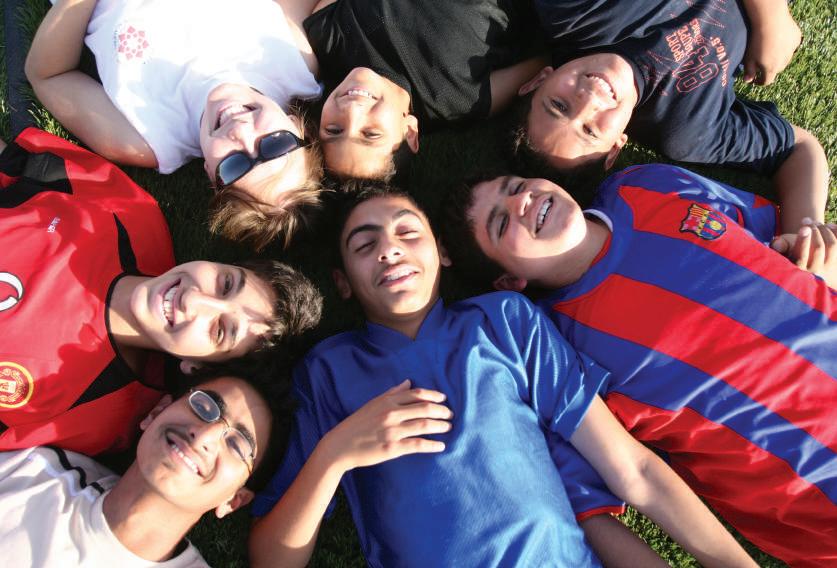
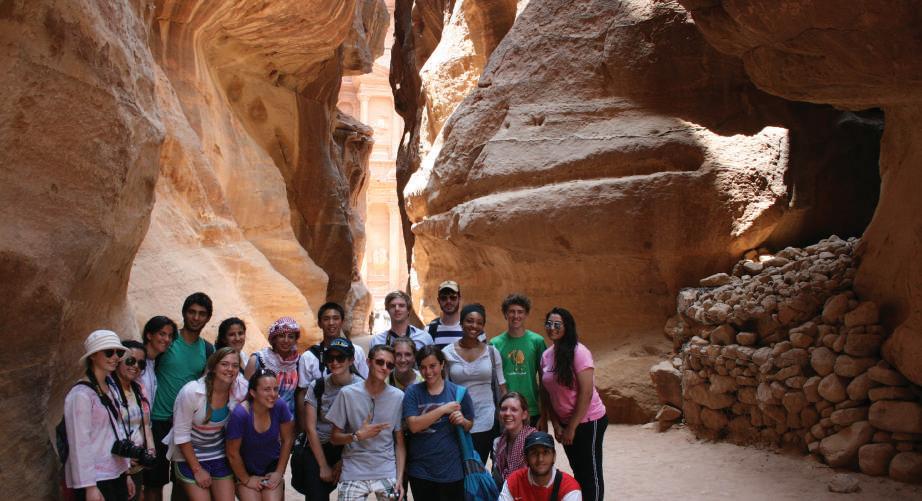
In addition to helping improve her English language skills, an aspect of learning Al Sou’b says is still lacking in Jordanian public schools, SEP helped prepare her for King’s busy academic schedule and to adjust easily to boarding life.
“Dealing with the packed schedule at SEP really prepared me for the busy environment at King’s,” says Al
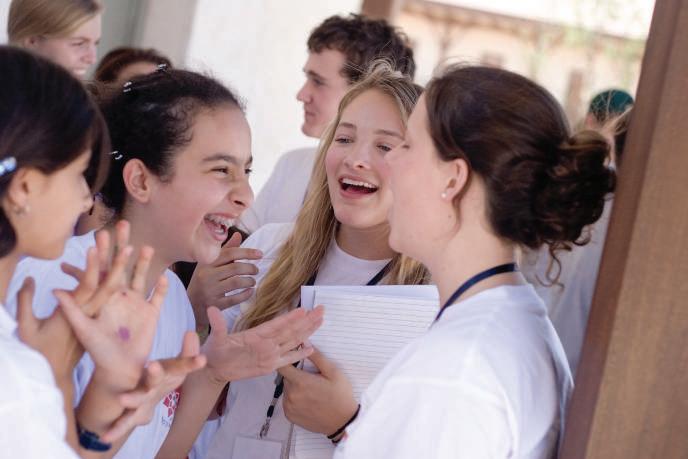
Sou’b. “Likewise, it was relatively easier for me to forge friendships with my neighbors and find a home away from home. SEP offered me many opportunities to improve my English, and live an integrated life. I was also encouraged to read extensively.”
A natural leader, Al Sou’b made the most of her four years at King’s, acting as a proctor and junior counselor,
leading the Jordan Model Parliament initiative, and founding Kan Shab Wa Shaab, a community service initiative that connects youth to the elderly in Jordan. She continues to be active at Georgetown, where she is an events coordinator for the Georgetown Arab Society Board and has organized charity galas to raise money for the Syrian American Medical Association. Al Sou’b is also
a Centennial Fellow, researching the impact of Syrian refugees on the host community in Jordan, under the mentorship of former Minister of Foreign Affairs HE Nasser Judeh.
Another SEP graduate and current senior, Omar Zaatareh ’18, says that attending SEP helped him to adjust easily to boarding life at King’s, giving him an advantage over his fellow classmates who struggled, especially the first year. Zaatareh, who plans to study engineering and economics at George Washington University this coming fall, also notes that SEP played a huge role in preparing him mentally and academically for King’s, particularly on the language front.
“I did not have any English conversational skills prior to joining SEP, but I gained these skills through the rigorous daily classes as well as the debates about football I had with my teachers in the dorms,” he recalls. “By the time I joined King’s, I felt confident enough with my English that I was able to take Spanish courses instead of extra English.”
Zaatareh achieved much during his time at King’s. He took on leadership roles as a proctor and member of the Honor Committee, volunteered to build an orphanage in India with the Round Square Organization, and participated in leadership summits including Seeds of Peace and Global Citizens Initiative. Most notably, last year Zaatareh was the recipient of three Catalyst Conference awards for his project “The Refugee Crisis: Domes of Hope,” for which he designed efficient alternatives to existing refugee camp tents, as part of his Global Online Academy (GOA) architecture course.
Also a current senior at King’s, Irbid native Balqees Al Shorman ’18 says attending SEP helped her establish goals, and taught her to aim high and work hard.
“Many of the skills I learned at SEP I still have: critical reading, reading
for fun or for class, writing poetry,” says Al Shorman. “All of these things were tools in my box and I needed to learn to wield them. SEP showed me that I needed to work hard for any and everything.”
Al Shorman — who plans to study architecture after graduation — is one of the most active students around campus, taking part in a variety of school activities including acting in and directing the annual Arabic school plays, being a member of the Ecos and Greens Club and King’s Model United Nations, and founding a community service initiative that helps underprivileged children develop their artistic and athletic talents. Last year she volunteered as a counselor for SEP, which allowed her to give back to the program that brought her to King’s and, by sharing her experiences, show students what they are capable of achieving.
Fellow Irbid native Mohammad Al Quraan ’10, who attended the very first SEP program in 2006 before the school had even opened its doors, believes that every King’s student who participated in SEP should go back and volunteer for the program.
“As SEP graduates we’ve experienced it all, so we know what will help other students most,” says Al Quraan, who participated in SEP first as a student, then as a volunteer counselor and finally as a teacher. “The point of King’s is to give back to the community and SEP is the first program at school to do that.”
“It’s important for SEP students to give back to their community too. We’re role models that show them that they aren’t limited to being just SEP students; they can come back as counselors and teachers too.”
“I love coming back,” he adds. “It’s very fulfilling to help kids learn something new, whether it is swimming or helping them realize they are better at communicating in English than they thought they were.”
Al Quraan returned to King’s this year to take on the role of math teacher in the Middle School, and is designing the school’s first engineering class which will be offered in the next academic year. With a Master’s degree in civil engineering from Virginia Tech and two years of work as a geotechnical engineer under his belt, he says that having taught at SEP made him realize he wanted to stay involved in education, but to combine it with his love of engineering.
“SEP gave me the knowledge I needed to come up with the idea of developing, and teaching, an engineering class at the high school level,” explains Al Quraan, who pitched the idea to Headmaster John Austin during the school’s annual Boston reunion. “The school was on board with the idea as it happened to be something they were looking for; the timing was good for both of us. I was at a point in my life where I was deciding what I want to do next. Being at King’s encouraged me to be independent and proactive and prepared me to make the right decisions in life.”
“What is important about SEP is that it introduces students from around the country — who have often never been exposed to the type of education or facilities available at King’s — to the fact that there is more to education than just academics,” says Headmaster John Austin. “Some of the most important learning takes place outside the classroom, when students interact with their counselors and teachers during extra-curricular activities. The environment of SEP helps them to unlock their potential; it is rewarding to see how the students gain in confidence, both in their ease in communicating in English and in their interactions with others. After SEP, we often see that students have a new enthusiasm for learning, they become more active at school, and find purpose and direction in life that they may not have had before.”
What’s new, to me, is that SEP is all in English, and it’s much more difficult than at my school. I didn’t read much before SEP, but here I am reading a lot of books and learning a lot of new vocabulary. At SEP they expect us to depend on ourselves more; we’re learning to live alone and to not depend on our family to tutor us. Every minute is scheduled here, they make you feel like you don’t have a minute to spare without something to do. I love a lot of things about King’s. When you see this beautiful view in the morning it makes you calm, you never see anything but sand around where I live!
Ahmad Al Gharabeh 6th grade, Aqaba
At my school, they give us very basic vocabulary as if we were younger kids. At SEP they give us harder vocabulary, they push us so that we learn beyond our years.
The schedule here is great. It’s nice to get used to being independent, so when you are older you are ready to leave your parents and family and depend on yourself. In Aqaba, all I used to do is play. But now my goals have become bigger. I want to work hard to get a scholarship. Since I’ve been here I’ve started thinking beyond just playing, thinking beyond just a 6th grader’s mentality.
Shayman Imad 8th grade, Maan
The most important thing we learn at SEP is respect. Because you have a mix of people here you learn to not only respect yourself but to respect everyone else and their differences.
Raghad Abu Sarhan 8th grade, Zarqa
We aren’t allowed phones at SEP, which is good because it made us bond and we wouldn’t have made friends like we have if we had our
phones on us the whole time. English at my school is mostly in Arabic with a few English words thrown in. Here it’s all in English. It gives you the confidence to use English wherever you go, especially if you want to travel one day.
Ahmad Al Omroom 7th grade, Zarqa
SEP is a great experience. We’re making new friends, we’re getting to know people from different schools and areas. The longer you’re at SEP the better it gets. Here there is a schedule that gives you focus. When you are little, you don’t realize how important some things are. When you get older you have different goals. When I was little I wanted to be a football player, but now I’m thinking of being a pilot. The best thing about SEP is the teachers; they empathize with your feelings, they are always fair and treat you well.
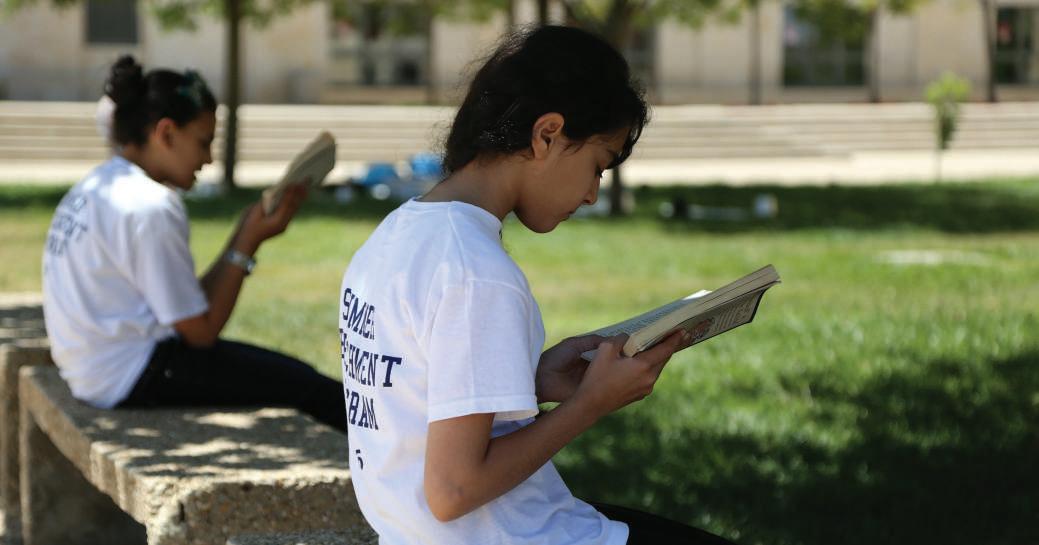

In November, Fikra 3al Mashi co-founders Saria Samakie ’16 and Rami Rustom ‘16, along with Sara Awad ’17 and Rami Hamati ’15 presented the award-winning community outreach program at Harvard Arab Weekend.
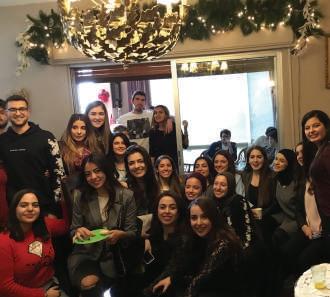
Brunch for alumni and students
In December, Alumni and students attended the annual winter brunch, hosted by Chief Financial Officer Randa Qunsol at her home.
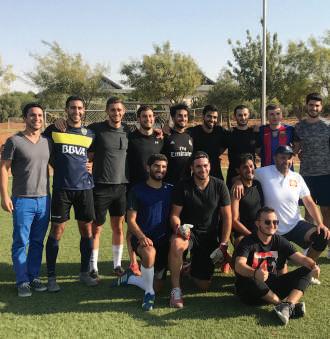
Last
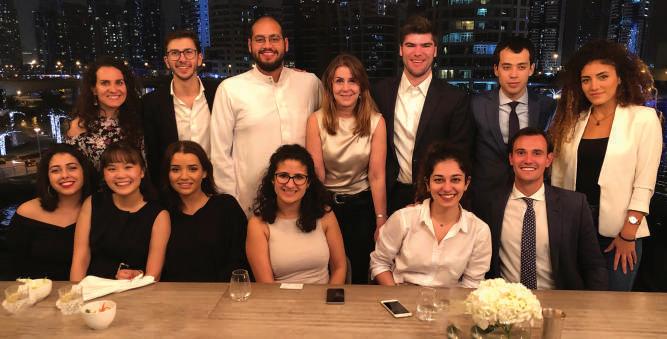
Reunion dinner in Dubai
In February, Alumni based in Dubai and Abu Dhabi gathered for a reunion at the Marina Social Restaurant in Dubai joined by members of the Development Office.
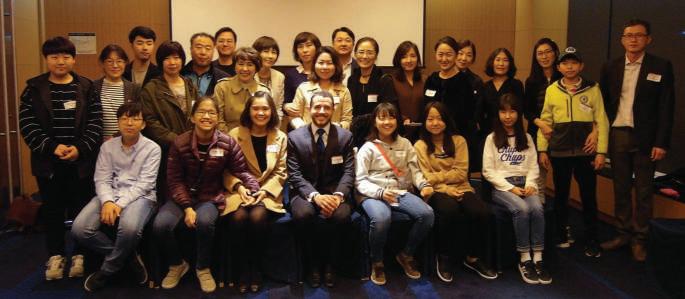
In November, Alumni and parents of current King’s students reconnected at the school’s annual reception in Seoul, South Korea. Prospective students and their parents also attended the reception to learn more about King’s Academy
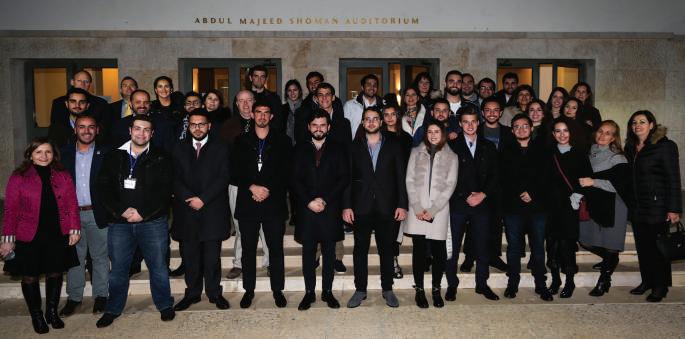
The Class of 2012 got together for a reunion on campus, before joining other alumni at the launch of the King’s Academy Alumni Association (KAAA) in January.
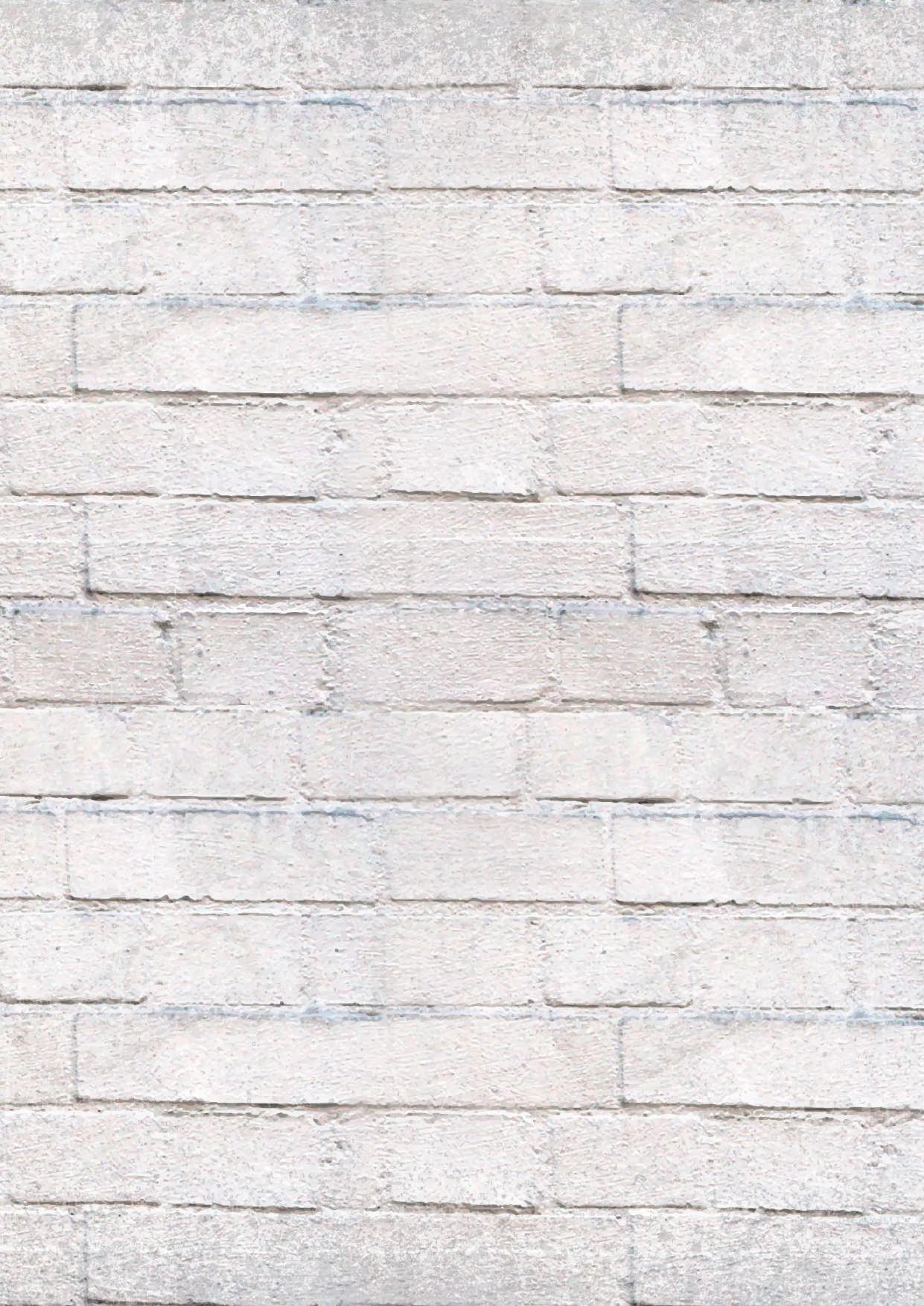

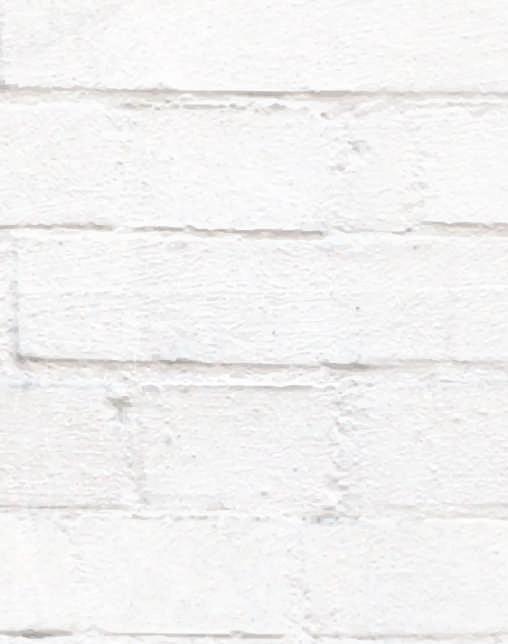
In 2010, King’s Academy joined hands with the international organization Habitat for Humanity which aims to “mobilize and support communities to implement projects that help people champion decent housing as a human right.” Since then, over 450 students and 40 teachers have worked closely with local residents to build homes for less privileged families in cities across Jordan including Madaba, Taybeh, Mukhaybeh, Ghor Safi and Ajloun. Because King’s believes that the home is a key catalyst in helping to permanently break the cycle of poverty and help people own a safe place to live, students, faculty and staff participate in five to 10 building projects every year.
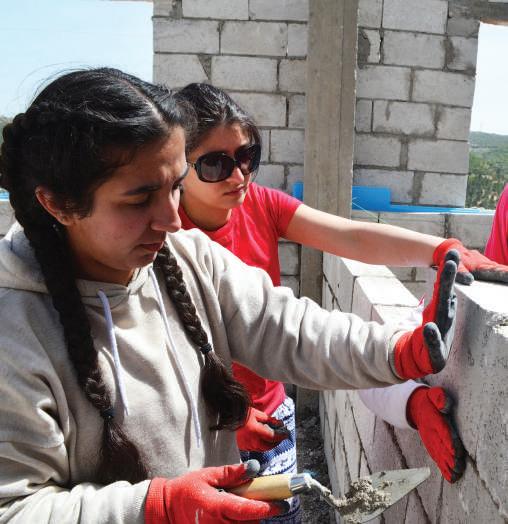
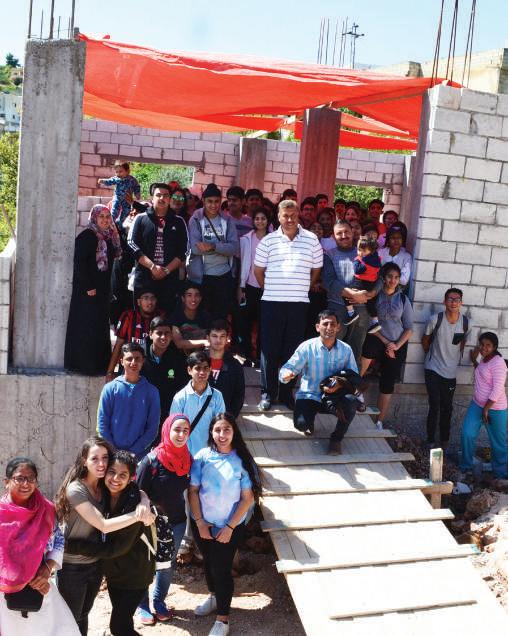
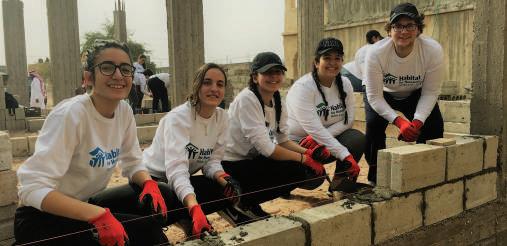
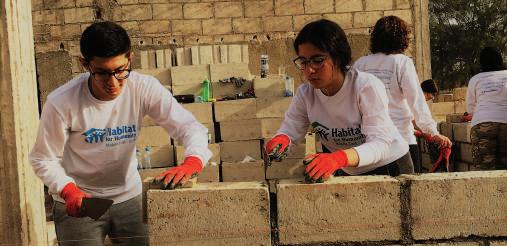
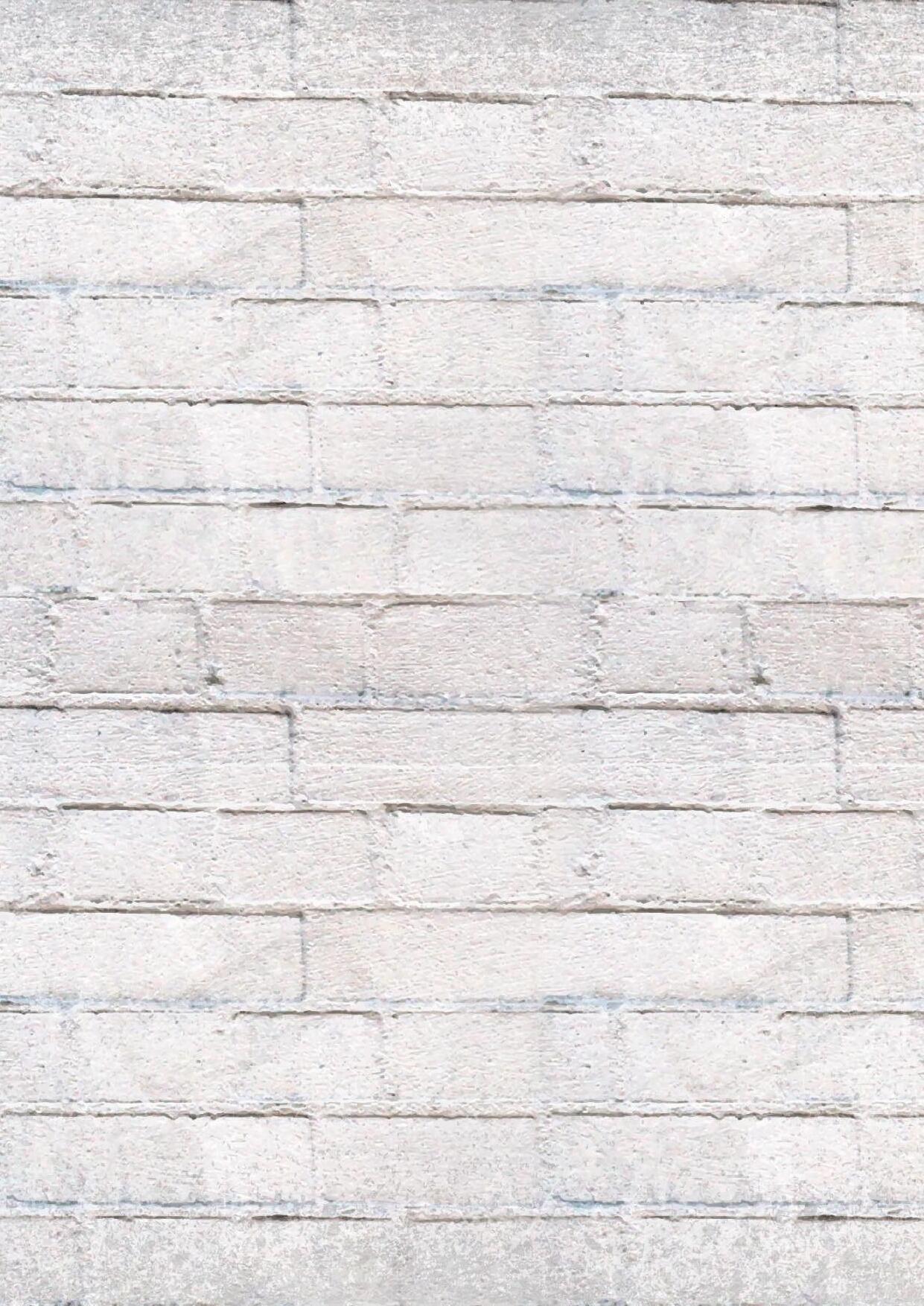
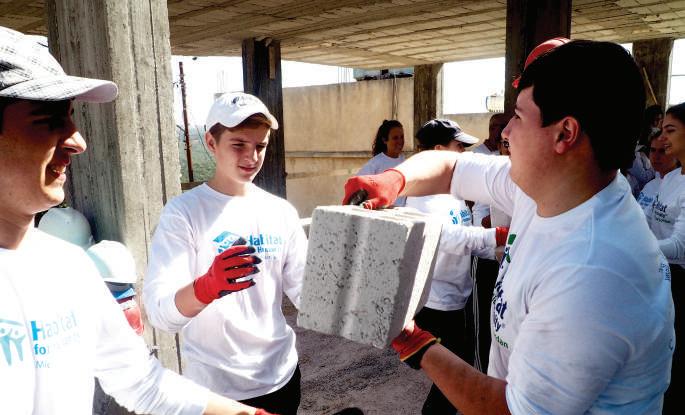
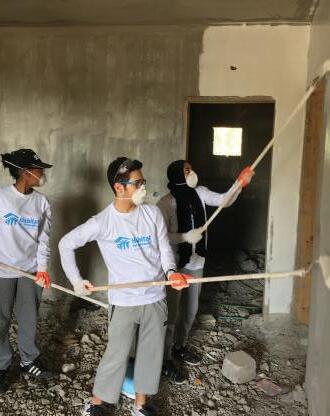
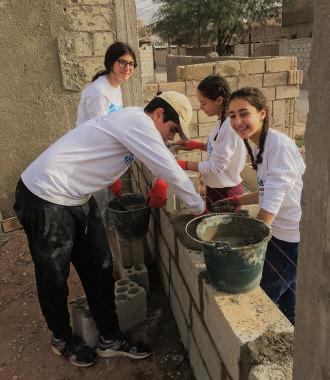
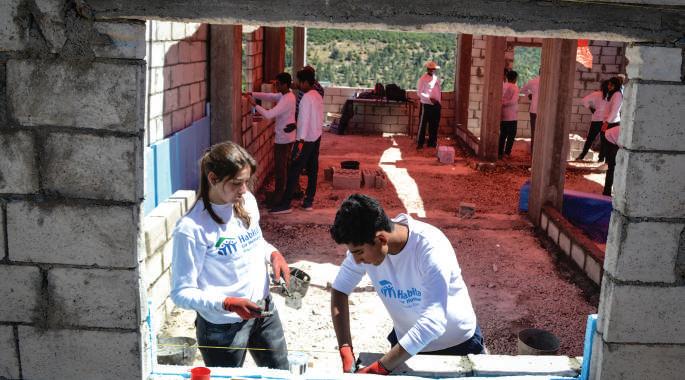
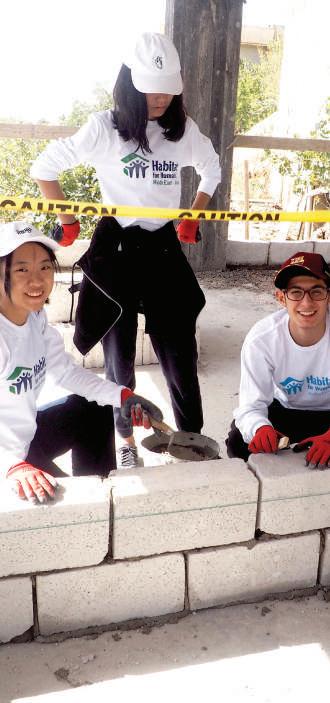
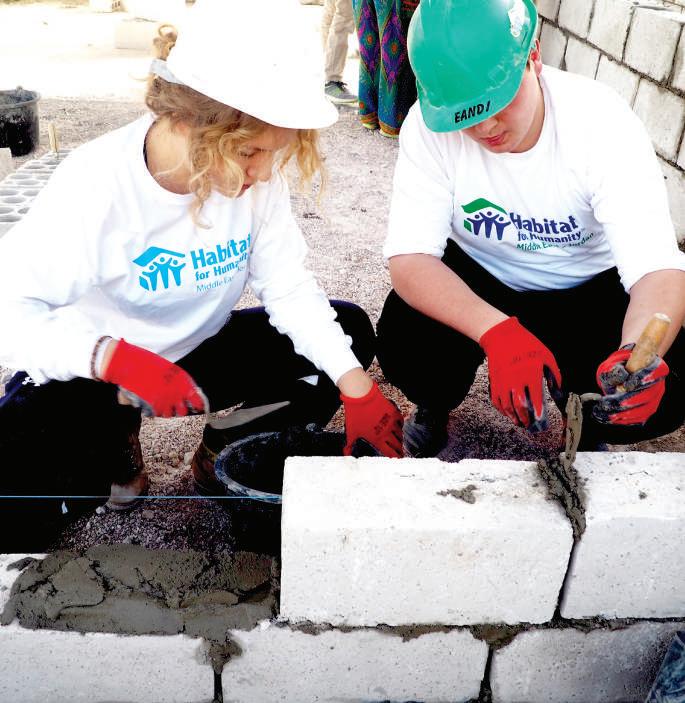
MacGregor Robinson died a happy soul. Penning this, I am aware of my limitations in making that judgment. If it were my judgment, I might not be so bold and clear. But these were his words. For the past two years I heard them every day. It was like a mantra. I once asked him if he had a mantra and he repeated the one he had learned from his father, “Do the right thing,”, and though this informed his actions, it was not what he repeated. And whether it was in the midst of a rant on workplace woes — past or present, an elegy for his mother or father and his life as a boy growing up in his edenic Norfolk, a lament for our age of moral relativity (he was a Victorian at heart who believed we should all just agree on the name of the deity and the monarch), or some kindly advice to an old dog who was tired of new tricks, wherever the talk would take us, he would just say out loud how happy he was. It was like the refrain of some well-worn hymn or familiar verse, “God, I am just so happy, so grateful for the life I have.”
I was never quite sure how to react. It didn’t seem like something to comment on, add to, or argue with. He would sing it out and, as if with wings, it would fly away. I beheld.
For a time, I wondered was he trying to convince himself — his paler side perhaps — with a kind of splashing of water on a consuming fire. Or, was he talking to me and was I supposed to join him or oppose him or…but eventually these thoughts passed and I came to realize that he was expressing what the Irish Victorian poet, Gerard Manley Hopkins described as, “the dearest freshness deep down things…” And it came out like the breath.
I might stop there, (what else really matters?) but for the purpose of this reflection, allow me to muse on why it may have been thus so. Was it because MacGregor lived in an
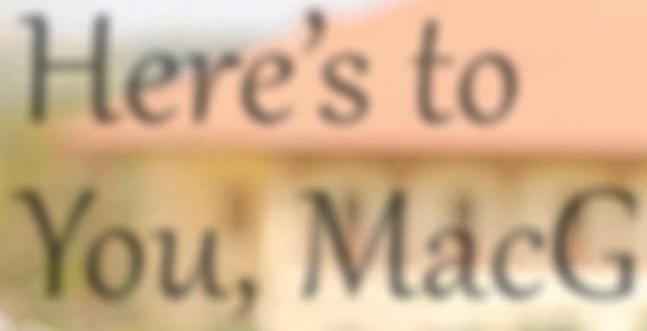
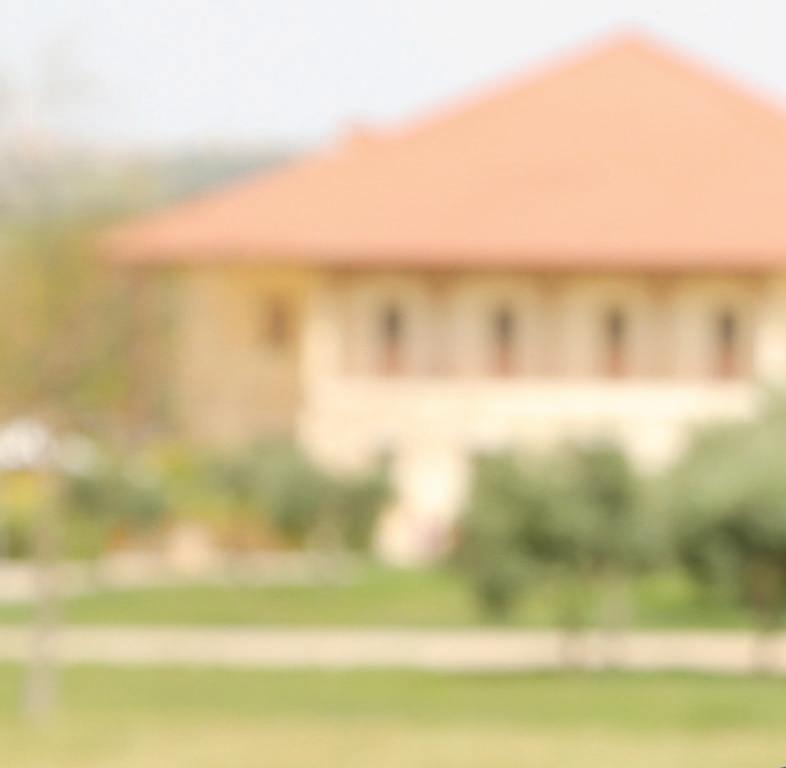 BY PHILIP M. CARR-HARRIS
BY PHILIP M. CARR-HARRIS
expanding world? Not only was he at home where he grew up — at Doolittle, the Music Shed, or the Norfolk Post Office, he was also very mellow in Shenzhen, Shanghai, Beijing, Hong Kong, or Hangzhou.
Chinese students were stunned when he would begin to describe their cities and way of life. He had an active inner Asian. He also loved Koreans. It wasn’t just the great city of Seoul and its culture (food) but the gentle charm and fierce ambition he discovered in the people (that inner Asian again). He once remarked that he could not spend too much time in Seoul for fear he would end up with a wife! Then there were his trips to the Saudi desert with the famous fathers, uncles, and brothers of his students. In his Joseph A. Bank button-down shirts and khaki pants, he would gather at their oasis camps outside the city of Riyadh — camels, Benzes, tents and cooks, and God knows what else, and he would immerse himself in these ancient Arabian traditions (and usually get students to come to King’s Academy). And in 1994 he spent a
year in the royal household of the Hashemite Kingdom of Jordan as the personal tutor to King Hussein and Queen Noor’s son, Prince Hashem. He had some stories.
His inner world was also expansive. Though his abiding interest and sophisticated understanding of great literature, as well as a love affair that fizzled got this started, it was — as I heard it from him — his herculean dance with the demons around his alcohol addiction that gave him an enduring wisdom about himself. In his mid-twenties, having been forced from home by his mother who felt this was the last and best way to reach him, and on the streets of San Francisco — like the prodigal son among the pigs — he faced the decision between living and dying and said yes. He was in his 30 th year of sobriety when he died.
Or was it perhaps that MacGregor knew himself to be a preppy, private school, Ivy Leaguer from Connecticut. “I’ve been wearing these same clothes all of my adult life,” he would say of his garb, which

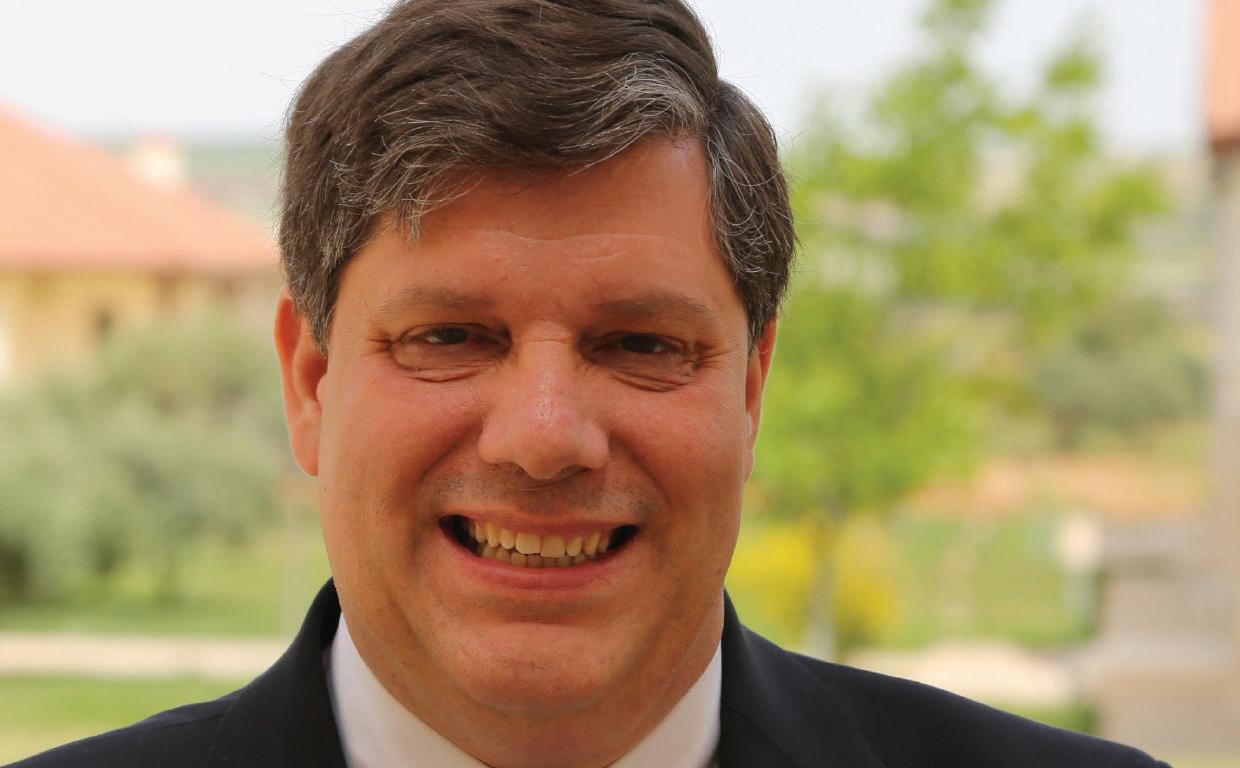
included the penny loafers, uneven silk tie — usually red, and the standard issue blue blazer. But more than the uniform of his upbringing, he also knew his tribe. He belonged to a long and distinguished line of Robinsons, MacGregors, and Brownes — Scots — and he was planning to write some historical fiction about them, beginning with a great Civil War general. There is a large trove of family papers and artifacts from the 19th century in the Firestone Library at Princeton which he had begun to organize…would anyone do it better?
As his sense of identity was firm, so was his avowed purpose. “I am a teacher,” he would say when he introduced himself. At first I quibbled with him about this but quickly came to realize that no matter his particular role in schools, he understood himself first and always as a teacher. His students and advisees would concur. He dreamed of returning to the classroom before retiring, just to have another go at Melville, Conrad, E.A. Robinson, Housman, Kesey, Twain, and Shakespeare.
Or maybe it was that he just knew what he liked and stuck with these things. The, if-it-ain’t-broke-why-fixit, philosophy. His were the three F’s: family, friends and food. He never got tired of talking about his parents. He missed them and loved having their portraits in his living room. His last months with his father, Hugh Robinson, were prized memories. And who would not want a brother and uncle like MacGoo? He was devoted to Jamie, Melissa, Ian, Lars, and Annie, and they to him.
When MacGregor decided you were on his friend list, your life changed. He was in your life and you were in his. Perhaps it was those long years in boarding school communities in which good and trustworthy friends are a necessity, or perhaps it was just in his nature to not be lonely. He enjoyed sharing meals, movies, a swim, a conversation or a drive. He was devoted to us, his friends, as he was to his own flesh and blood.
It would be maudlin to list his favorite foods and I don’t know them all anyway, but let’s just say that he
had enormous respect for skilled and seasoned chefs, and for that aged cut of beef, cooked a medium-rare, with asparagus and a baked potato, followed by a sweet melon and cup of tea.
I miss MacGregor. We were like two battle-scarred sailors aboard a 19th century sailing ship, weathering the cold, the warm, the waves, and the madness of the other men (and women), anticipating Ithaca. “What’s a guy gotta’ do to get a cup of tea around here?” he would say at five o’clock. Thankfully, good friends’ gifts do not disappear with the giver.
Farewell fond friend. May flights of angels sing thee to thy rest. And may the rest of us, still on the float, not forget your happy soul.
MacGregor Robinson served as dean of admissions and financial aid at King’s berween 2015 and 2017.
Philip M. Carr-Harris is a faculty member teaching English in the Department of Communication, Rhetoric and the Literary Arts.
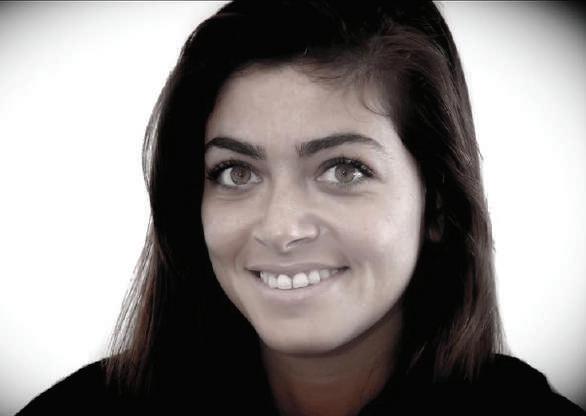
The late Ruba Daghlas worked at the school’s Learning Center as a faculty member in charge of math and science support for four years. She worked whole-heartedly with her students to coach them on how to approach their work, how to utilize effective study strategies, and how to become better problem solvers. Ruba approached all her students with empathy first, building a strong relationship with them, based on respect and trust, then she guided them towards becoming better students, and provided them with a lot of encouragement and motivation along the way.
Ruba was much more than a teacher to her students, she was a listener, a cheerleader, and a voice of reason when needed. Students trusted “Miss Ruba” to say it straight to them but to still be supportive even when giving them constructive criticism. They always rushed to the Learning Center to share good news with her or to discuss concerns. The best days were when the students rushed in to her
office to share a complex math problem they had just solved or to flaunt a high grade they had received on their exams!
As a colleague and team member, Ruba was always positive and helpful. Within the team, she was well-loved because she was highly perceptive of everyone’s personalities and very considerate towards others. She was courteous, friendly and fun, and knew how to deal with all kinds of people.
Two things made Ruba a colleague who left an impact on all those around her: her infinite kindness and her tremendous dedication. Ruba’s kindness shone through most whenever we faced pressure at the Learning Center, as she was always the one volunteering to take on extra responsibilities, and was always the one encouraging us all to see the funny side of situations that may have seemed dire at the time.
As for her dedication, it was consistent all through her time at King’s. Even while she was battling her serious illness, she insisted on
coming to work daily and ensuring that her students were well-taken care of. During the early stages of her illness, she was so brave, composed and strong and she remained focused on her mission, which was to help her students improve and reach new heights. While she was at the office, she was always able to put her sickness aside and to lose herself in her work. Furthermore, she was never resentful or angry and she never changed her sweet temperament. In so behaving, Ruba provided all of us with hope and fueled us all with strength. None-the-less, the sickness got the best of her and we lost her in July 2017 after a very brave fight.
Ruba followed her own advice to her students; “It’s okay to not know what to do, but it’s not okay not to try!” and try she did to the very end.
Ruba left a deep impact as an influential, kind, and empathetic educator who will always be missed by all those who have met her.
Zina Nasser is head of the Learning Center.
Razan Abdelhadi
Razan is a senior consultant in the artificial intelligence, advanced analytics and robotics department at Ernst & Young’s London office. Last January, Razan and her coworker launched the EY Women in Technology (WiT): Tech Bootcamps initiative that aims to equip people of all genders, ages and ranks at their firm with the technical skills they require to propel their careers forward.
Zaha AbuElsamen
Zaha works at the economic and social development directorate of the Office of His Majesty King Abdullah II at the Royal Hashemite Court.
Hayat Abu Samra
Hayat was elected president of the King’s Academy Alumni Association (KAAA) in January and she plans on working closely with the association’s board members to plan future alumni events. Hayat is thrilled to have been accepted to New York University Tisch School of the Arts, which she will attend this fall.
Dana Alasker
Dana lives in Los Angeles, California where she works in the development and philanthropy department for the American Civil Liberties Union.
Dana Al-Jawamis
Since graduating from Wellesley College in 2014, Dana has been working as a digital strategist and campaigner for the Office of His Majesty King Abdullah II at the Royal Hashemite Court. This year, she designed the King’s Academy Alumni Association (KAAA) website, and is working on launching a personal initiative called “Kalimatoha” that aims to bring Jordanian women’s achievements to the forefront and promote them as national leaders.
Rakan Al-Shbeikat
Rakan graduated from the School of Medicine at the Royal College of Surgeons in IrelandMedical University of Bahrain (RCSI Bahrain) last July. He was awarded the degrees of Bachelor of Medicine, Bachelor of Surgery and Bachelor of the Art of Obstetrics. In November, he started interning at Prince Hamzah Hospital in Amman.
Sally Bisharat
Sally has been working in the cluster marketing department at Jordan Marriott Hotels for over two years. In July 2017, she was promoted to marketing communications manager and in September 2017 she was awarded the “Manager of the Quarter” certificate. She says that working for the Marriott Hotels, the world’s largest hotel chain, has been a great experience full of career and personal growth.
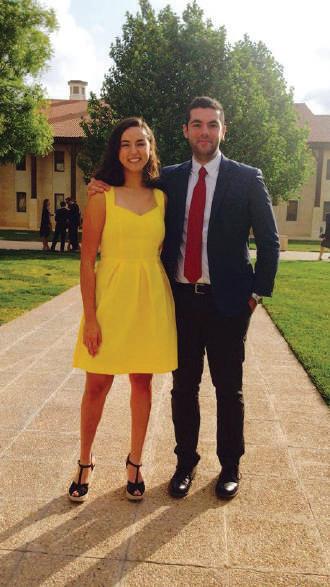

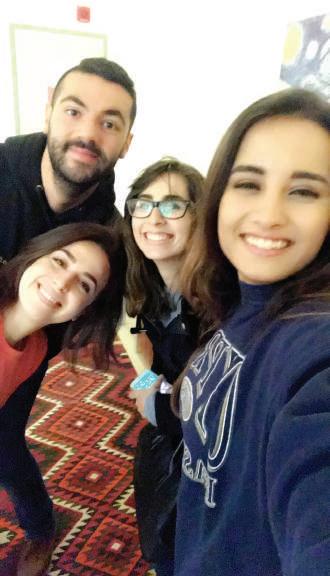

Ribal AlKhatib
After graduating from Bentley University in 2014 with a double major in finance and media arts and society, Ribal went on to complete a Master’s degree in management science from the London School of Economics and Political Science. He now works as a business development manager at Binshihon Group in Saudi Arabia. On the side, Ribal manages his two startups: Dewaniya, a non-profit organization that aims to gather, encourage and support future leaders of the region, and Crate, which strives to help local startups share their products with the market.
Mohammad AlQuraan
Mohammad spent two years working as a geotechnical engineer for Geosyntec Consultants. He joined the Middle School at King’s Academy in April 2018 as a faculty member teaching mathematics.
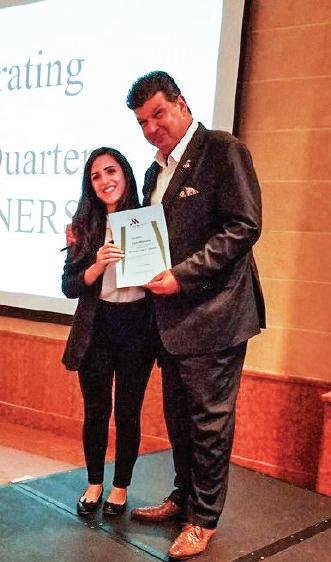

Tala Hammash
Tala is the community outreach coordinator at New York University Abu Dhabi’s Office of Student Life. She helps create and maintain partnerships with local organizations, oversees volunteer programs and opportunities, plans events and campaigns, and manages the office’s communications.
Fawaz Hourani
After working at Merrill Lynch in New York City for over a year, Fawaz went on to work at YouNow, a media technology startup in New York.
Norah Jaffan
Since graduating from the University of California Irvine in 2014, Norah has been working at Pacific Planning Group, a planning and consulting firm in Newport. She plans to attend law school in the near future.
Bashar Jarrar
Bashar works as a senior full-stack developer in Washington, DC.
Sameh Matar
Sameh graduated from Colby-Sawyer College with a major in biology, chemistry and premedicine in 2014 and has been conducting biomedical research and working in hospital laboratories.
Mohammad Qardan
Mohammad works with Mercy Corps Jordan as a monitoring and evaluation officer for USAID Jordan’s Water Innovations Technologies program. This year, he participated in the 19th World Festival for Youth and Students in Sochi, Russia, which is an international event organized by the World Federation of Democratic Youth (WFDY) and the International Union of Students. He also completed an apprenticeship program with Management Systems International (MSI).
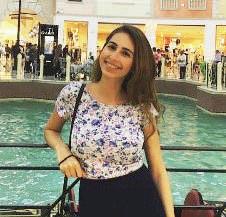
and went on to work at Groupon in Chicago for two years before returning to Jordan. Raya now works for Edraak, an initiative of the Queen Rania Foundation and says that her career “wouldn’t have been possible without King’s Academy prepping her for real life.”
Sima Shabaneh
Sima is a research associate for Global TIES for Children, an international research-based center at New York University Abu Dhabi that focuses on designing, evaluating and implementing development programs for children living in conflict-affected and lowincome countries.
Aseel Soub
Aseel has been working as a business analyst at BI Consulting in Amman for the past year. She hopes to become a management consultant in the near future.
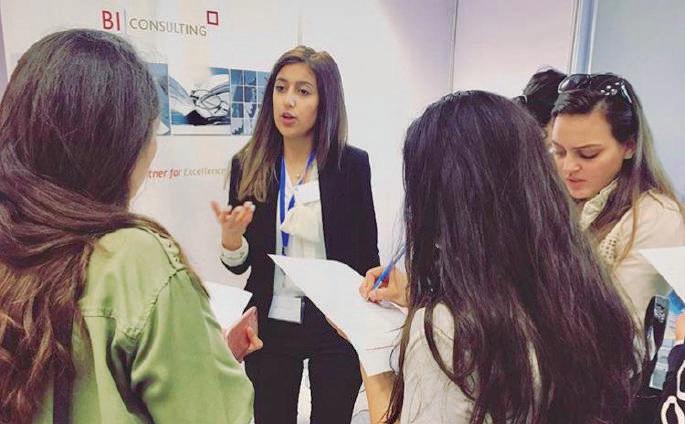
Rinad Salaita
Rinad works as a research and program development coordinator at the Queen Rania Foundation for Education and Development. Rinad says that the quality education she received at King’s, her teachers’ dedication and their investment in her intellectual and personal growth inspired her to pursue a career in education.
Maria Zabaneh
Maria has been working at UNICEF’s education department since September 2016. The department’s main priority is to ensure that all children have access to education.
Raya Zoubi
Raya graduated from the University of Illinois at Chicago in 2014 with a major in economics
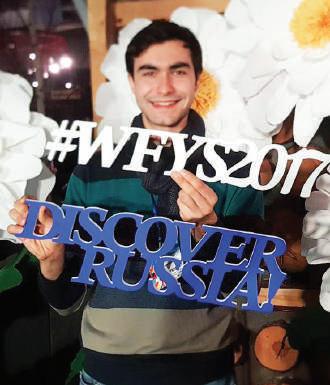

Hatem Abuteen
Hatem graduated from the German Jordanian University in 2017 with a Bachelor’s degree in architecture.
Faisal Akkawi
After graduating from Yale University in 2015 with a degree in international development, Faisal joined the Boston Consulting Group in Dubai, working on a range of projects within the consumer goods, energy, arts and culture, and public sectors. This fall he is enrolling in the MBA program at the University of Chicago’s Booth School of Business.
Burhan AlDroubi
Burhan is a risk consultant at Genpact in London, England.
Farah Al Fayez
Farah works as an activities manager at International Association for Human Values (IAHV) where she organizes projects for Syrian refugees in Jordan.
Malik Al Jabori
Malik is working closely with the Iraqi Council of Ministers and the Iraqi Ministry of Planning to draft the public private partnership law in Iraq, a topic he specialized in while completing his Master’s degree at the University of Edinburgh.
Layla Al-Naif
Layla got married in Italy in September and moved to London with her husband. She launched an online nutrition guidebook in February called 99% Plant Based where she shares her own recipes and health tips.
Jaber Al Sabah
As a career diplomat in Kuwait, Jaber says that “global citizenship is one of King’s Academy’s guiding principles that I live by on a practical day-to-day basis, bringing people closer to one another and creating dialogue to promote peace.” As Jaber moves forward in his life, he says he continues to build on King’s ethos and principles.
Thaer AlSheikh Theeb
Thaer is completing a PhD program at Columbia University in the Department of Middle Eastern, South Asian, and African Studies with a concentration in the Institute for Comparative Literature and Society.
Ismail Al-Tamimi
Ismail works as a structural engineer at the structural design and consulting firm, AECOM, in Waterloo, Canada.

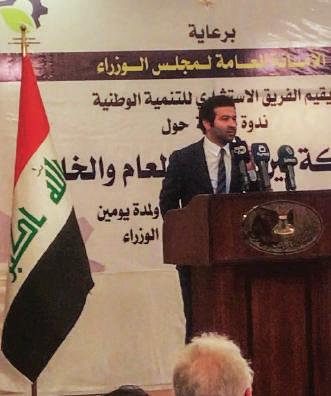
Hamzeh Al-Qudah
Hamzeh is a program impact analyst at the USAID Community Engagement Project.
Rashed Al Qudah
Rashed completed a dual degree program in 2017, in which he double majored in economics and quantitative business analytics at Hobart and William Smith Colleges and earned a civil engineering degree from Columbia University. He now works as an analyst in management consulting at Black & Veatch in New York.
Omar Amara
Omar is a medical student at the German Jordanian University where he is also learning German.
Abdullah Arabiyat
Abdullah graduated from the University of Jordan in 2017 with a Bachelor’s degree in medicine.
Tala Barakat
After graduating from Bryant University in 2015, Tala moved to Fort Lauderdale, Florida to work in the sales department of an aromatherapy start-up company. She then went on to join TEKsystems, a Fortune 100 company where she is involved in building digital connections in the South Florida region.
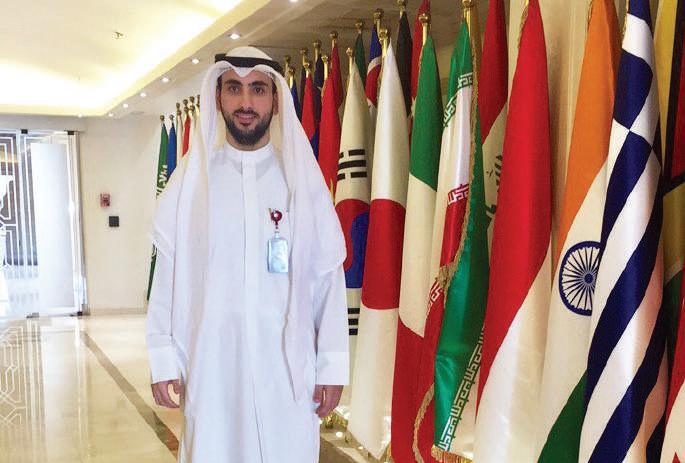

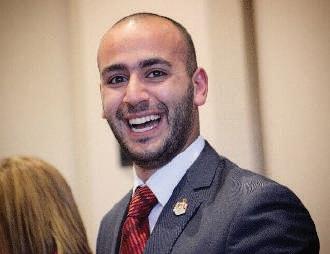

Leanne Conway
Leanne has been working in the cyber security department at NBC Universal for the past three years. One of the highlights of her career so far was traveling to Russia last June, as the onsite cyber support for the FIFA Confederations Cup broadcast. She was also the cyber security Olympics program lead for the 2018 Winter Olympics in South Korea. In her personal time, Leanne is a fitness trainer.
Yasmin Darwazeh
After graduating from Babson University in 2015, Yasmin went on to intern at Hikma Pharmaceuticals in both Amman and London. She now lives in New York City.
Yazan Fanous
Yazan is completing his thesis for his Master’s degree in energy studies at the American University of Beirut.
Reed Ghandour
Since graduating from Wellesley College in 2015, Reed has been working at JP Morgan in New York City, focusing on emerging market equities. She is excited to return to Amman this summer to attend the wedding of her best friend, Ghaida El Tayeh ’11 and reconnect with King’s alumni.
Mansoor Ghoto
Mansoor graduated from Dickinson College in 2015 with a Bachelor’s degree in biochemistry and molecular biology. He now studies at Ross University School of Medicine.
Karim Habab
Karim works as an architectural associate at BRW Architects in Charlottesville, Virginia.
Reem Haddadin
Reem is a junior researcher at the West Asia - North Africa (WANA) Institute in Amman. She focuses on promoting environmental governance that speaks directly to the needs of the people. One of her projects that aims to help local communities adapt to climate change was featured on Amman TV in March.
Omar Khoudary
Omar is part of the installation, commission, and operation engineering team of eight power generator units for three projects in the Gaza Strip that are funded by USAID, the World Bank, and KFW Development Bank.
Yasmin Lukatah
Yasmin lives in Seattle, Washington where she helped open a new luxury boutique. She plans to enroll in an English language course this summer and obtain certification to teach abroad. She has always been passionate about working with children and hopes to move to Korea or Japan after she completes her course to teach English to elementary students.
Jamil Madanat
Jamil works at CM Labs Simulations in Montreal where he is responsible for providing business strategies to expand the company’s sales and promote public awareness of simulators. He is also working on a startup called Lumbrick that aims to resolve charcoal pollution in Sub-Saharan Africa, and volunteers at the psychiatry emergency room at Montreal General Hospital, gaining valuable insights on the human psychology, healthcare system, and emergency response methods.
Farah Majaj
After graduating from Richmond, the American International University in London in 2016 with a Bachelor’s degree in politics, Farah returned to Jordan and now works at the United Nations Office for the Coordination of Humanitarian Affairs (OCHA) in Amman.
Farah Matalka
In November, Farah participated in a onemonth program in Indonesia that helps people develop their leadership skills, at which she organized a project on economic sustainability and discussed the Syrian refugee crisis in Jordan. Her work in Bali led to an invitation to take part in an international conference in Mexico City in February. There, Farah held workshops about ways to develop economic opportunities for women, and presented about Jordan and the Syrian refugee crisis both at the conference and at various schools.
Barik Mhadeen
Barik is a researcher in human security at the West Asia - North Africa (WANA) Institute, working on projects related to countering violent extremism.
programs for alienated street-based youth. He plans to complete a postgraduate law degree and work as an attorney in Jordan in the near future.
Nagham Qanadilo
After graduating with a Bachelor’s degree in international relations and global business in 2015 from Washington College, Nagham moved to Colorado to work at Blueprint Schools Networks. A year later, she moved to Dubai and to work at ASK Arabia. Nagham says she always reflects back on the opportunities King’s Academy offered her and will forever appreciate and contribute to the advancement of the King’s community.

Suhaib works as an analyst at Commercial Bank in Abu Dhabi. He feels that his King’s experiences have helped him adapt to new environments at different stages of life.
Yara Momani
Yara works as a listing leasing coordinator at a real estate company in Abu Dhabi. She hopes to pursue a Master’s degree in humanitarian logistics in the near future.
Ghaith Odeh

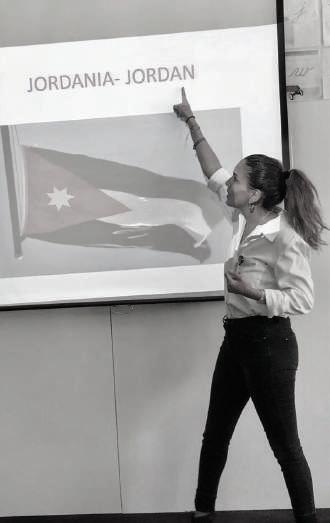
After completing a Bachelor’s degree in politics from Newcastle University in 2011, Ghaith went on to work at the National Democratic Institute in Jordan, focusing on youth empowerment programs. He also worked with UNICEF Jordan to create reliable rehabilitation and alternative education
Hanadi has been working at a telecommunication company in Syria for the past three years. She was initially a marketing coordinator at the company and is now a supervisor in the human resources department.
Seema Samawi
Seema lives in New Hampshire and is completing a Master’s degree in systems engineering through George Washington University’s distance learning program. On the side, she practices Brazilian Jiu Jitsu and coaches children’s classes as a BJJ purple belt.
Ali Shajrawi
After graduating from Wesleyan University with a degree in economics, government, history, and critical theory in 2015, Ali went on to obtain an MBA in finance from Goldey-
Beacom College. He now works at a boutique investment bank specialized in renewable energy in New York City. There he heads the analytics group, covering environmental, power, and capacity markets across the United States, working with large-scale energy companies, utilities, project developers, and financial firms. Ali also provides advisory services including policy analysis, project finance analysis, and supply and demand fundamentals for environmental and energy markets across the United States.
Sally Shaban
Sally works at International SOS and Control Risks in Dubai where she helps provide medical and security assistance to people across the globe.
Abdulkareem Sheraif
After graduating from Bentley University in 2015 with a major in finance and liberal studies and a minor in international economics, Abdulkareem went on to complete a Master’s degree in comparative politics, specializing in comparative political economy at the London School of Economics and Political Science. He now works at Elixir Management Consultancy, part of McKinsey & Company in Jeddah.
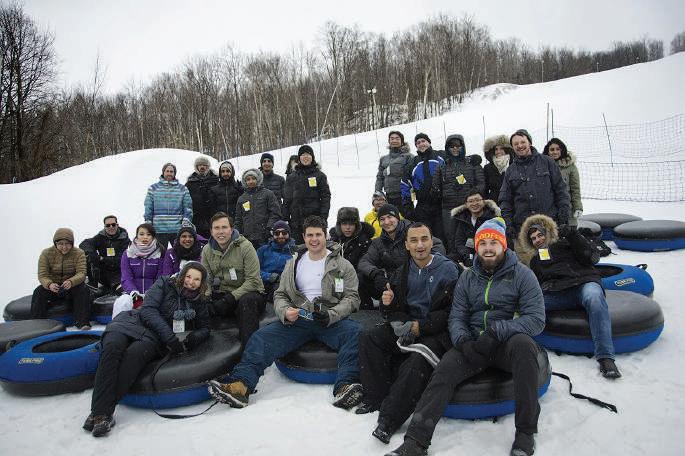
Karim Zeine
Karim joined a tech startup in the blockchain industry in Toronto at the beginning of 2017. In a little over a year, he has helped quadruple the team and secure blockchain-based projects for the government, banks and consulting firms.
May Zughayer
Lara Abdel Sattar
Lara is a sixth year medical student at the Royal College of Surgeons in Ireland - Medical University of Bahrain and will graduate this summer.
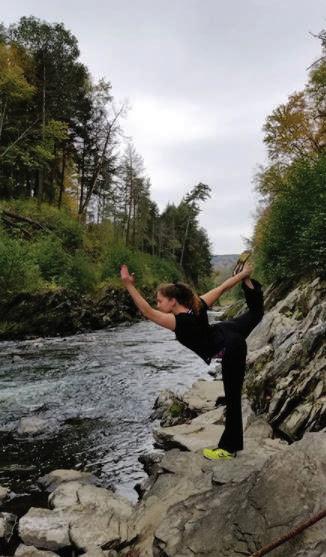
May works as a field monitor at UNICEF Jordan. On the side, she helped establish a non-profit startup accelerator based in Ramallah to help Palestinian entrepreneurs and increase employment and economic growth, which officially opened in April.

Abdulaziz graduated in January of 2016 from Boston University. He now works as a field engineer at
in Abu Dhabi.
Zane Abu Hantash
Zane graduated from SOAS University of London with a Master of Laws degree in international and comparative commercial law in September 2017. She now trains at Zu’bi Advocates and Legal Consultants in Amman.
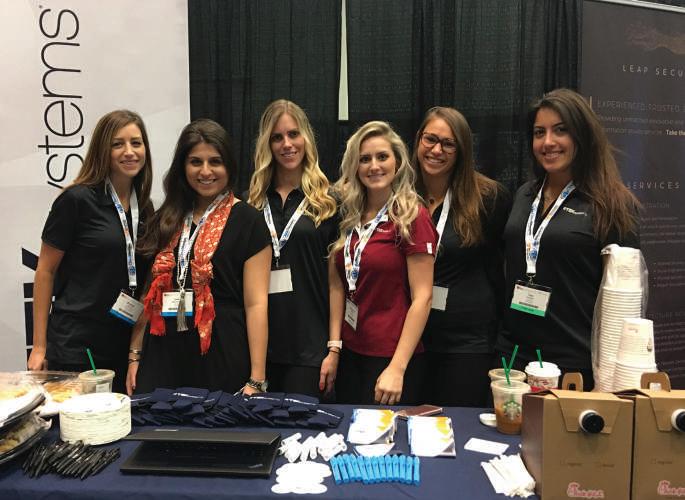
Hasan Abuhashish
Hasan obtained a Bachelor’s degree in biology and neurophysiology from the University of Maryland in 2016. He is now completing a medical degree at St. George’s University School of Medicine and hopes to graduate in 2021.
Abdullah Abu Sheikh
Abdullah wrote and published his own book, The Hour Before Dawn, which features poems in English about love and loss. He launched his book to a group of friends at King’s Academy in March.
Anwaar AbuShugair
Anwaar graduated from Oglethorpe University in 2016 with a double major in economics and political science. She is now completing a Master’s degree in international business at Georgia State University.
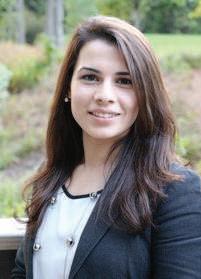
After graduating from the Massachusetts Institute of Technology in 2016, Noor Eddin went on to work at Oracle Corporation, the multinational computer technology company.
Hani Akasheh
Hani graduated from the Royal College of Surgeons in Ireland last June. He completed clinical voluntary work at Zaatari refugee camp with Jordan Health Aid Society and now works at Jordan Specialty Hospital in Amman.
Mutasem Aldmour
Mutasem works as a software engineer at Expedia.


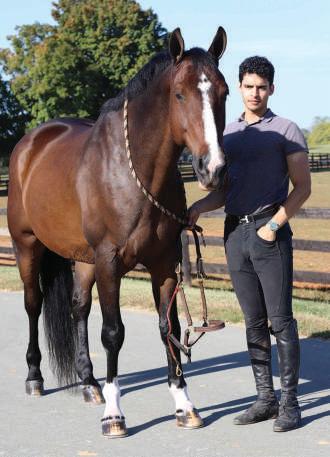
Karim Al-Haddadin
Karim graduated from the University of Bath in 2016 with a Bachelor’s degree in civil engineering. He now works as a strategy consultant at PwC.
Noor AlHaidary
Noor took on a position as a business integrity analyst at Facebook’s Austin office in October. She loves her job and is very excited to be working at the social network company.
Faisal Al Tal
Since he graduated from Virginia Polytechnic Institute and State University in 2016, Faisal has been working as a logistics engineer at JB Hunt Transport Services, Inc. in Arkansas.
Baraa Al-Wahidi
After graduating from Zarqa University with a Bachelor’s degree in software engineering in 2016, Baraa went on to obtain a Master’s degree, also in software engineering, from AlIsra University.
Mumen AlZubi
Mumen works at Global Foundries in New York, the second largest semiconductor microchip manufacturer in the world. This past year, he completed his licenses for glider (sailplanes) and power (single engine) planes. He hopes to represent Jordan as a glider pilot in a North American regional competition next year. Mumen says he is very excited about the establishment of the King’s Academy Alumni Association (KAAA) and hopes that the association can help “young and eager students and graduates find productive work experiences and professional career guidance.”
Subhi Anabtawi
After graduating from Carleton University in 2016, Subhi returned home to Palestine to give back to his community. He now works in sales and exports as well as business development at a social investment company called Al’ard. Since joining the company, Subhi has initiated various social programs including one on women’s empowerment.
Sereen Ashqar
Sereen graduated from the University of Toronto in 2017 with a major in industrial engineering and a minor in business. She played on the university’s basketball team for four years.
Mohammad Attar
Mohammad completed his bachelor’s degree in architecture and urban planning in 2016 from the University of Virginia. During his time at university, he was the architecture school class representative and the vice president of the equestrian team. After graduating, he moved to New York City where he currently works as a designer for an architecture firm and rides horses on the weekends in upstate New York.
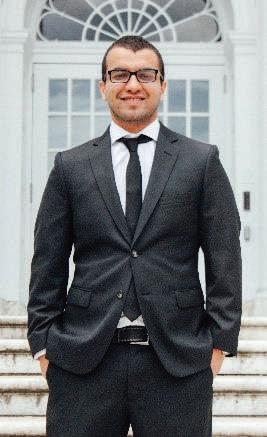
Jude Barakat
Since March 2017, Jude has been working as an analyst in the fixed income, commodity and currency tech sector at Bank of America Merrill Lynch in New York. She works with emerging markets and rates trading.
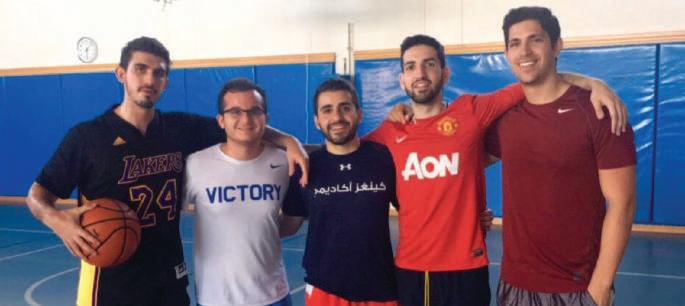
Faher Elfayez
Faher graduated from Georgetown University in 2016 with a major in government and a concentration on the Middle East, and a minor in women studies. She now works as a digital communications associate at the Jordan Information Bureau at the Embassy of Jordan in Washington D.C.
Zain El-Jazara
Zain works as a consulting analyst at Accenture in Chicago.
Omar Halawa
After obtaining a Bachelor’s degree in neuroscience at Columbia University in 2016, Omar went on to attend Harvard Medical School in August.
Shurouq Hijazi
Shurouq graduated from the University of Rochester in 2016 with a Bachelor’s degree in electrical and computer engineering. She now works as a cyber security consultant at Ernest & Young in Amman.
Dima Hourani
Dima is completing a Master’s program in international development at the Paris Institute of Political Studies in France.
Aliaa Ibrahim
Aliaa completed a Master’s degree in international financial law at King’s College in 2016. She is now a legal intern at Fietta LLP.
Hisham Jazzar
Hisham obtained a Bachelor’s degree in economics and finance at Bentley University in 2016. He is now an analyst at Rising Tide Fund, a venture capital firm in San Francisco.
Rumz Madanat
Rumz completed a Bachelor’s degree in biomedical science with a focus in microbiology from Victoria University in 2016.
Majd Masannat
Majd works as a monitoring and evaluation officer in the civic initiative support program at USAID. She is also a case writer for McGrawHill Publishers, UK.
Divij Mehra
Divij graduated with a Bachelor’s degree in mechanical engineering from McGill University in 2016. He now works as a strategy and technology consultant for Konrad Group in Toronto.
Zeid Morcos
Zeid graduated from the Royal College of Surgeons with a medical degree in 2017 and is now completing his internship year. He plans to specialize in orthopedics.
Firas Muasher
Firas works at Jordan Ahli Bank and will complete a Master’s degree at Tufts University next fall.
Hamzeh Naghawi
Hamzeh is completing his final year at the University of Jordan where he is studying medicine.
Jumana Risheq
Jumana lives in Victoria, British Columbia where she is completing a western herbal medicine and holistic nutrition dual diploma at Pacific Rim College.
Mohammad Sarhan
Mohammad Sarhan obtained his Bachelor’s degree in international relations with a minor in economics from the College of Wooster. He then pursued a Master’s degree in international affairs with a focus on development policy and Middle East studies from Penn State University in 2017. In January 2018, he returned to King’s Academy as a faculty member teaching humanities in the Middle School.
Osama Sbeitan
Osama graduated from Ryerson University in 2016 with a major in entrepreneurship and corporate strategies and a minor in global management. While at university, he founded Food Innovation Hub, an internationally recognized start-up incubator for sustainability projects. He is now the CEO of Sbeitan Global Investments Inc, which owns multiple subsidiary companies in the United States, Canada and the Middle East.
Nadine Zaza
Nadine graduated from Rhode Island School of Design’s architecture program last June. She moved to Boston in September and started working at an architecture firm that specializes in campus-based design. The firm has worked on projects for Deerfield Academy and Phillips Exeter Academy. She plans to pursue a Master’s degree in architecture or urban planning in the near future and return home to Amman to put her education to use. 2013
Zain Abdelrazeq

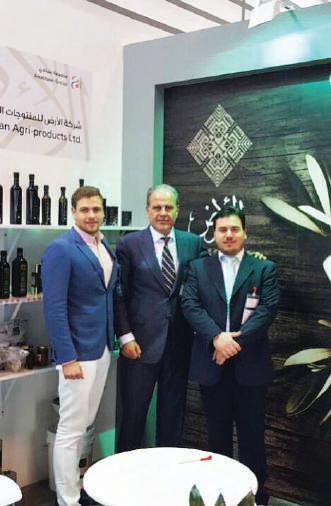
After graduating from Rochester Institute of Technology with a major in industrial systems engineering in 2017, Zain went on to work as an industrial engineer at the operational excellence and customer experience department for Penske Truck Leasing Corporation in Pennsylvania. At Penske, she received Lean Six Sigma training and completed a project to become Green Belt certified. Zain says that this experience gave her the chance to grow both professionally and personally.
Maya Abdin
Maya is in her first year of dental school at Nova Southeastern University College of Dental Medicine. She is the chair of the membership committee for the American Dental Student Association (ASDA). Maya is also involved with the missions club which sets up medical mission trips to countries that need free dental care, and she plans on going to the Dominican Republic next year.
Aya Abuosbeh
Aya graduated from Cornell University in 2017 with a double major in economics and government. She is now a political advising intern at the United Nations in New York.
Mohammad Al-Huneidi
Mohammad graduated from the University of Nebraska in 2017 and went on to work as a software development engineer at Union Pacific Railroad.
Aya Al-Jalamdeh
Aya is studying medicine at the Royal College of Surgeons in Ireland. She says that being part of the multi-cultural environment at King’s enriched her on many levels and taught her to be more “understanding, open-minded and aware of other cultures.”
Shahd Al-Jawhari
Shahd graduated from Mount Holyoke College in 2017 with a Bachelor’s degree in mathematics and minors in Asian studies and biological sciences. She now works at King’s Academy as a teaching fellow in the Department of Mathematics.
Husam Alkhreisat
During the past year, Husam was an exchange student in Germany where he interned for six months at an automotive company.
Zaid Al Mahasneh
Zaid graduated from Concordia University in May 2017 with a Bachelor’s degree in commerce. He now works in the graduate sales program at DHL Express Canada.
Joseph Alnimri
Joseph is in his senior year at the University of Jordan where he is majoring in music. He is working to achieve his dream of becoming a professional solo guitarist, and plans to record and publish his first guitar song soon.
Ammar Al Saadi
Ammar is interning at the Aqaba office of Talal Abu-Ghazaleh Organization (TAG-Org).
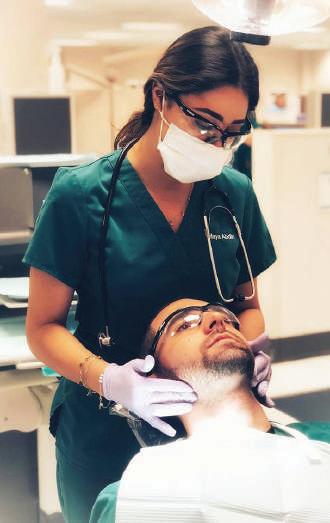

Iyad Alsaadi
Iyad graduated from the American University of Sharjah in 2017 with a Bachelor’s degree in finance. He is now a transfer pricing intern at PwC in Dubai.
Yazan Fakhoury
Yazan is in his fifth and final year at Brighton and Sussex Medical School.
Sandy Fahel

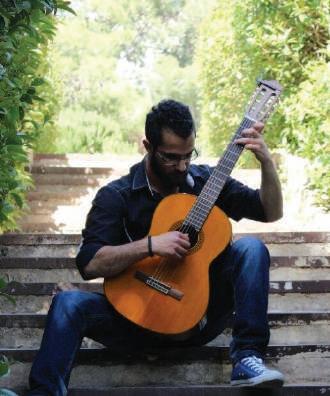
Sandy graduated from Franklin University Switzerland in 2017 with a Bachelor’s degree in international banking, finance and international economics. She now works as an assistant relationship manager at Standard Chartered Bank in Amman and hopes to attend graduate school in the near future.
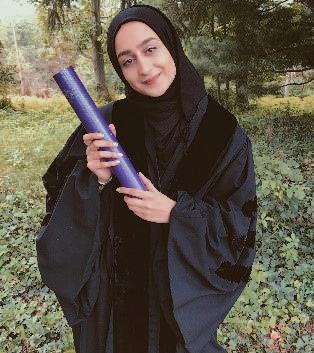
Layth Ismail
Layth graduated from Franklin and Marshall College in December 2017 with a major in economics. He now works at Adrian-Martin Acquisitions in New York City.
Emran Lallow
Emran graduated from Muhlenberg College in 2017 with a major in physics and a double minor in math and economics. He is now completing a PhD in mechanical and aerospace engineering at Rutgers University.
Johanna Lee
Johanna is an assistant editor at Brill Academic Publishers in Boston. She works on acquiring manuscripts for Brill’s international law list from legal practitioners and scholars and preparing them for production. Some of the fields she focuses on are international peacekeeping, international trade law, and international environmental law and sustainable development.
Haneen Mohammad
Haneen graduated from the American University of Madaba in 2016 with a Bachelor’s degree in English language and literature.
Faris Naffa
Faris obtained a Master’s degree in accounting at Brigham Young University in 2017 and now works in the audit department at Deloitte in Texas.
Tamara Nassar
Tamara is a senior at Lawrence University where she is majoring in history. She is an assistant editor at The Electronic Intifada.
Zeid Qabar
Zeid graduated from Long Beach State University in 2017 with a Bachelor’s degree in mechanical engineering.
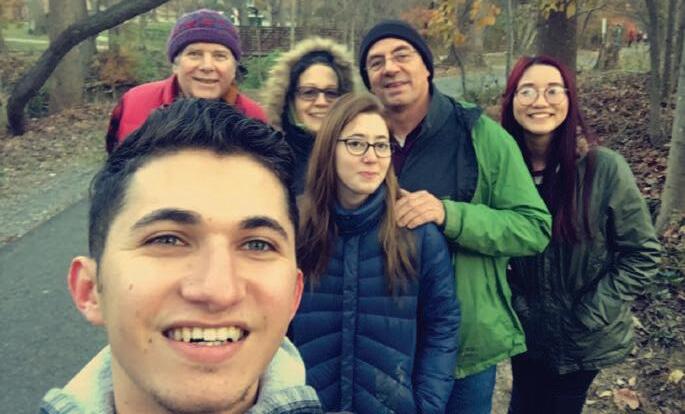
Sewar Quran
After graduating from Kenyon College in 2017 with a double major in sociology and international studies with a focus on economic and political development in the Middle East, Sewar went on to work as a paralegal for White & Case LLP in Washington, D.C. as part of the firm’s international arbitration team.
Aakriti Raina
Aakriti graduated with a Bachelor’s degree in business management from the American University of Sharjah in 2016. She is now a guest relations executive at VFS Global in Dubai.
Sanad Zumot
Sanad is completing a Bachelor’s degree in building engineering at Concordia University. This summer, he plans on earning a certificate in Leadership in Energy and Environmental Design (LEED) and improving his conversational French skills.
Lulu Abu Khajil
graduate next semester. He is also an active member of the European Students of Industrial Engineering and Management organization.
Nasam Al Twal
Nasam is a senior at the University of Nebraska, Lincoln where she is majoring in math and minoring in biochemistry. She plans to attend medical school after she graduates.
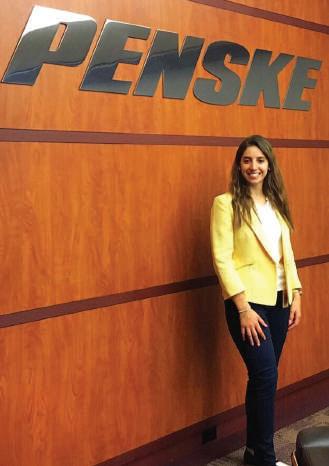
Lulu is a senior at the University of Brighton where she is majoring in business and minoring in human resource management. She is involved in managing the development centers at university to help prepare first-year students for university life.
Raghad Akrouk
Raghad is a senior at Trinity University where she is majoring in neuroscience. She is also a residential life assistant, a member of the international humanitarian crisis initiative, and the business fraternity. During the summer of 2017, Raghad worked as a research associate at the University of Texas health science center.
Raneem Aldroubi
Raneem graduated from the University of Surrey in 2017 with a Bachelor’s degree in law.
Omaymah Al-Harahsheh

Farah Zumot
Farah is a fifth year architecture student at the Lebanese American University.
In her senior year at Barnard College, Omaymah is conducting her senior project in the field of developmental economics with a focus on the role of women in development.
Ahmad Alschool
Ahmad is studying industrial engineering at Eastern Mediterranean University and will
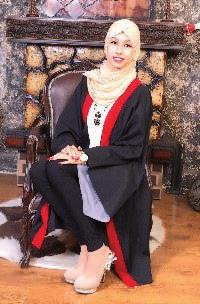
Saed Al Zawahreh
Saed is in his fourth year of mechanical engineering at Hashemite University.
Joshua Claxton
Joshua is a senior at Middlebury College where he is majoring in political science.
Ciwar El-Tayeh
Ciwar is in her fourth year of industrial engineering at the University of San Diego. She is an active member of the institute of industrial engineers, the internal student organization and the orientation welcoming committee.
Fawzi Itani
Fawzi is a senior at Amherst College where he is majoring in Asian civilizations and languages with a concentration in Japanese language.
Ahmad Mbaidin
Ahmad is studying at the Jordanian University of Science and Technology where he is majoring in mechanical engineering.
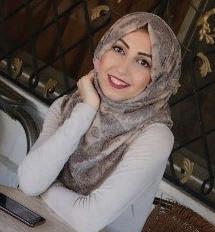
Omar Abdel Latif
Farah Naber
Farah obtained her Bachelor’s degree in intercultural relations and behavior from Jacobs University Bremen in June 2017, and is now applying for jobs.
Nora Nesheiwat
Nora is a senior at Sarah Lawrence College where she is majoring in biology and psychology.
Bassam Salah
Bassam is in his final year at the University of Illinois where he is majoring in economics with a focus in statistics. This summer, he will begin working as a consultant at PwC in New York.
Ghadeer Akram Tayliakh
Ghadeer is in her final year at the Applied Science University where she is studying electrical engineering, communication, and computer. She hopes to attend graduate school in the near future.
Baraah Thnaibat
Baraah is completing a Master’s degree in English at Hashemite University.
Omar is in his final semester at John Cabot University where he is majoring in business administration. He has also served as president of Stand, a university club that works to integrate diverse communities from refugees to homeless people in Rome. In this context, he organized a trip to Jordan with a group of volunteers to help Syrian refugee children. Omar also established a partnership with the International Committee of the Red Cross in Rome by offering services during the emergency cold weather in Rome and helping to raise 10,000 euros in donations for improved shelters at refugee camps.
Sama Al Khreisha
Sama is in her junior year at the American University of Beirut where she is majoring in medical audiology sciences. She is vice president of the student society for the medical audiology sciences department in which students visit less privileged children to screen them for any hearing or balance impairments. She plans to intern at an audiology clinic in Amman this summer.
Miral Al-Obaydi
Miral is double majoring in accounting and business administration with an emphasis in finance at Chapman University. She plans to complete an internship relating to her major in Amman this summer.
Aviselle Diaz
Aviselle is a junior in the School of Foreign Service at Georgetown University. She is studying abroad for the year and completed her fall semester in Doha and is doing her spring semester in Jerusalem. She plans to pursue an accelerated Master’s degree in Arab studies at Georgetown University starting her senior year.
Ayman Haimour
Ayman is a sophomore at Victoria University where he is majoring in biochemistry.
Ahmad Khalayleh
Ahmad is in his third year at Williams College where he is double majoring in Chinese and computer science. He also works as a tour guide and participates in a dance group. He spent the summer and fall semester in China and completed his language requirements.
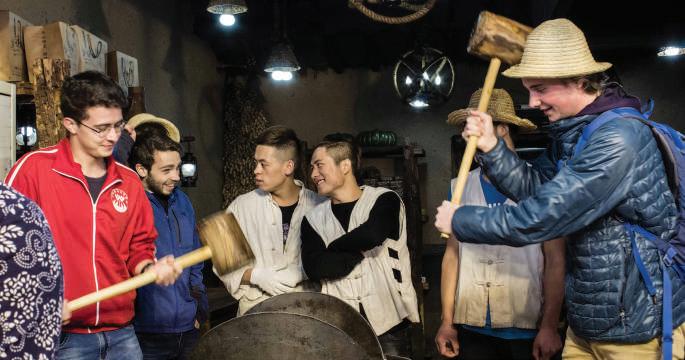


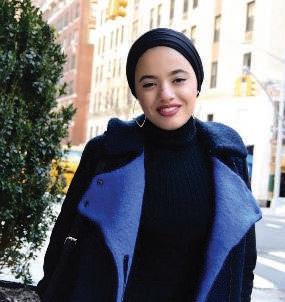
Leena Al Nsour
Leena is a third year medical student at the University of Jordan. She is working on a lung cancer awareness campaign project in Jordan called “Lung cancer matters too!” She is the proposals review coordinator at the International Federation of Medical Students Association and a member of the projects support division team. Leena is also working to establish a student-run society in Jordan called The Bull Session, which is a discussion group that creates a climate for open dialogue, freedom of speech, and the interchange of ideas, values and beliefs.
Jalil Khoury
Jalil is studying economics and business institutions at Northwestern University. He is involved in the professional business fraternity, the investment management group, the club rugby team, and the drum ensemble. Last year, Jalil interned at an investment management firm and a user experience design startup. This summe,r he will intern at JP Morgan’s asset management division in Chicago.
Leen Madanat
Leen is a junior at Muhlenberg College where she is majoring in physical science with a
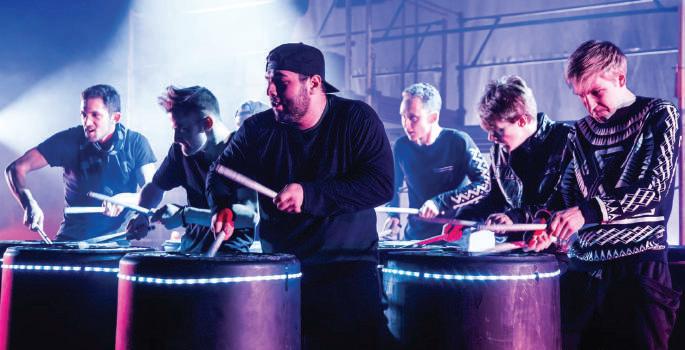
minor in business administration and math. After she graduates this year, she will transfer to Columbia University to complete an engineering program. She hopes to intern at either IBM, Six Sigma, or PPL and Datagne this summer.
Malek Mounla
Malek is majoring in business and economics at York University. He is also working on establishing a startup that he hopes to launch this summer.
Majd Rowwad
Majd decided to postpone his undergraduate studies and is now working as a psychosocial support officer at the Danish Refugee Council and as a teaching assistant with the English Access Microscholarship Program in Jordan.
Natali Salaytah
Natali is double majoring in biology and psychology at Allegheny College, where she is also the president of the international honor society in psychology and neuroscience.
Farah Sinokrot
presidential search committee following the president’s announcement to step down next year.
Marah Tarawneh
Marah is in her third year at Washington College where she is double majoring in political science and economics. On the side, she works as an English writing tutor and an assistant in the advancement office. She was inducted into the political science honor society as well as the economics honor society, and was elected as the vice president of the economics honor society.
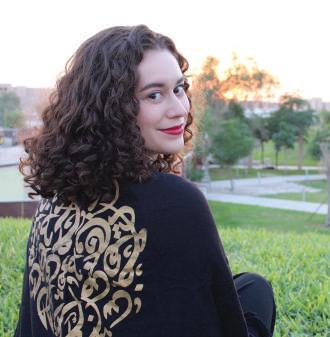
Farah is majoring in international relations at King’s College. She plans to intern at a nonprofit organization this summer.
Laila Mowafi
Laila is double majoring in political science and Middle Eastern studies at Columbia University. She is also a research assistant for a Middle Eastern studies professor. This summer, she will work as a sales and trading analyst intern at Deutsche Bank.
Hatoon Mushasha
Hatoon is completing a dual degree program in engineering from Dartmouth College and in economics from Skidmore College. She plans to work as an investment science intern at Wellington Management in Boston.
Sarah Taha
Sarah is a junior at Union College where she was elected student trustee this year, a twoyear position that serves on both the student government and the board of trustees. She is the second female student to ever hold this position since the college’s establishment in 1795. Sarah was also selected as the only student representative on the college’s
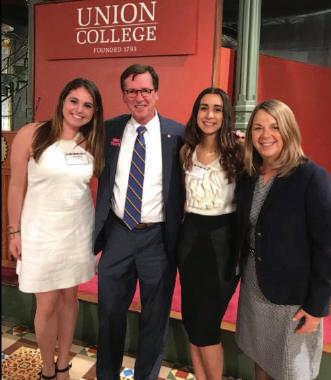

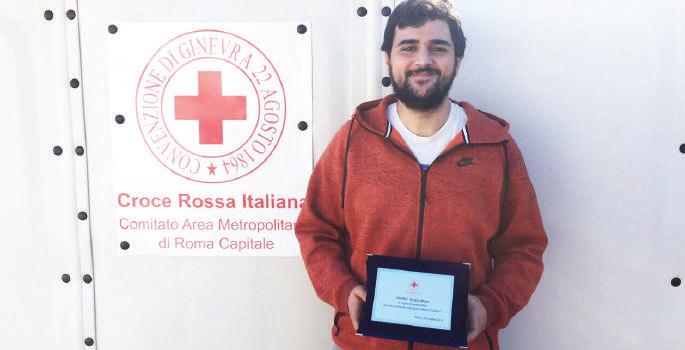
Haneen Tumeh
Haneen is studying chemistry at Petra University and is a member of the chemistry club. She also works with an UNRWA girls high school to introduce new ideas and ways of learning that prepare students for higher education.
Kinda Abu Hawash
Kinda is a sophomore at Union College where she is majoring in mechanical engineering. She is the co-founder of the Arab culture club, vice president of the international student club, treasurer of the volleyball club, secretary and member of the society of women engineers, and a member of the car building club. She also plans to become a resident advisor next year. In November, Kinda led a Union College visit at King’s Academy and talked about her experience to seniors.
Huthaifa Aladwan
Huthaifa is a sophomore at Bucknell University where he is majoring in mechanical engineering.


Faisal Al-Alami
Faisal is a sophomore at the College of William and Mary where he is double majoring in history and government. He hopes to complete his post-graduate studies in the same disciplines and return to King’s to teach. He is part of the college’s fencing team and Students for Justice in Palestine chapter, which he founded.
Wasan Al-Dalabeeh
Wasan is a sophomore at Hashemite University where she is studying medicine. During the past year, she started working at a startup called Ask Hakeem. Its main product is a website that provides credible medical content in Arabic.
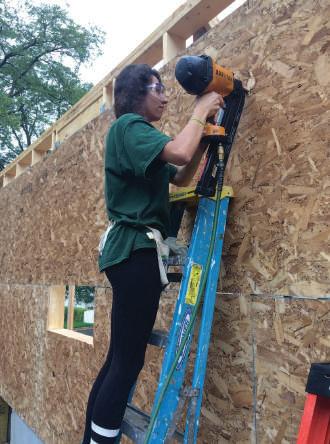
administration, and says he “really misses King’s!”
Sarah Madanat
Sarah is majoring in communication studies with a minor in fashion merchandising at Marymount University. She manages the social media marketing for the university’s school of education and human services department. This year, Sarah attended a Linkedin-hosted conference and she hopes to intern at Linkedin this summer.
Rami Rustom

Hareer Al-Qaragolie
Hareer is in her second year at Queen’s University where she is double-majoring in psychology and English and minoring in art history. She has worked as an orientation leader for the class of 2021 and participated in an ocean sustainability conference. Next year, Hareer plans to become a student academic counselor for the Faculty of Arts and Science and an editor for the campus magazine.
Whitney Anderson
Whitney is double majoring in Arabic and applied math with an emphasis in economics at Brigham Young University. She plans to take a break from university next year to volunteer in Turkey with her church.
Jouman Barakat
Jouman is a sophomore at Muhlenberg College where she is majoring in media and communication. Last year, the Muhlenberg College newspaper published a piece about her college experience titled, “Jouman Barakat ‘20 embraces possibility in her first-year Muhlenberg experience.”
Hyesun Choi
Hyesun is majoring in fashion business management at the Fashion Institute of Technology (FIT).
William Close
William is in his second year at Duke University. He teaches English to Syrian refugees in the area around Durham, New Jersey.
Kareem Khalaf
Kareem is in his second year at Boston University where he is majoring in business
Rami is a sophomore at the Massachusetts Institute of Technology (MIT) where he is majoring in architecture and computer science. In November, he met up with Sari Samakie ‘17 and Sara Awad ’17 at Harvard Arab Weekend to present their award-winning community outreach program, Fikra 3al Mashi.
Marah Ajeilat
Marah is a freshman at Oberlin College and Conservatory. In December, she wrote an article titled “Trump Abandons Precedent in Israel, Endangers Citizens” for The Oberlin Review, her college newspaper about the US decision to relocate its embassy in Israel to Jerusalem.
Anwar Alhusban
Anwar is majoring in computer engineering at Northwestern University and plans to minor in Middle Eastern studies. She is now the treasurer of the Arab student organization, which allows her to organize events that enrich the Arab student identity and emphasize its presence on campus. She is also part of the women in computing student club, which has further encouraged her to become a programmer in the future.
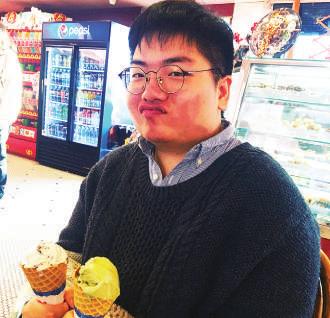

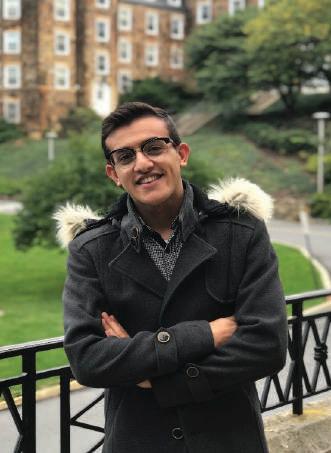
Hassan Al Khawaldeh
Hassan is a first-year student at Lehigh University where he is majoring in mechanical engineering and digging his way through college.
Jeeda AlNaber
Jeeda is a freshmen at the Florida Institute of Technology where she is studying aerospace engineering and playing soccer for the university’s team. Her soccer team won the conference title last fall.
Shuoyu Bao
Shuoyu is a freshman at Stony Brook University where he is majoring in applied math and statistics.

Lena Al-Kaisy
Lena is completing her first year at the Rhode Island School of Design. Seventeen of her drawings were displayed at the college’s annual exhibition of the freshman class.
During the winter session, Lena enrolled in a digital printed fabric class where she designed four prints inspired by the Palestinian and Israeli conflict, and iconic symbols that symbolize the beauty of Palestine. Her designs were printed and made into scarfs and she is working to have a company produce her scarfs. Besides her art-related work at college, Lena also writes articles for the online university site, Fresh U
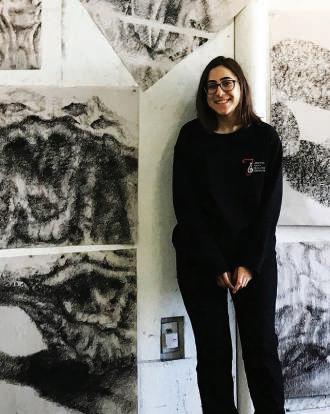

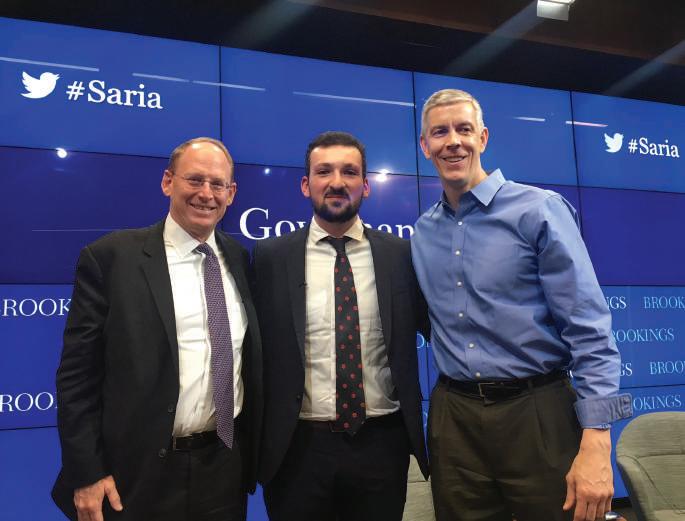


Sandra Madanat
Sandra is a freshman at Bucknell University where she is majoring in biomedical engineering and management. She started an Arabic club at university and introduced Dabkeh to the members.
Sari Samakie
In December, American research institution
Brookings hosted a talk with Saria, now a freshman at Georgetown University, to discuss his life as a Syrian refugee and the challenges he faced.
Mohammad Samman
Mohammad is a freshman at Concordia University’s John Molson School of Business where he is majoring in finance. He is enjoying his first year and says that “Montreal is the best student life city!”
Bushra Soub
Bushra is a freshman at Georgetown University where she is majoring in international political economy with a certificate in diplomatic studies. Outside of the classroom, Bushra is an events coordinator for the Georgetown Arab Society and last semester, she helped organize a charity gala with the Syrian American Medical Society (SAMS) to raise money for Syrians in need of immediate medical attention. She is also a centennial fellow, researching the impact of Syrian refugees on the host communities in Jordan. Bushra writes for the Georgetown Journal of International Affairs, interviewing international affairs experts about pressing global issues.
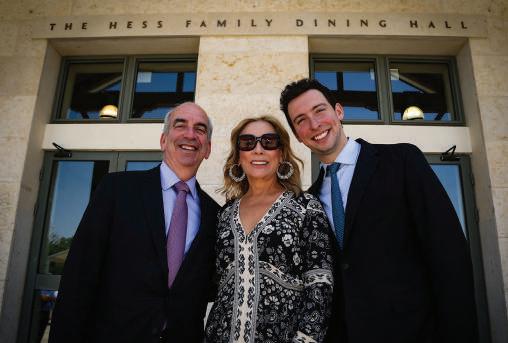
At a ceremony in the Michael Dagher Science Wing last May, King’s Academy dedicated a chemistry laboratory in honor of Mohammad and Monserrat Tamer and their extended family, for their collective generosity and immense support to the school. The Tamers are active members of the King’s Parent Council and have been instrumental in strengthening the parent network in Saudi Arabia. Attending the ceremony was Managing Partner and the Chief Executive Officer of the Saudi-based Farouk, Maamoun Tamer & Company Mohammad Tamer and his wife Monserrat Ordonez, who are parents to King’s alumni Farouk Tamer ’15 and Mishaal Tamer ’17.
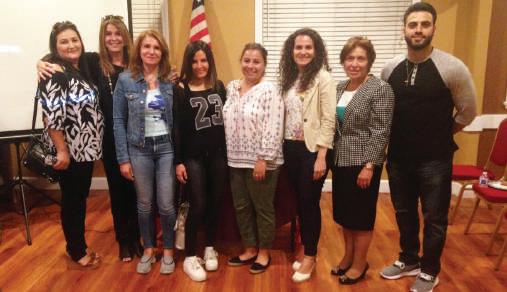
On Valentine’s Day this year, King’s Academy students wrote notes of appreciation to the school’s many generous donors. With 45 percent of students receiving need-based financial assistance, King’s relies on the generosity of parents, friends, corporations and foundations who believe in its mission and share its commitment to educational excellence and opportunity to ensure as many students as possible benefit from a King’s Academy education.
At a ceremony in the Refectory Square last May, King’s Academy dedicated the school’s main dining hall to the Hess family, in recognition of John, Susan and Michael Hess’ longstanding support, philanthropy and friendship to King’s Academy. The family is one of the founding donors of King’s Academy, has been a staunch supporter of His Majesty King Abdullah II’s vision for the school since its conception, and has continued to be one of the school’s major philanthropists in the decade since. Michael Hess, a New York-based investment professional and son of John and Susan, currently serves as a member of the Board of Trustees.
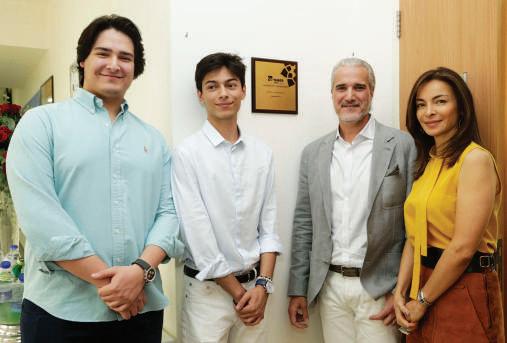
The Jordanian American Association of Northern California hosted a gathering for King’s Academy in San Francisco in July, which was attended by 30 Jordanian businessmen. The attendees learned about King’s mission and vision, and the school’s programs especially Arabic Year and Summer at King’s. They also learned about the school’s financial aid program and how King’s is helping empower young leaders to drive change within their communities.
